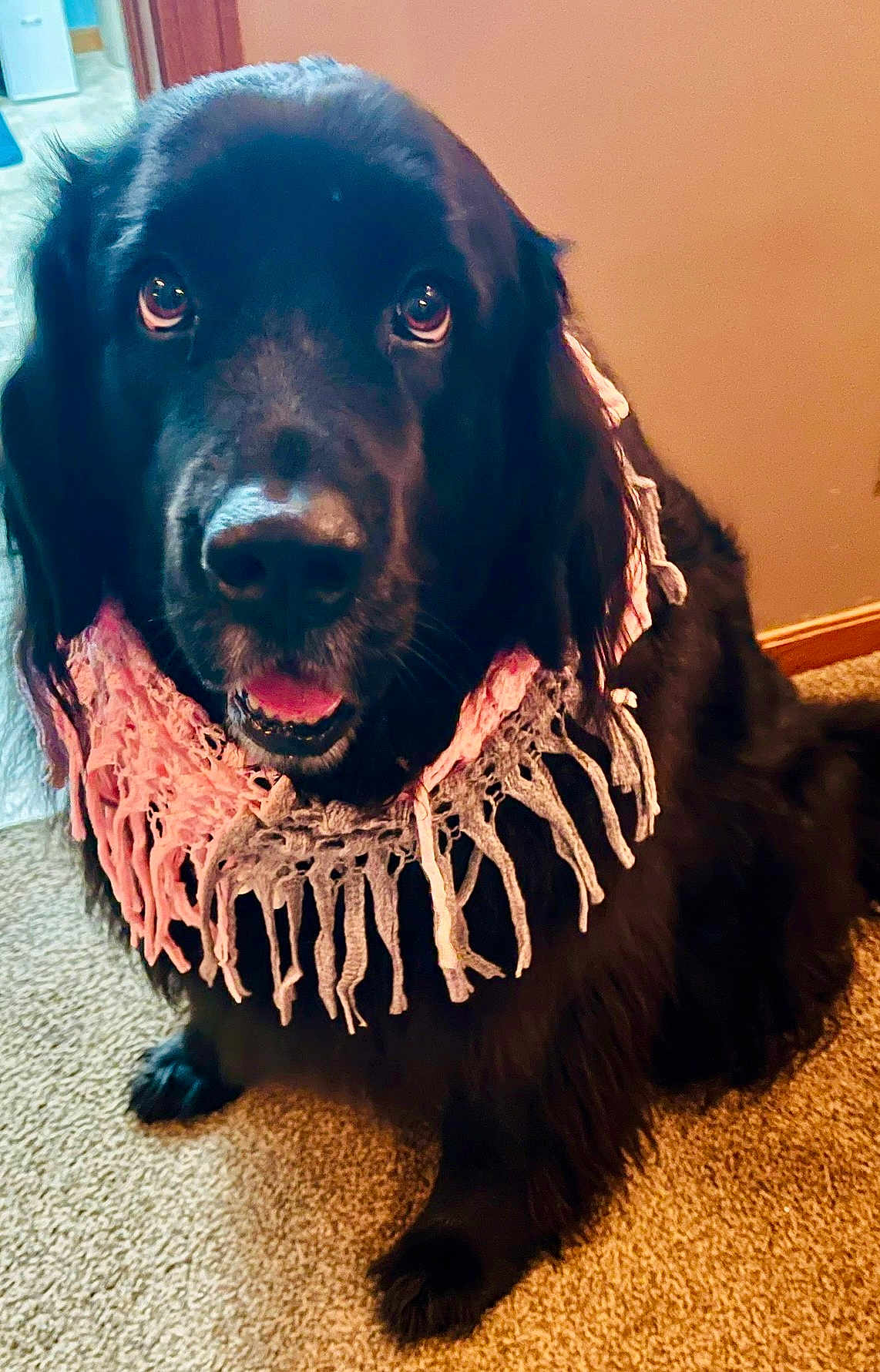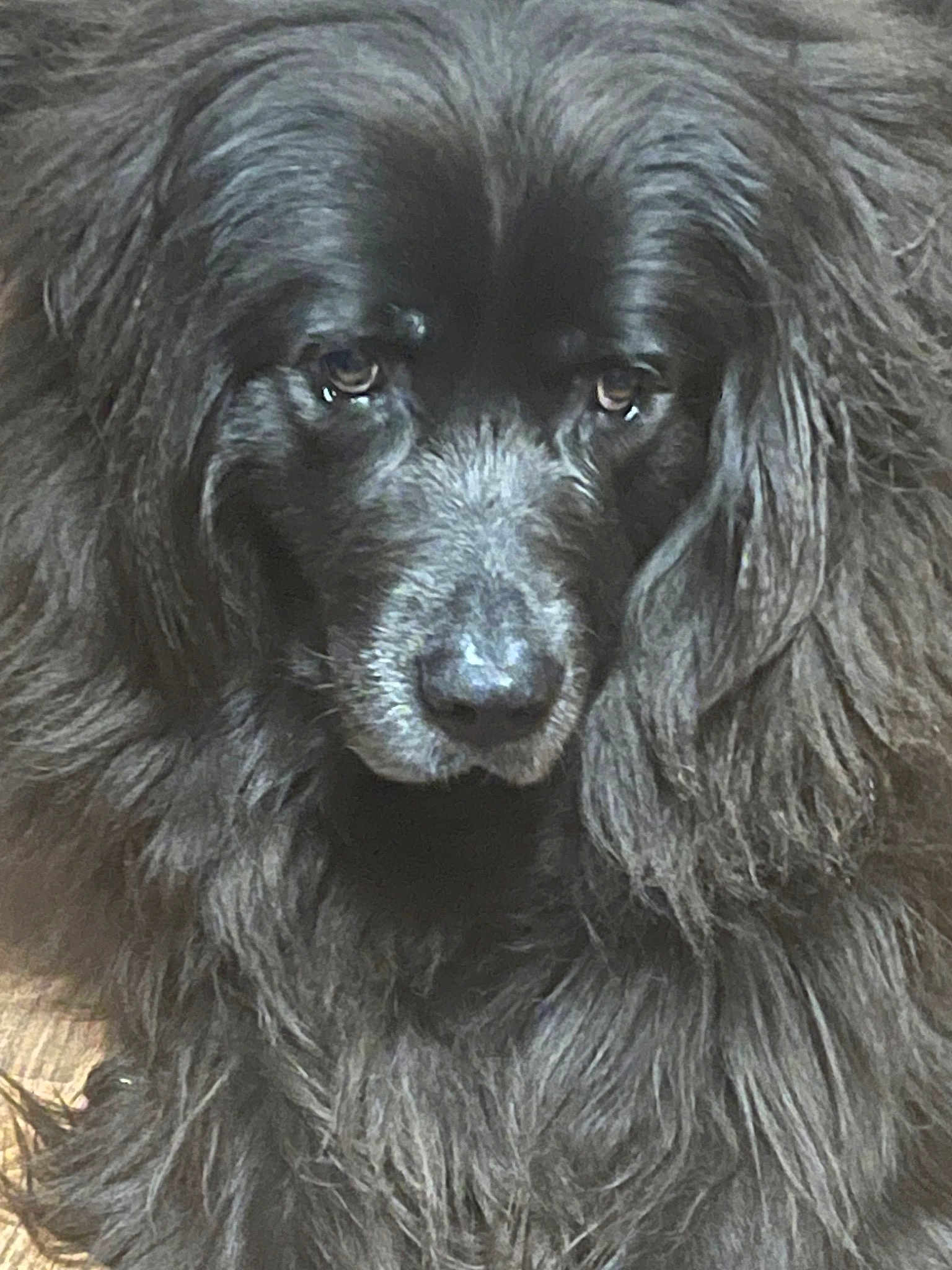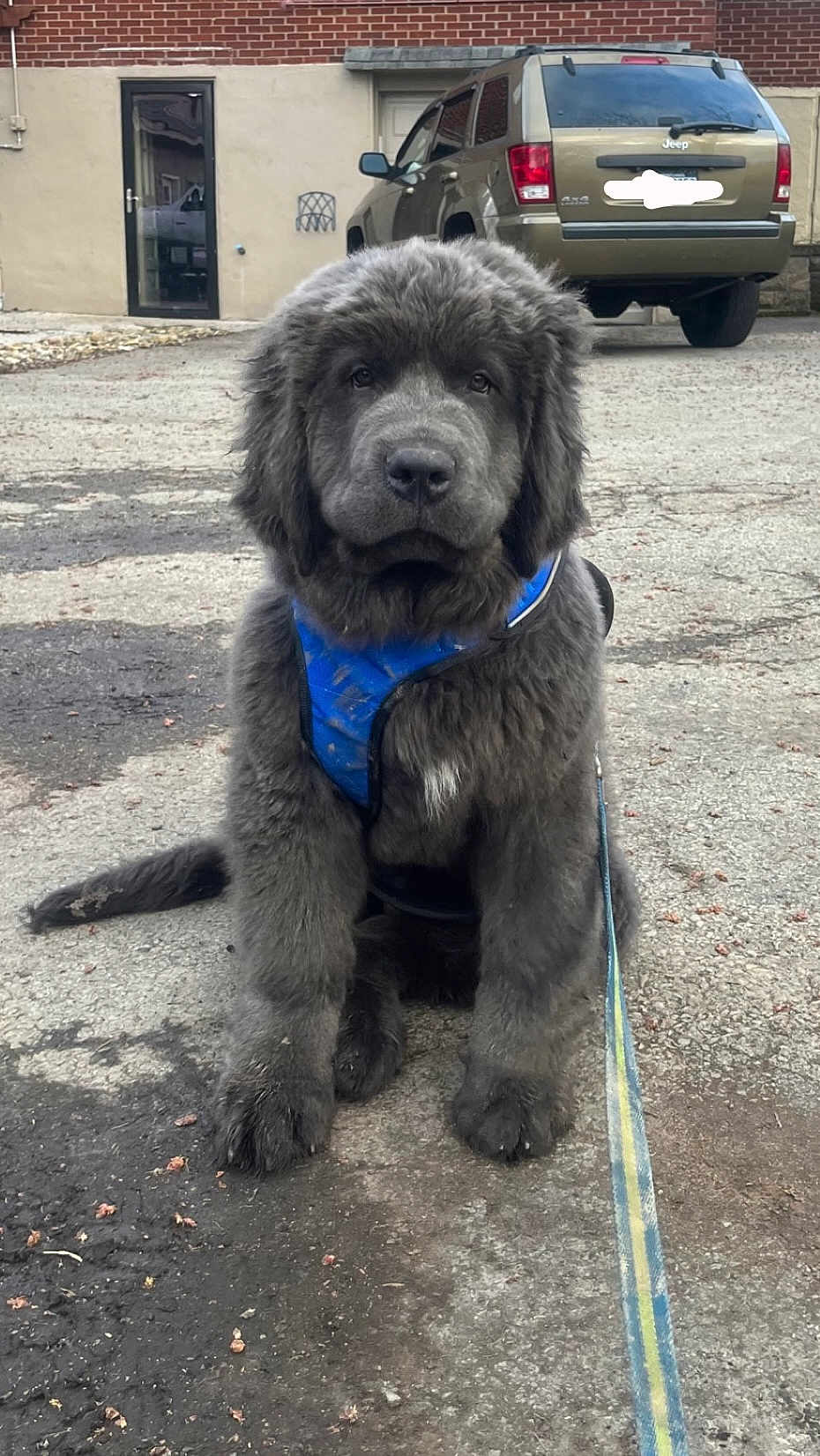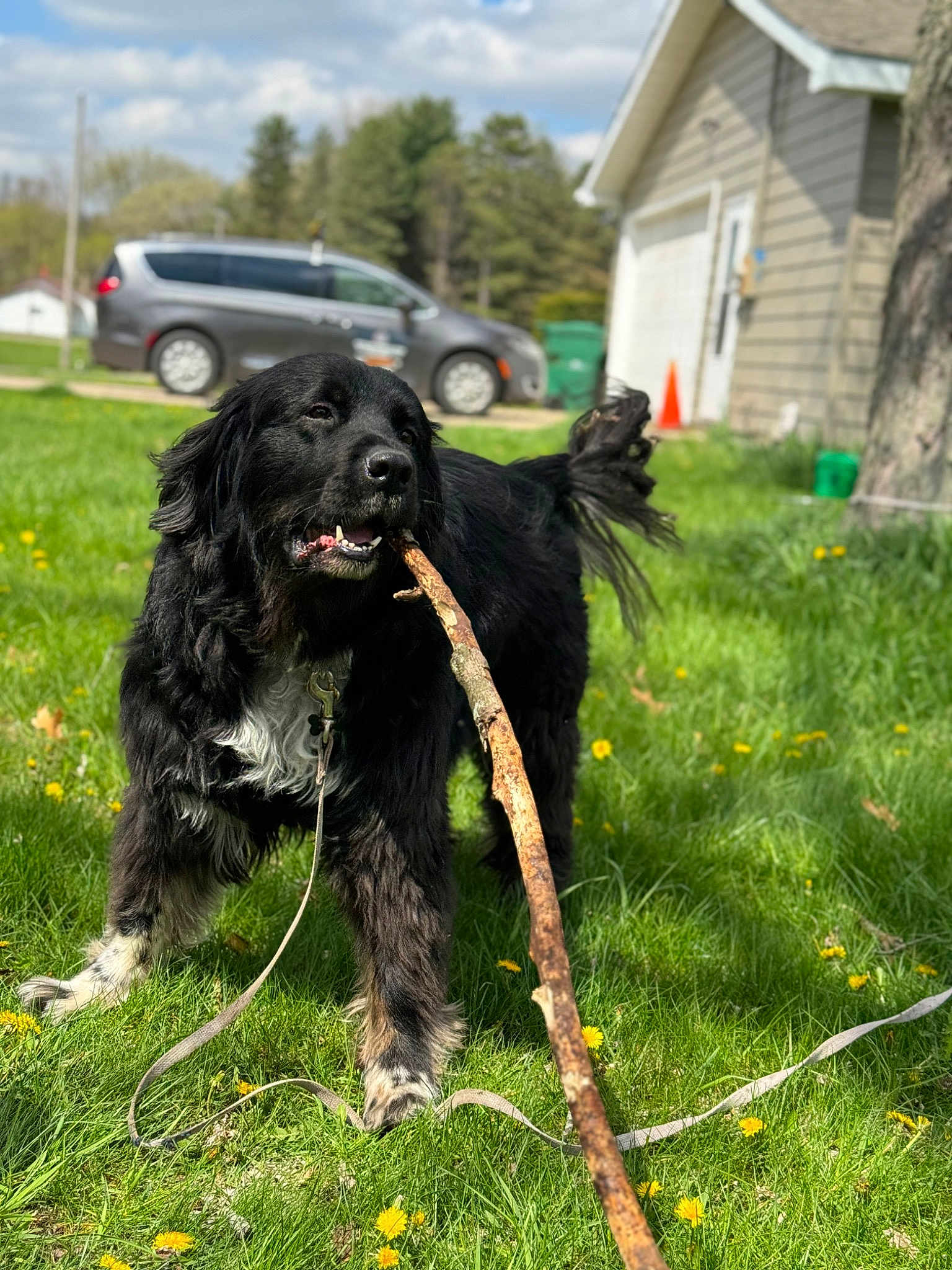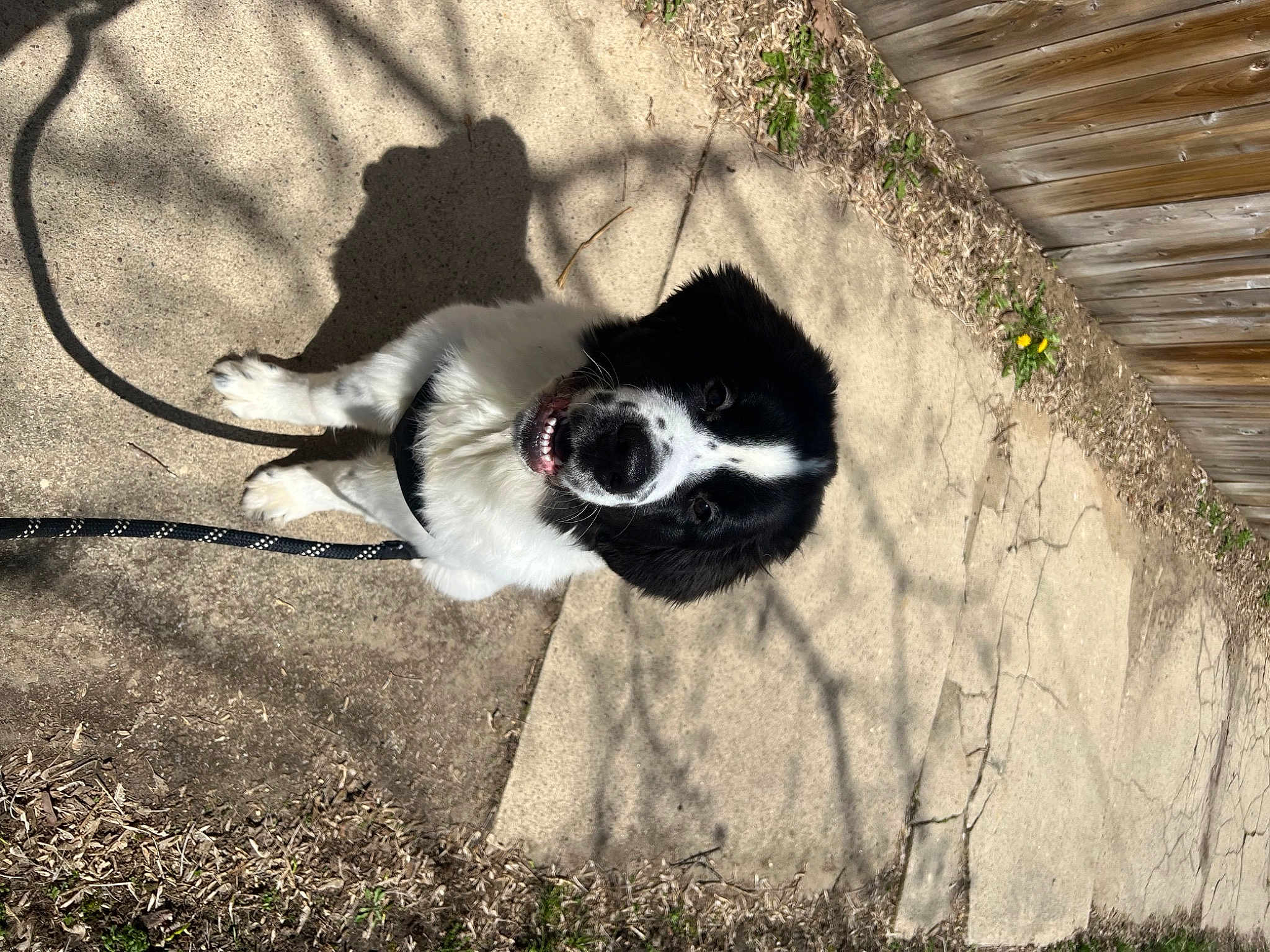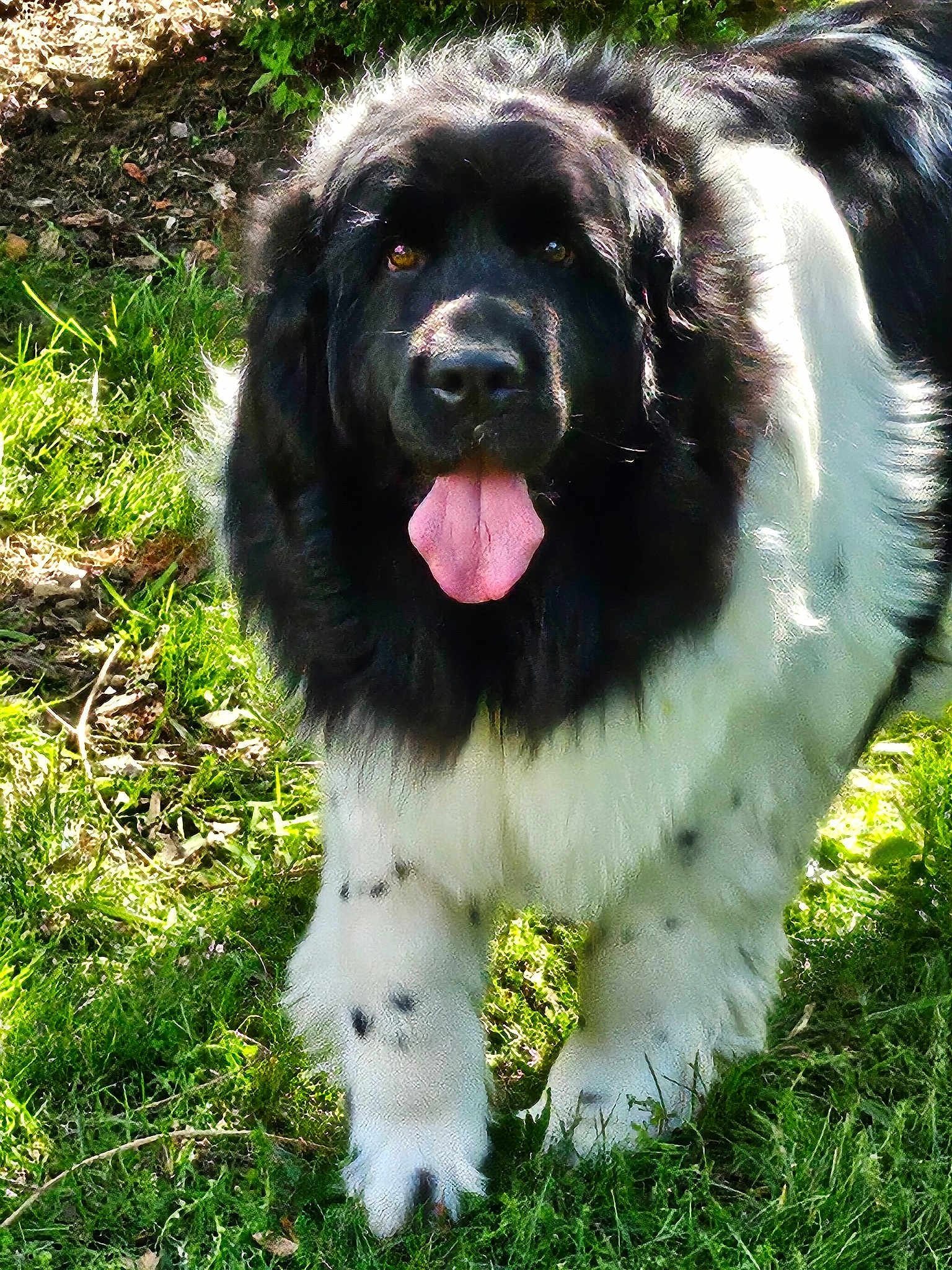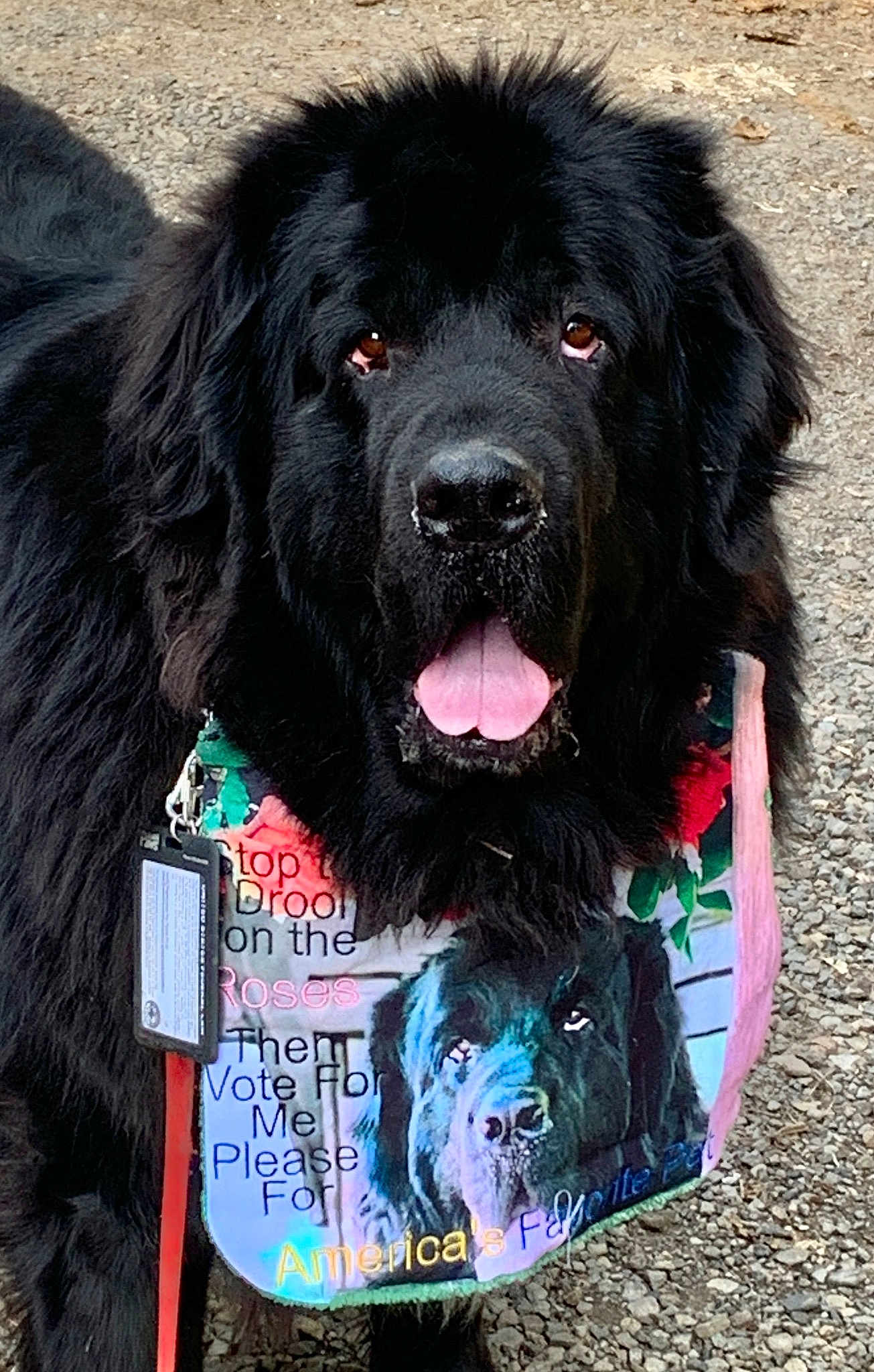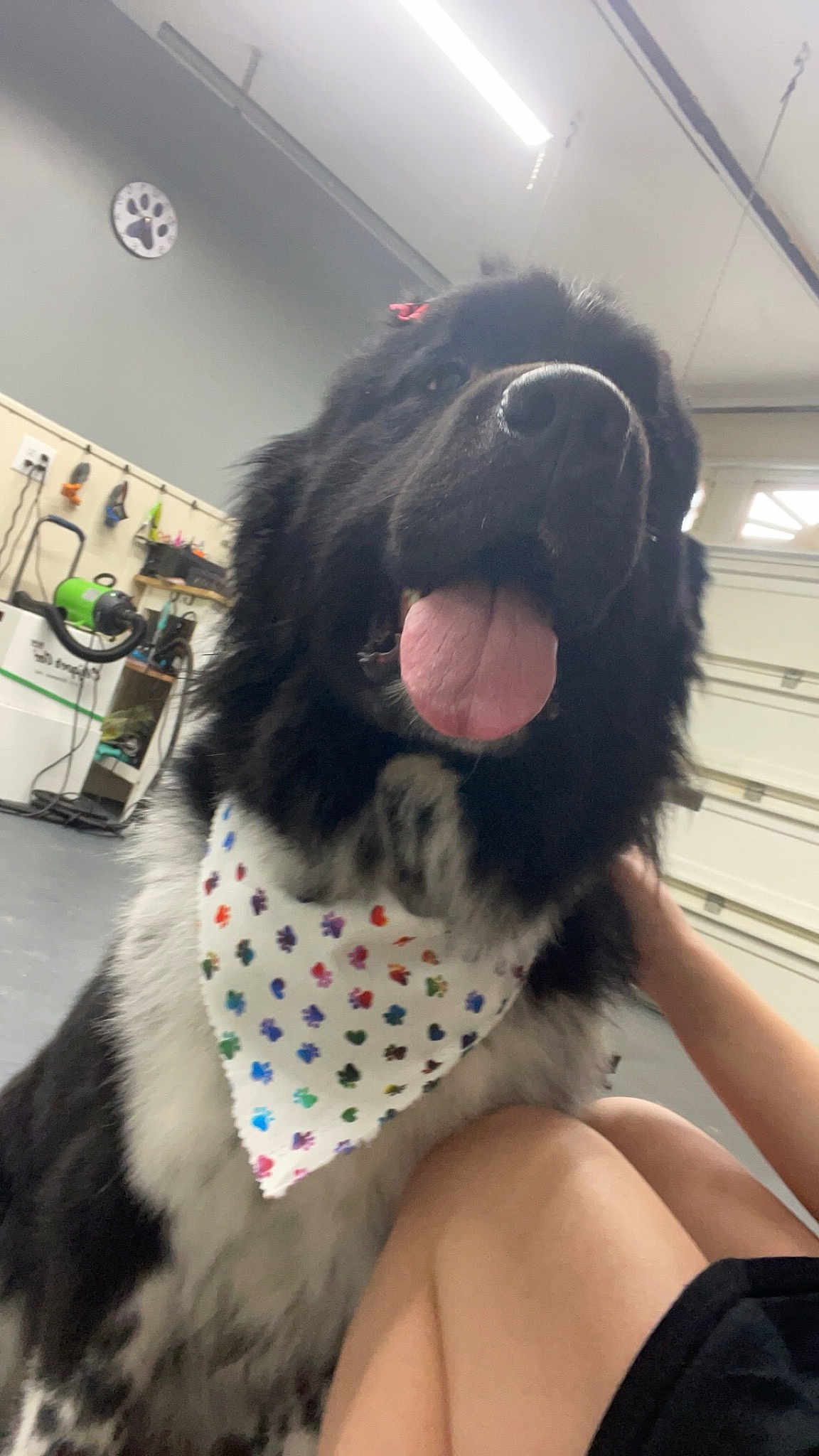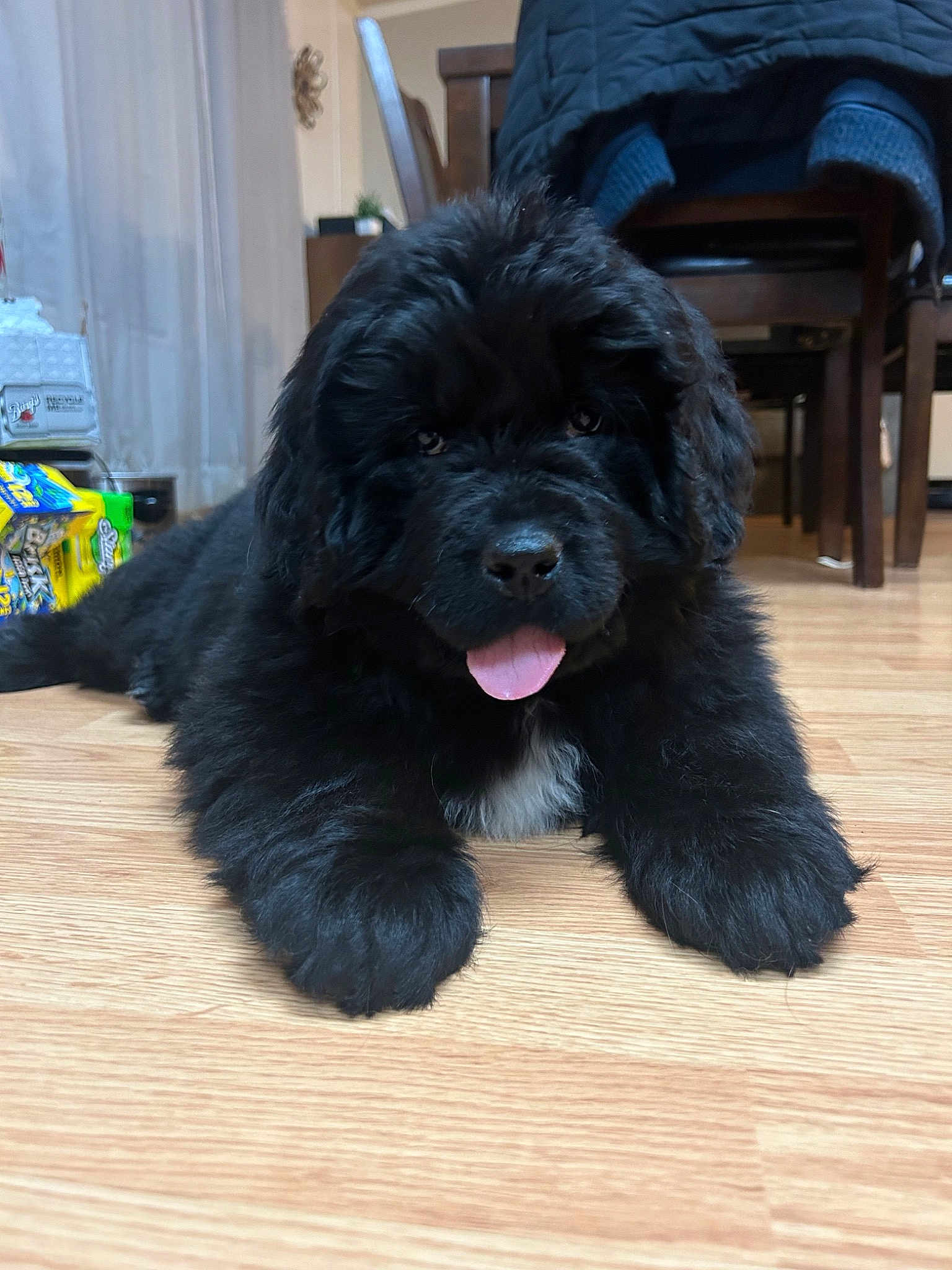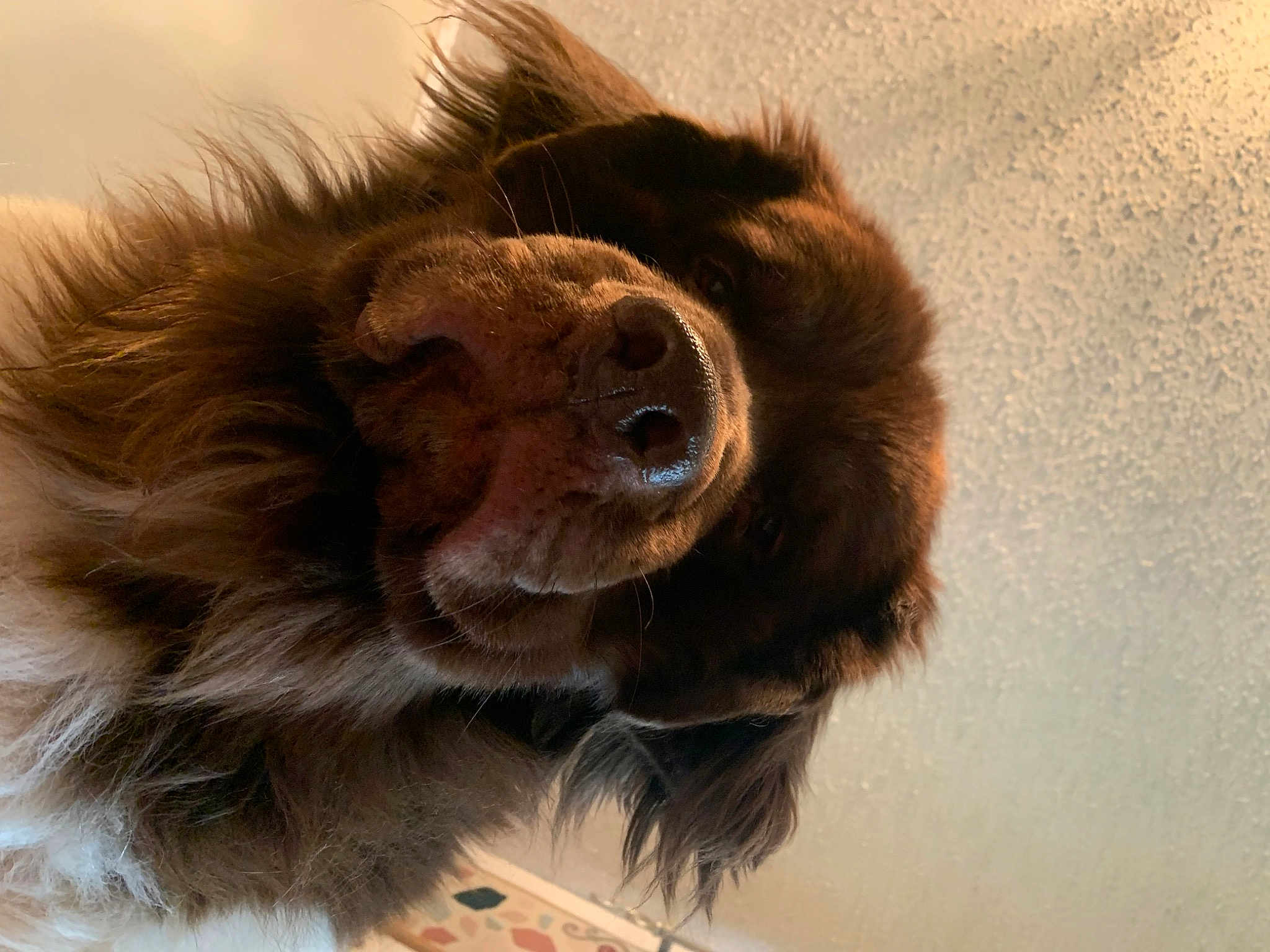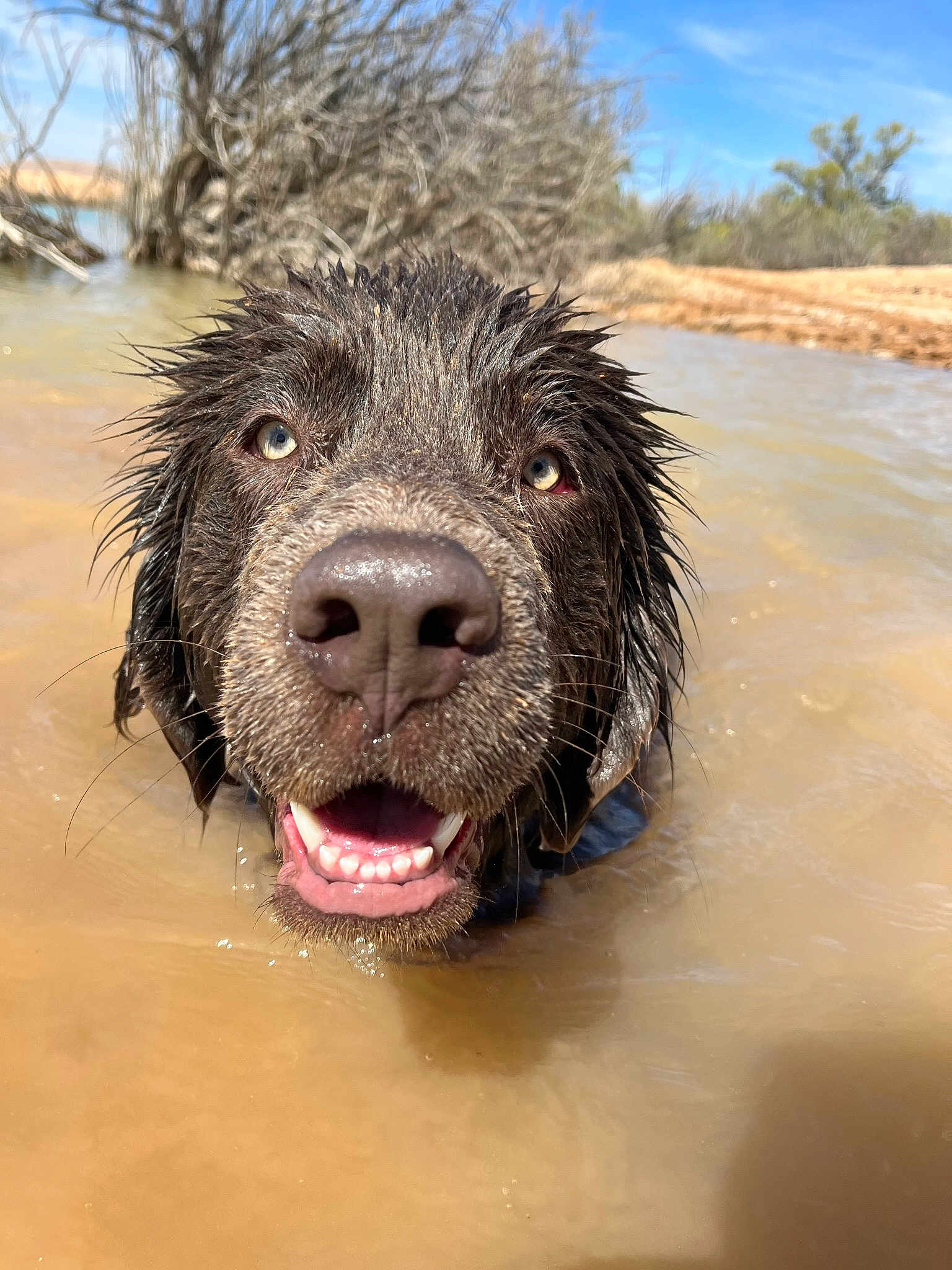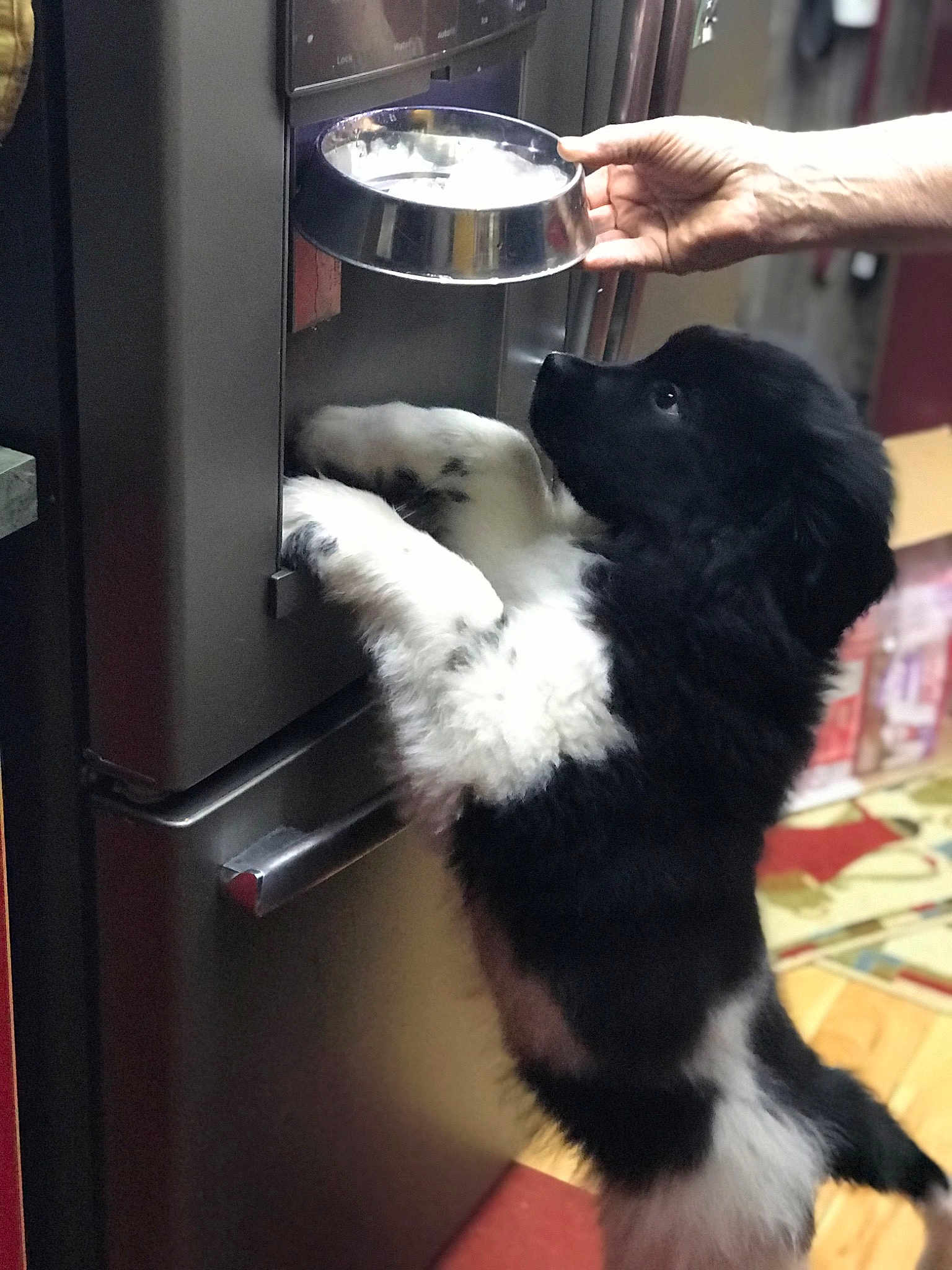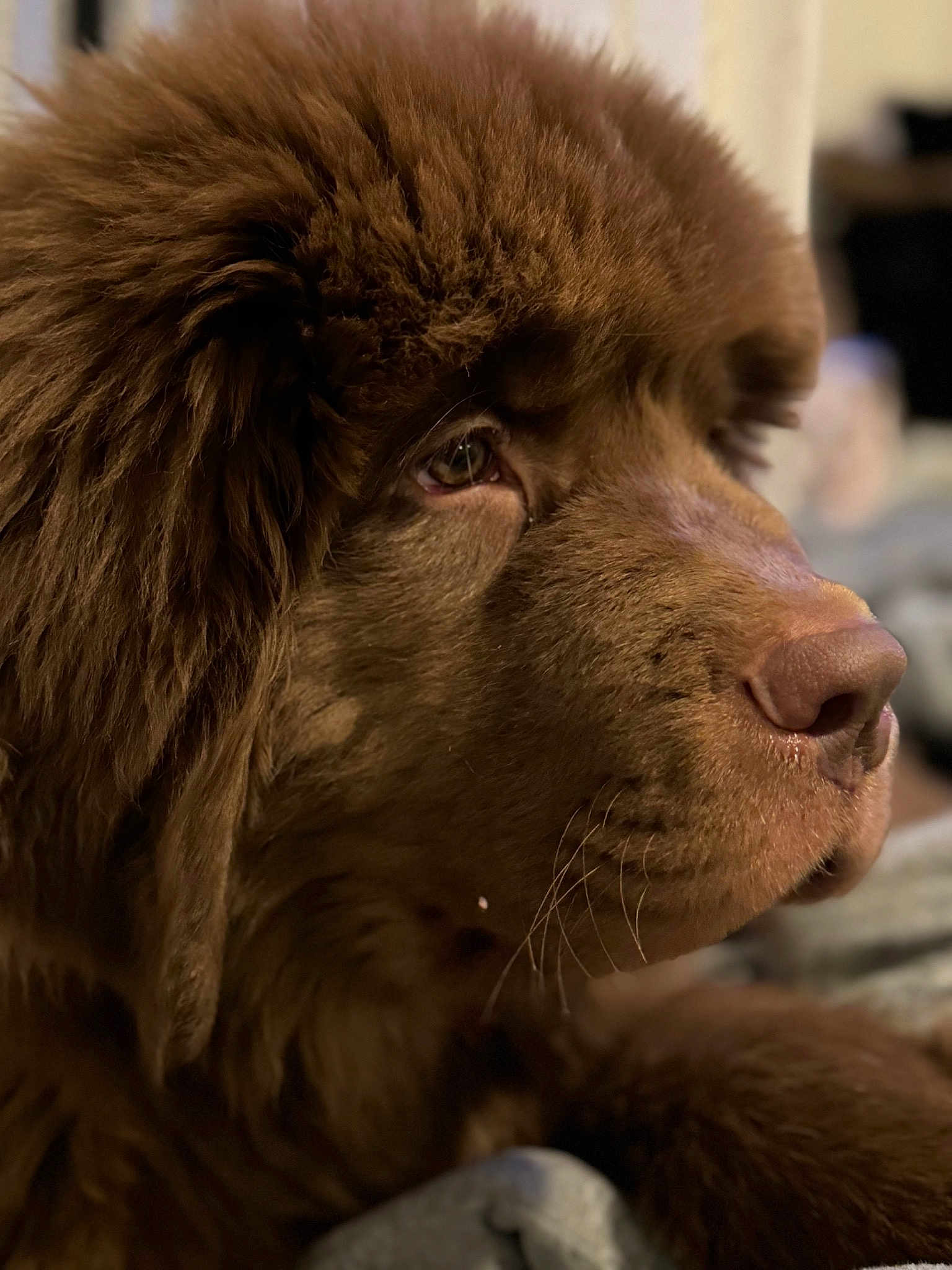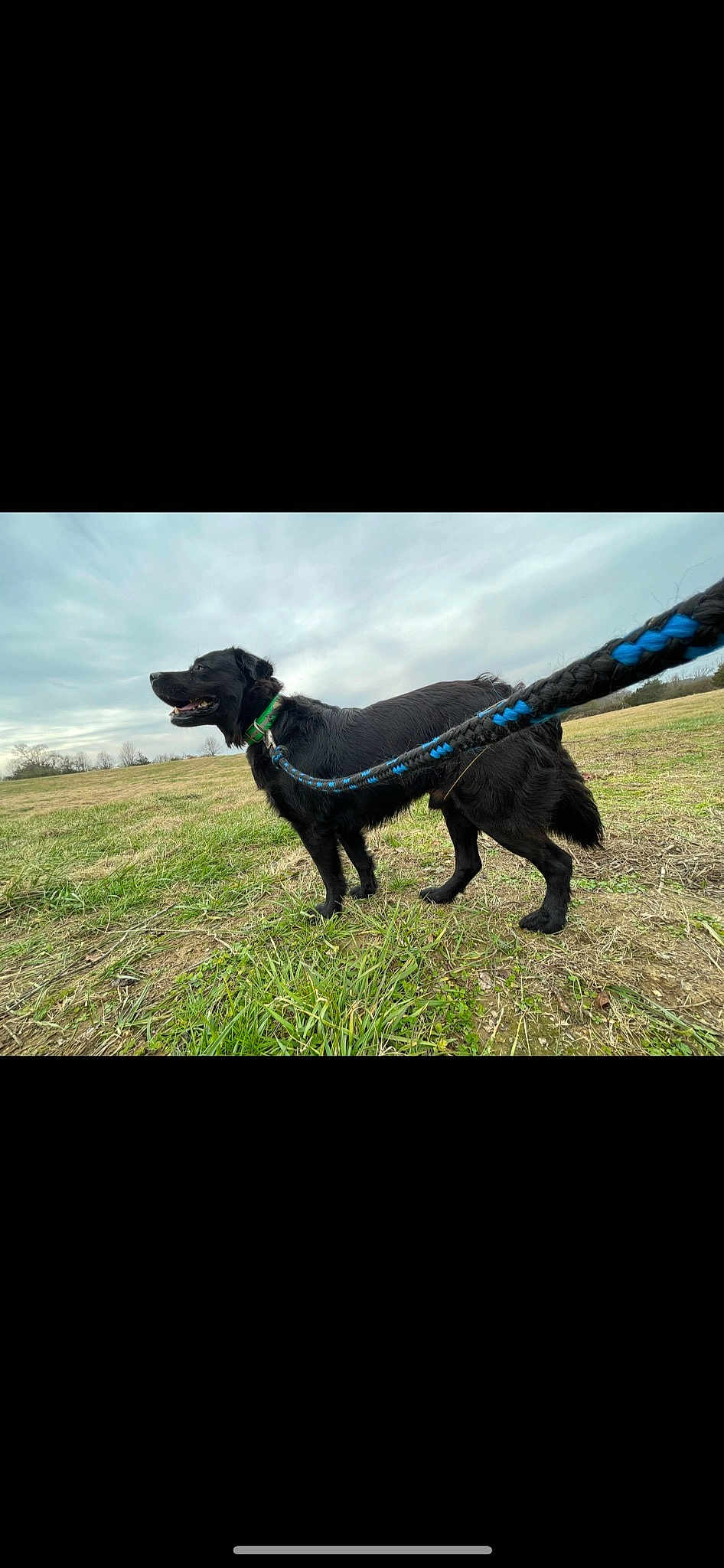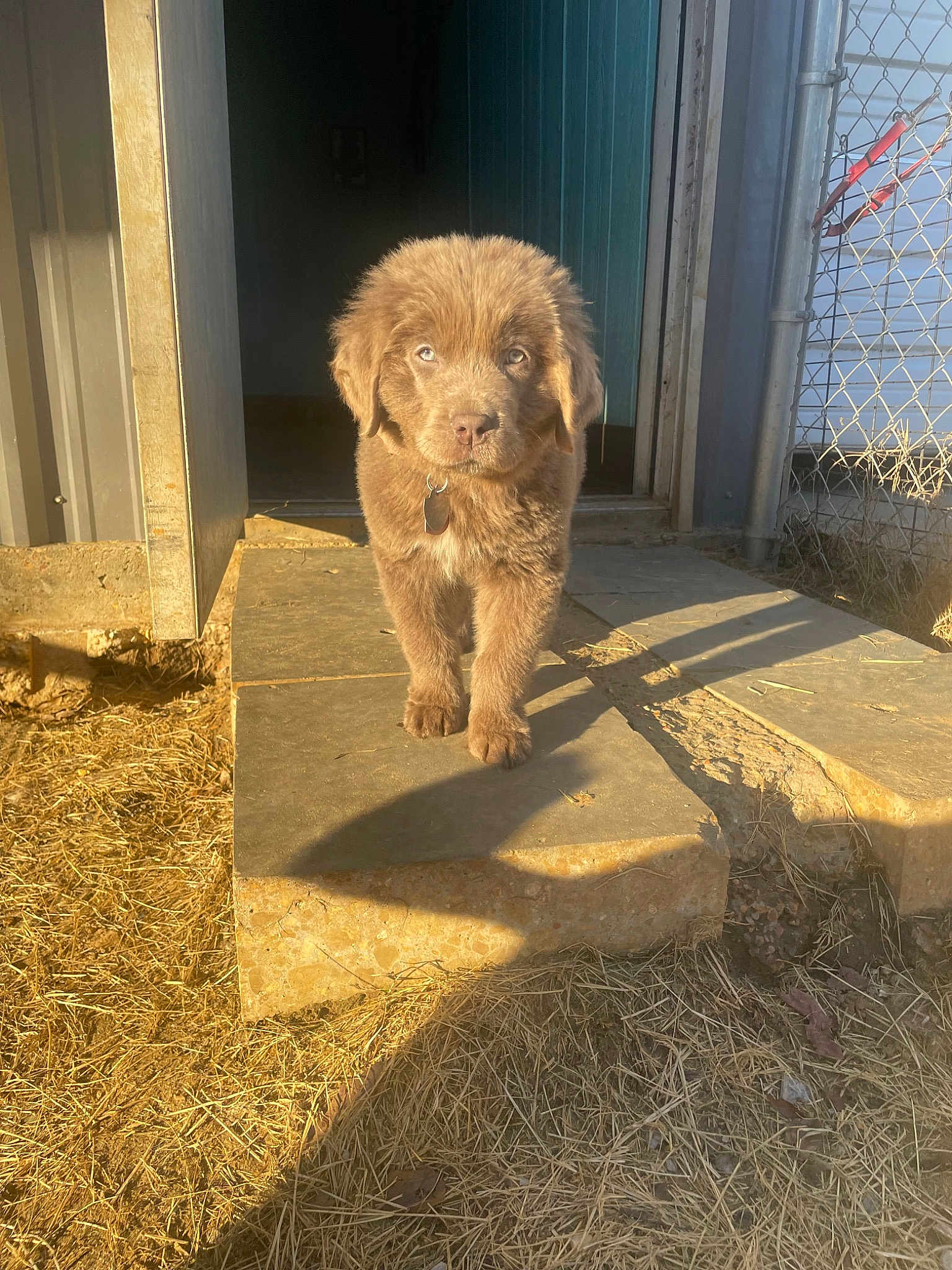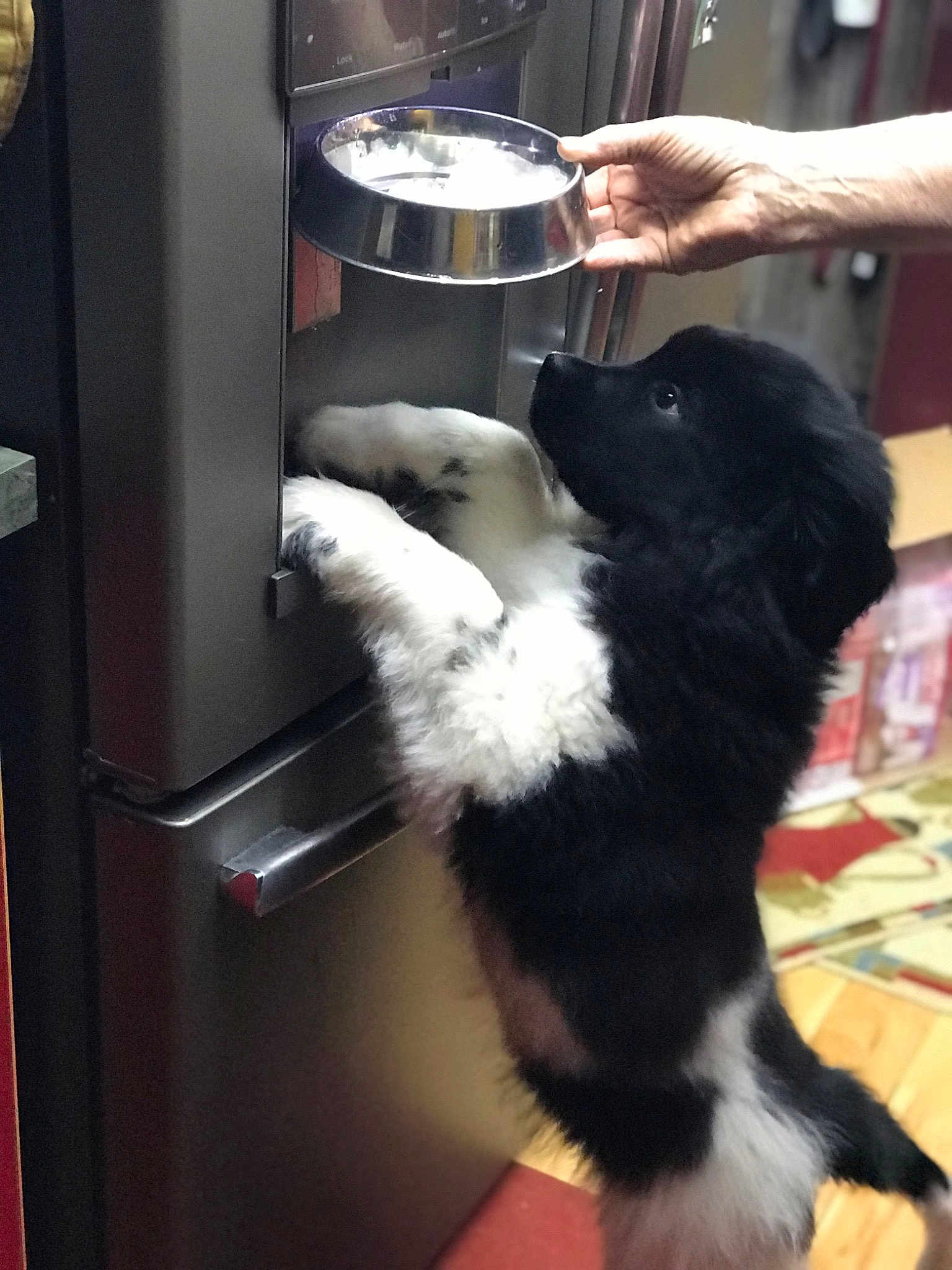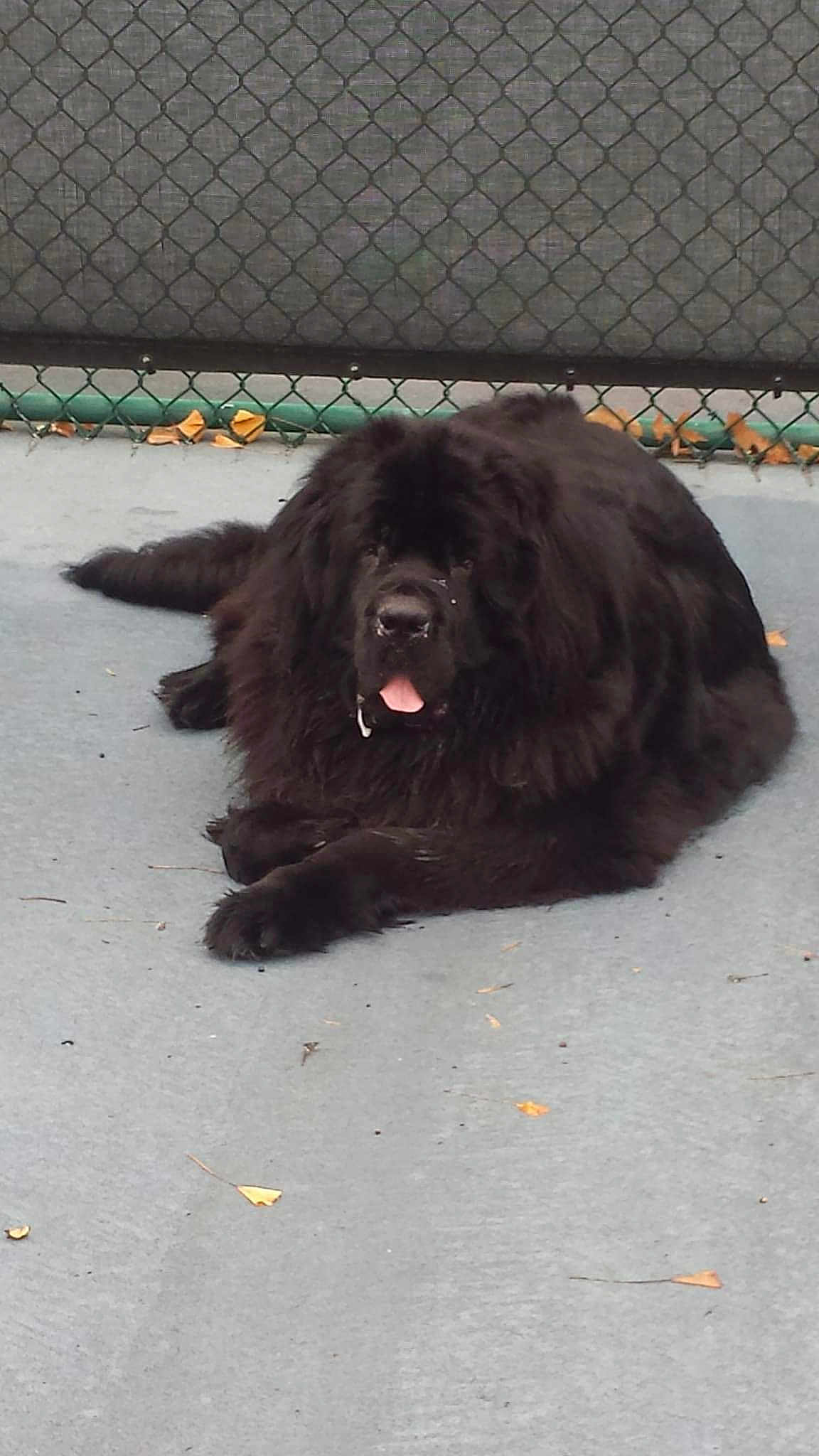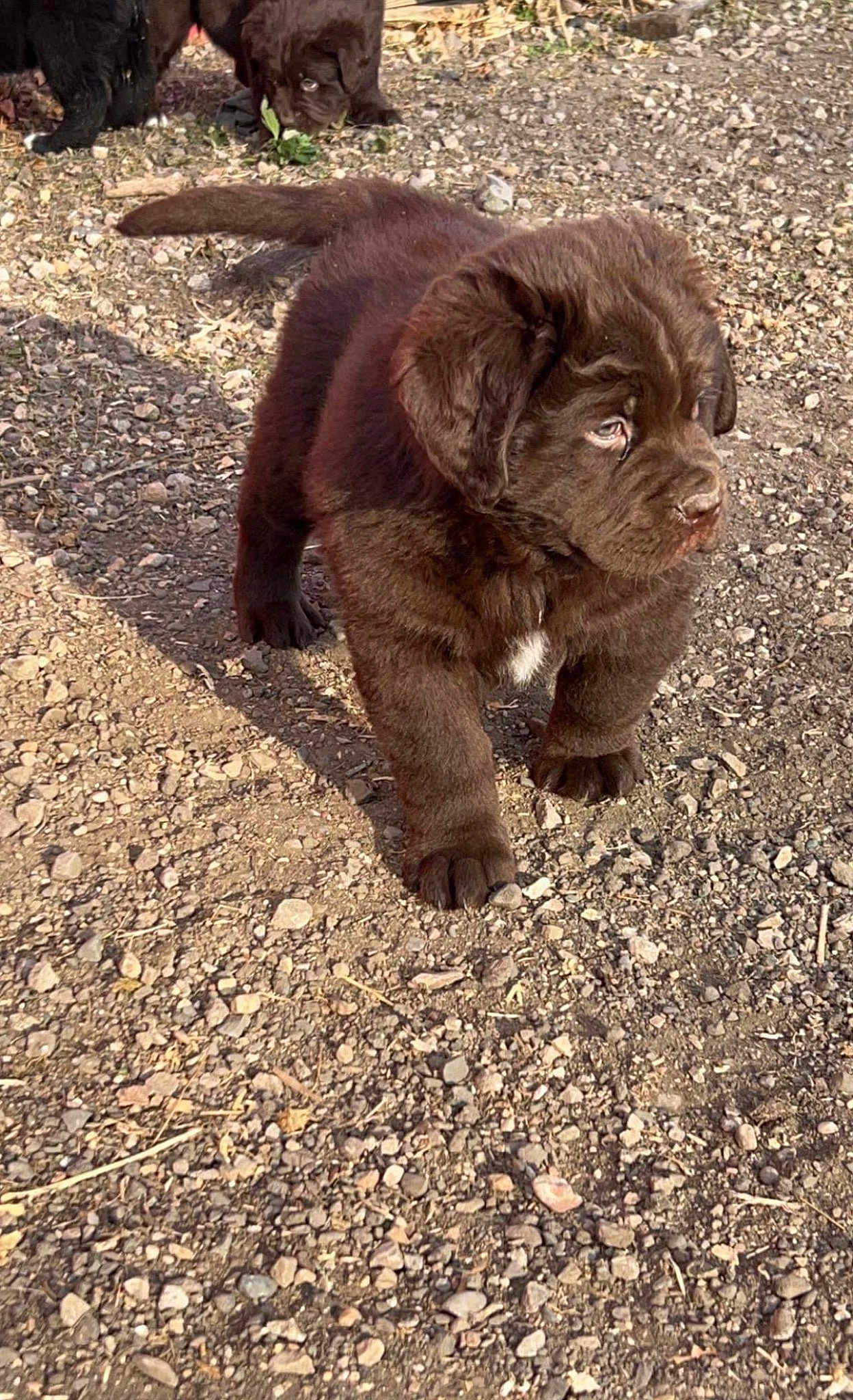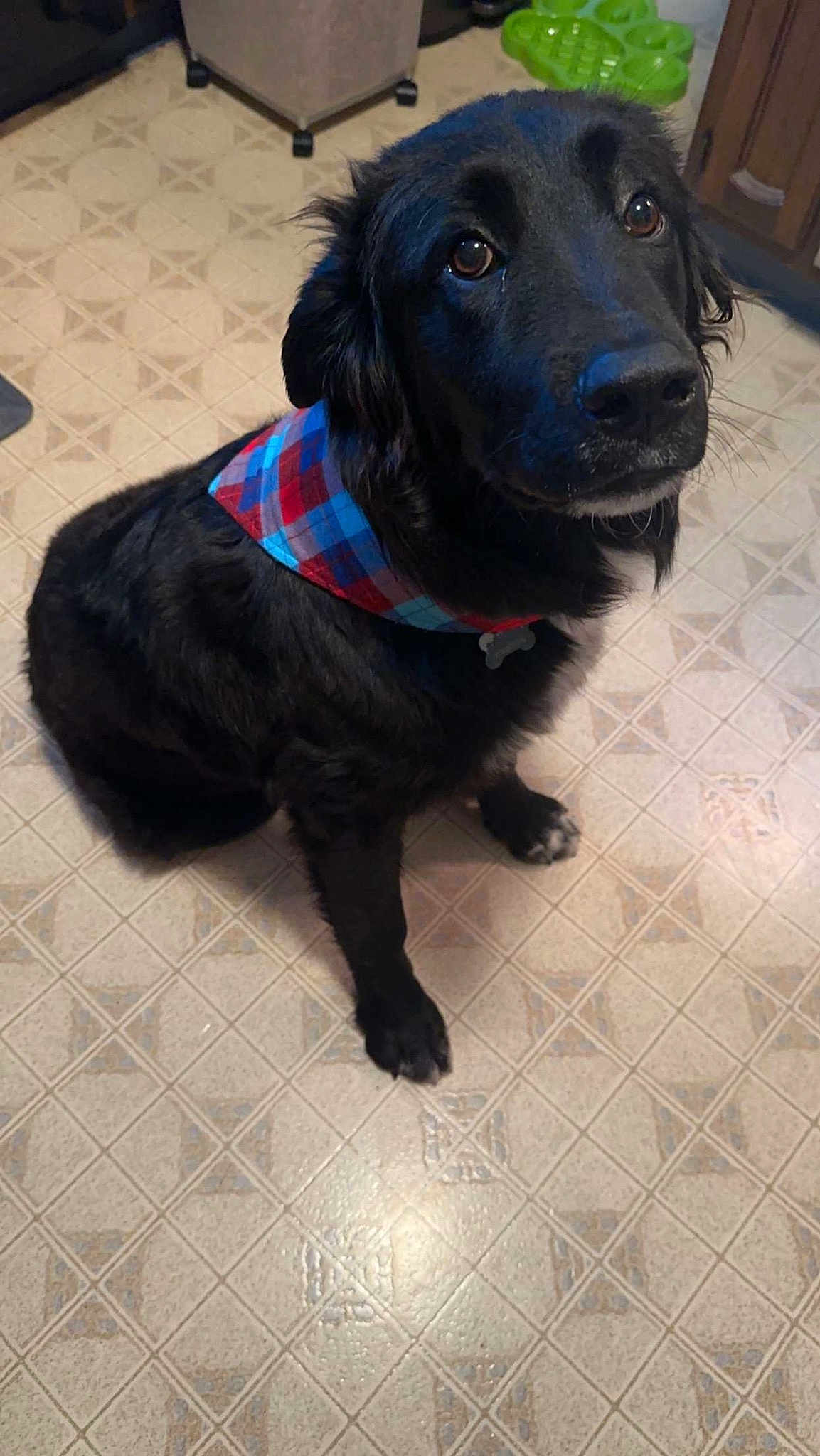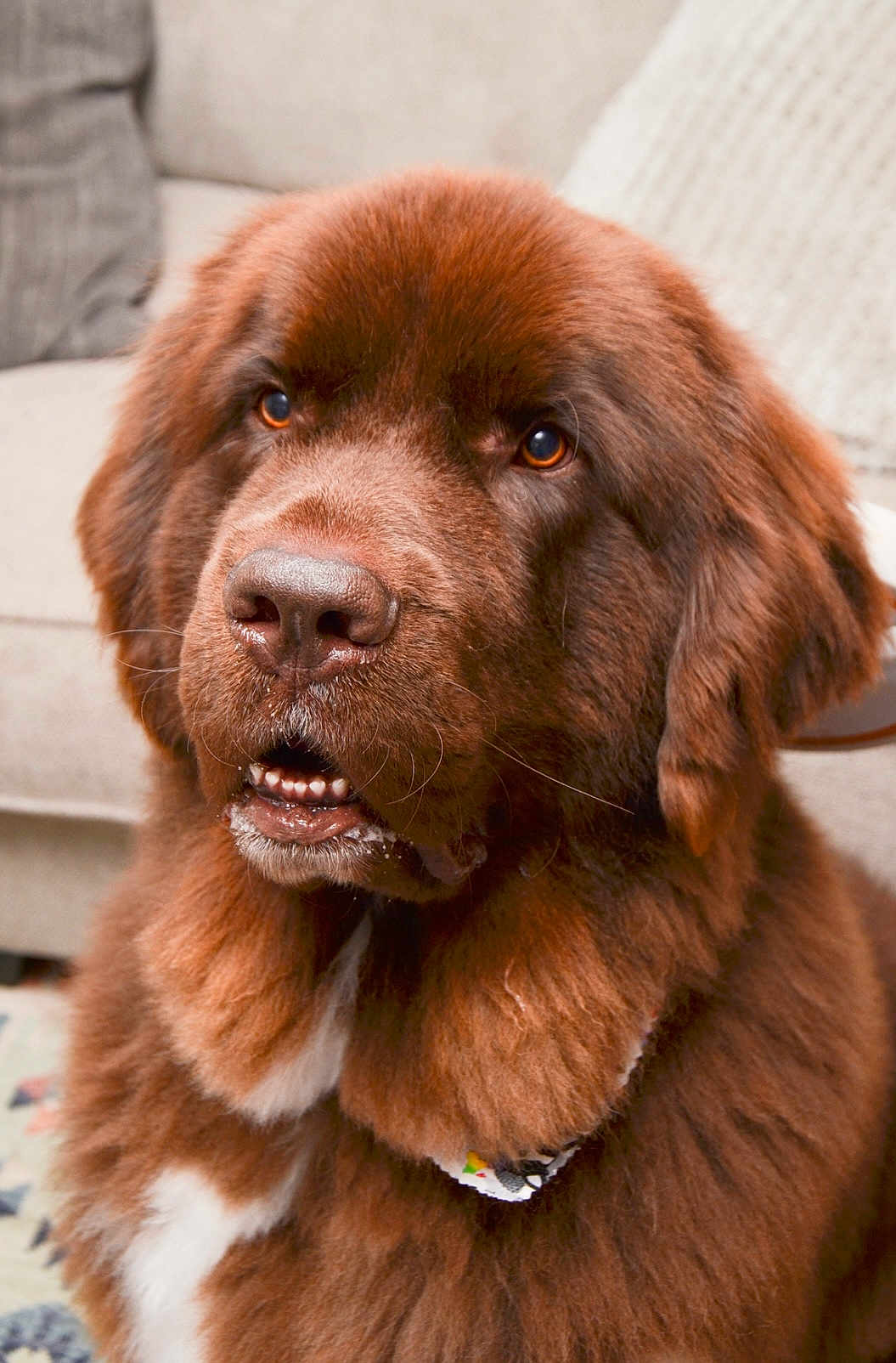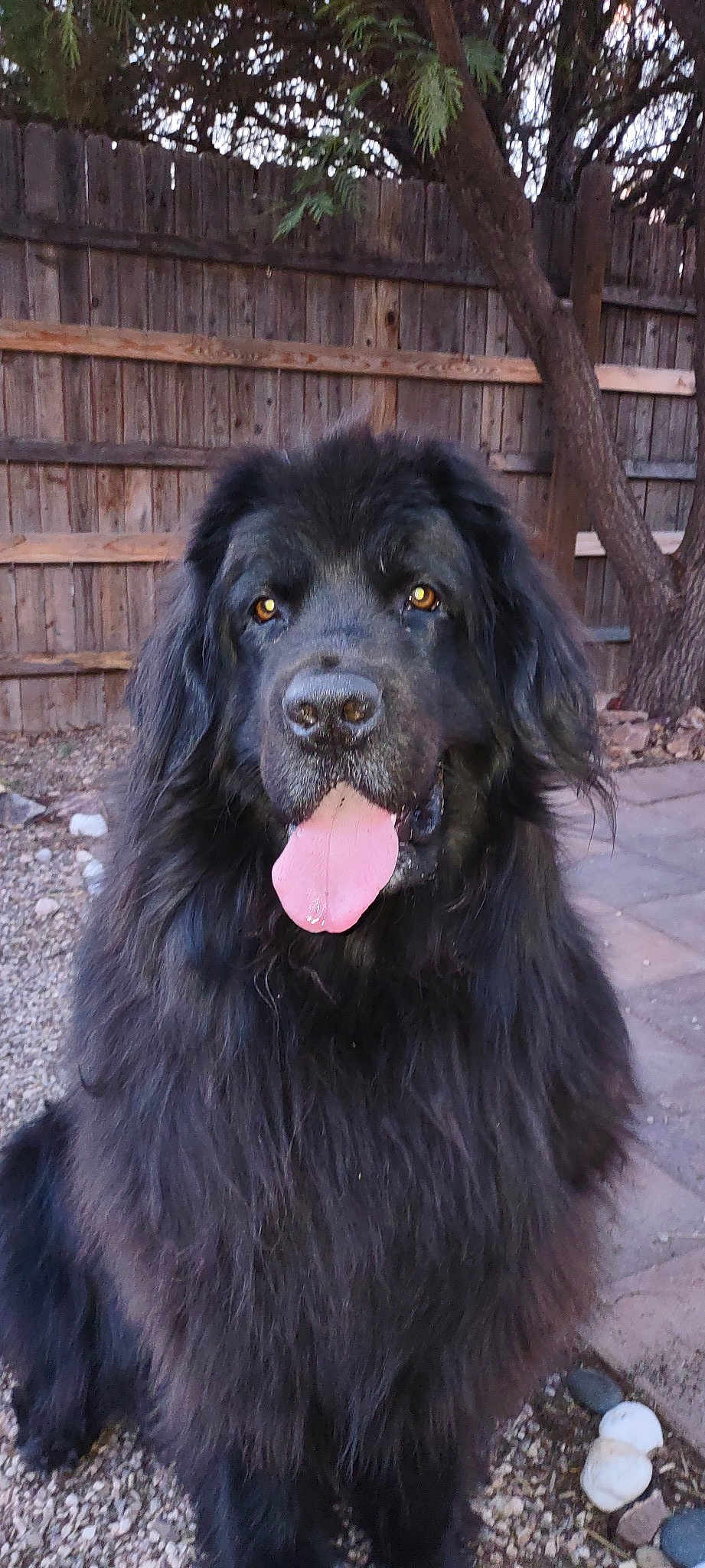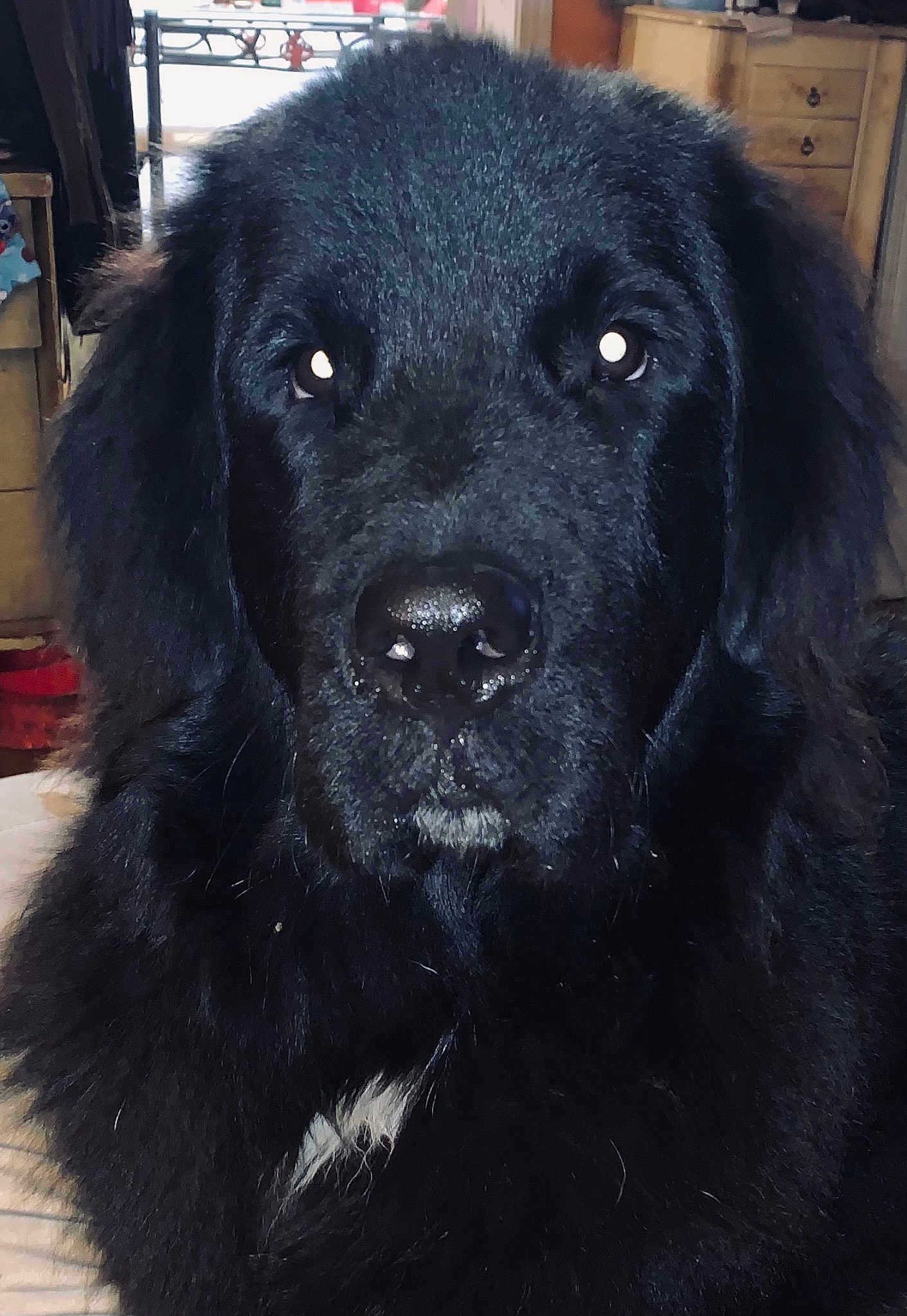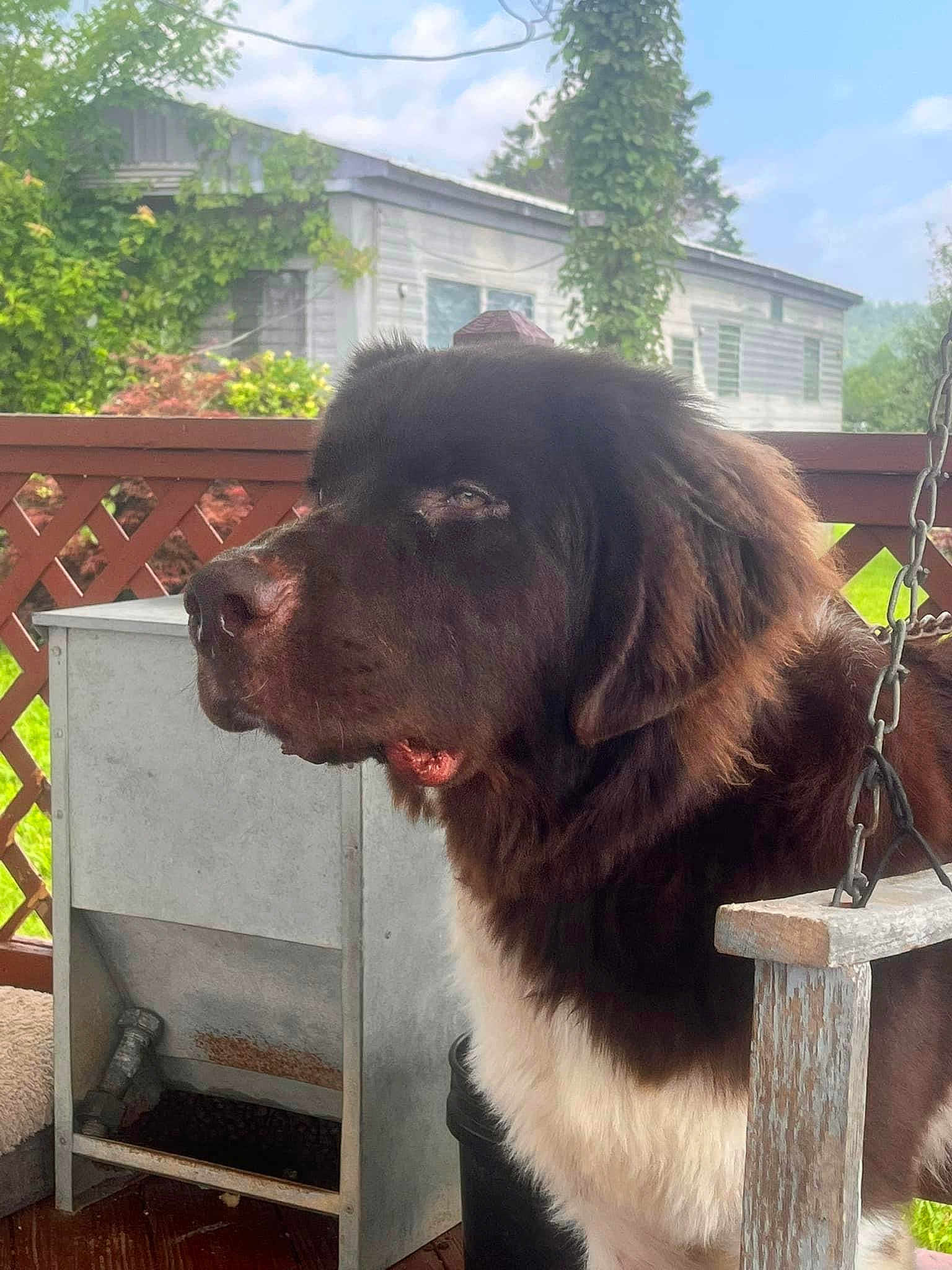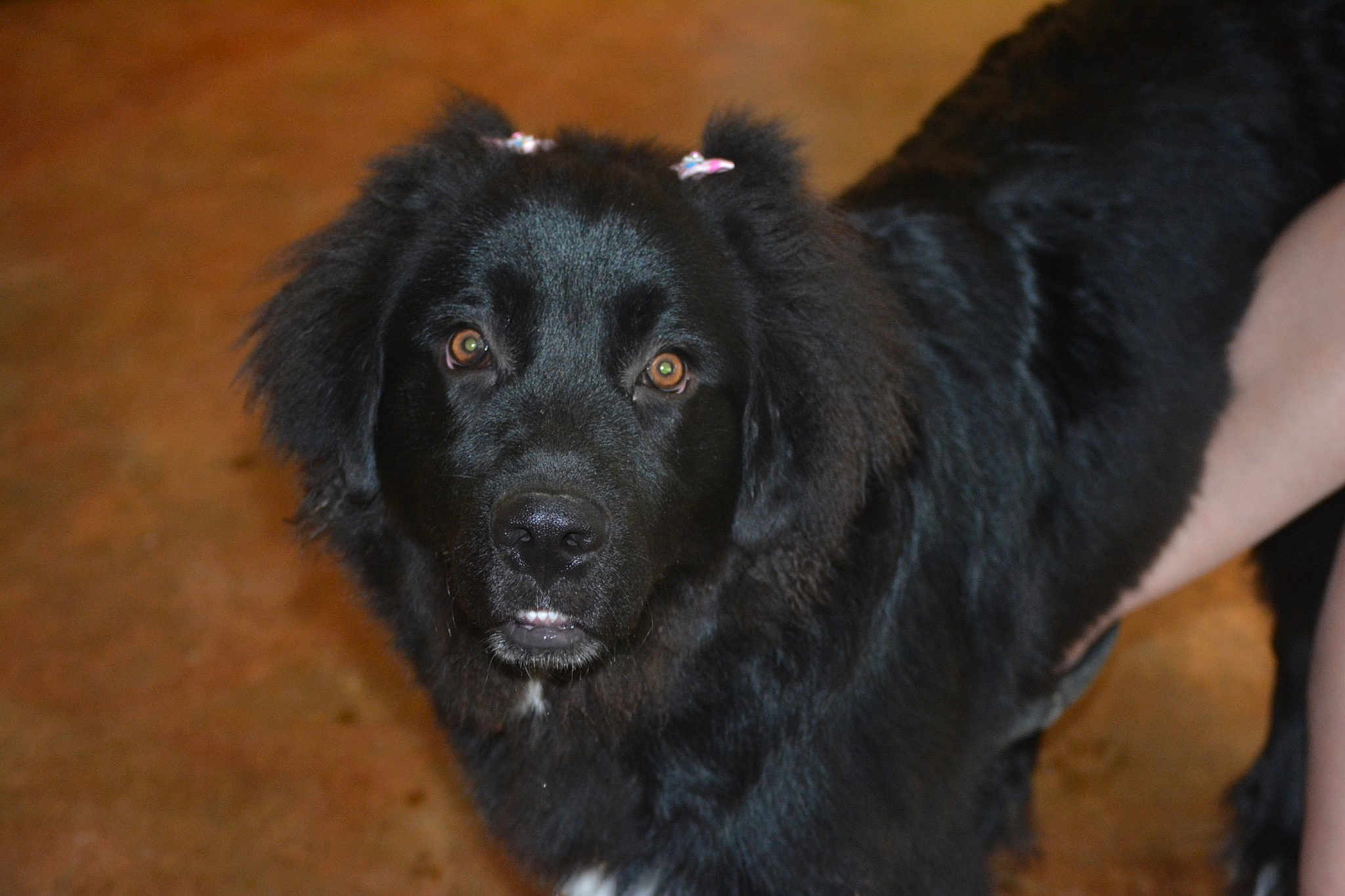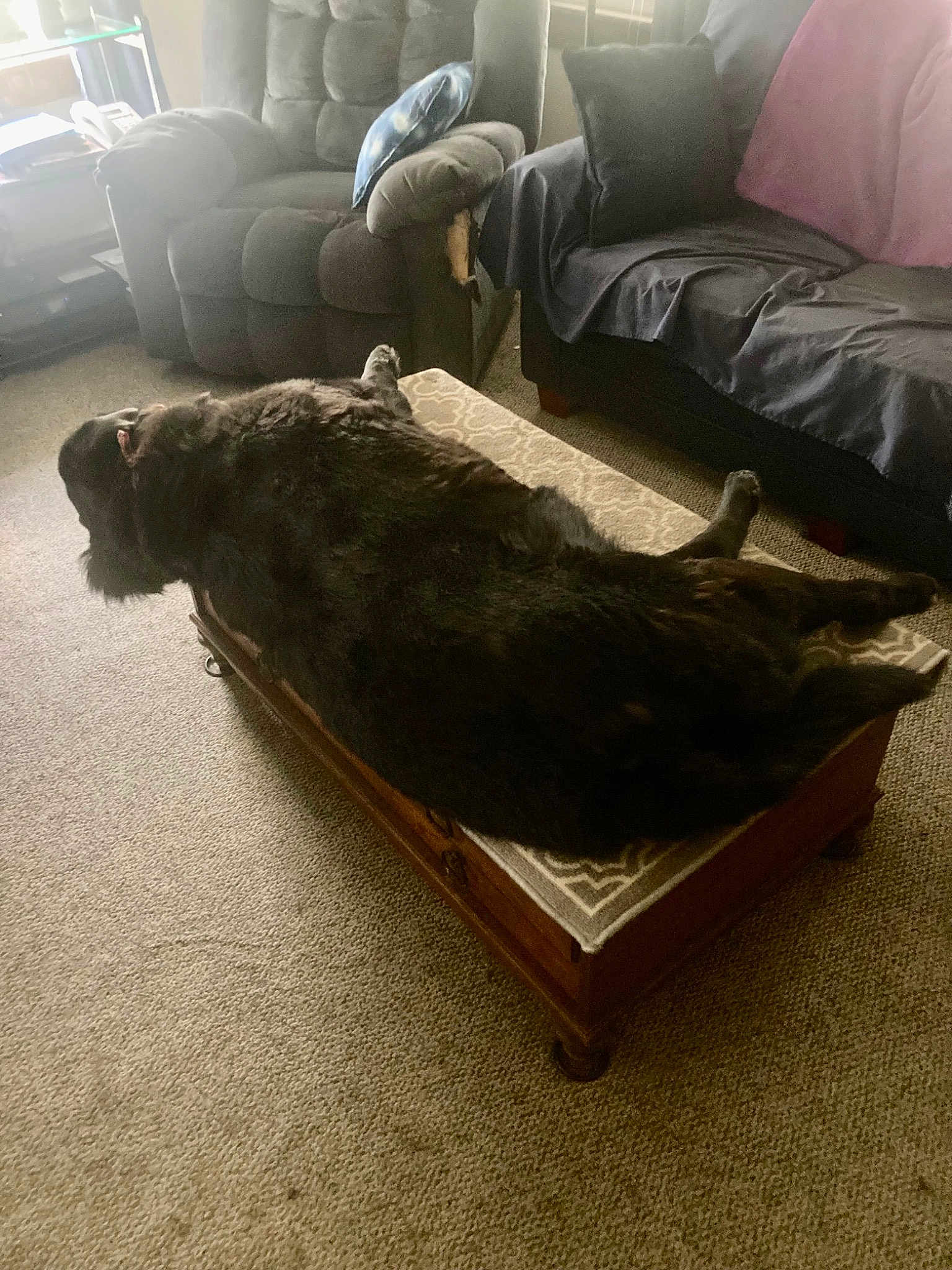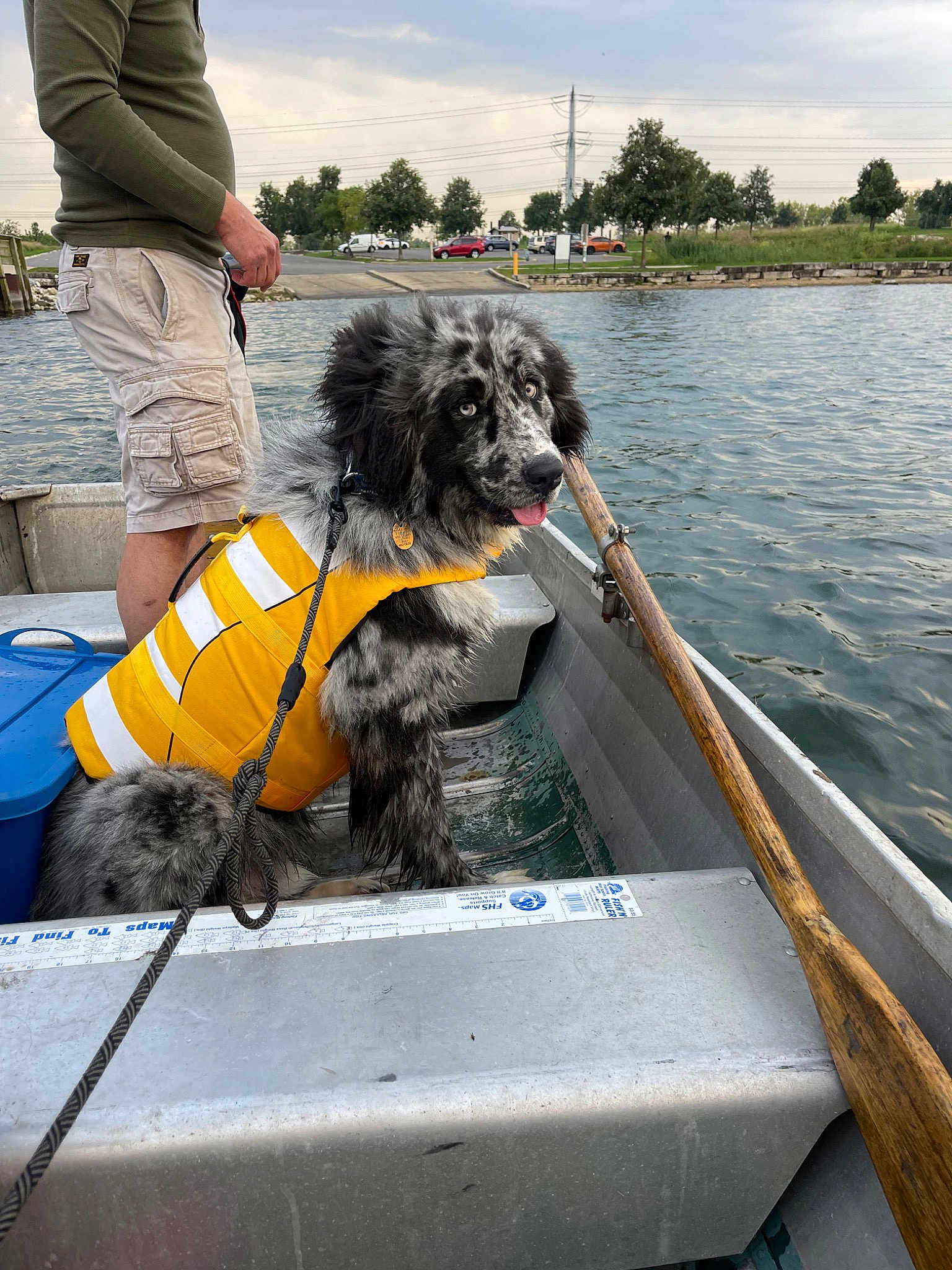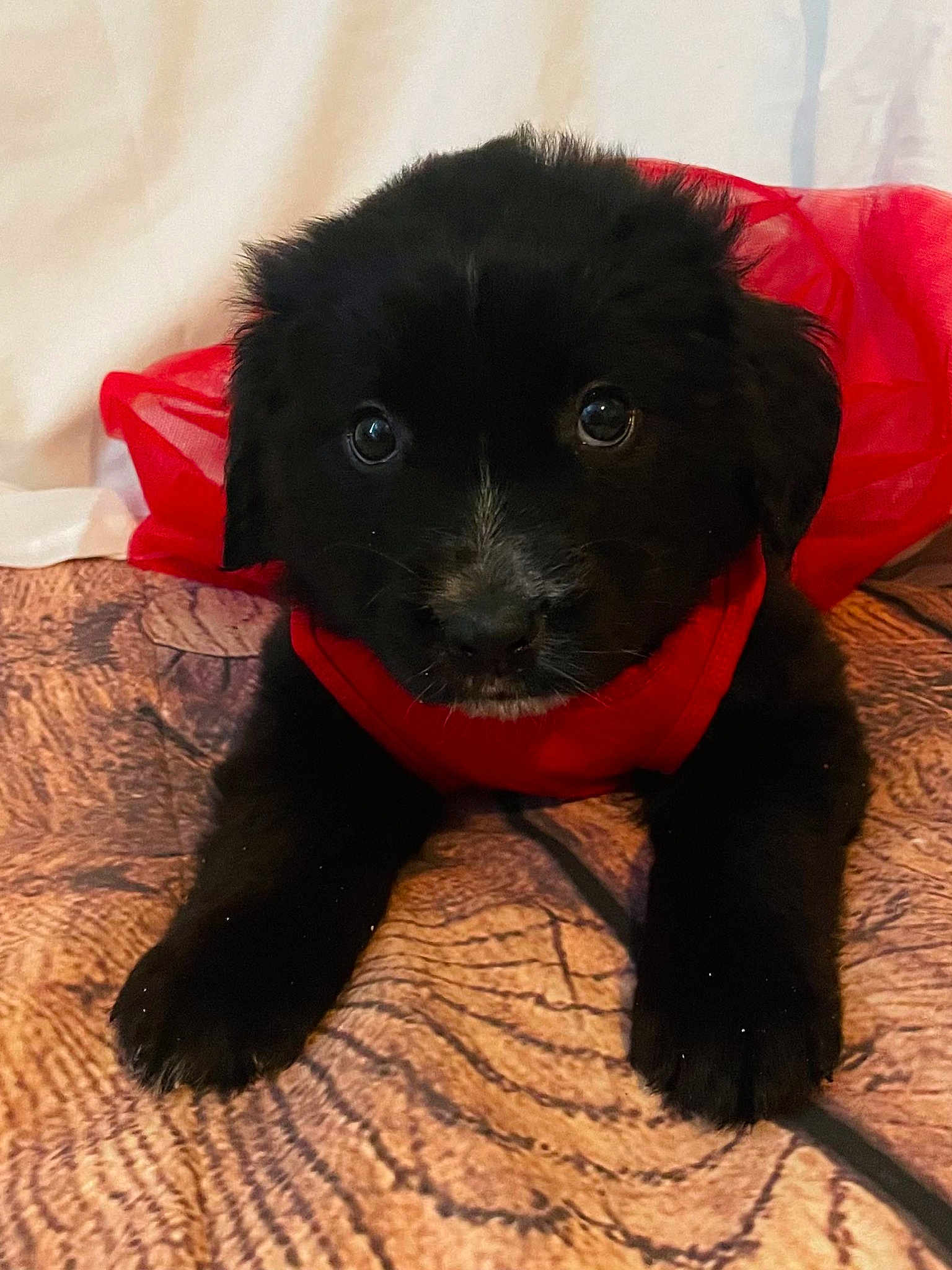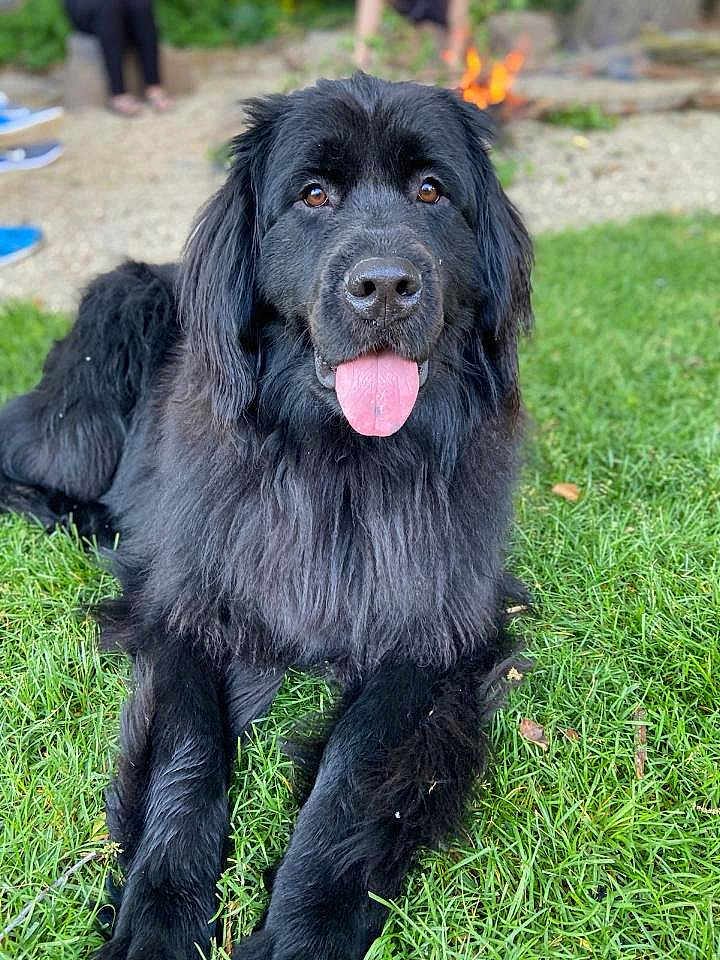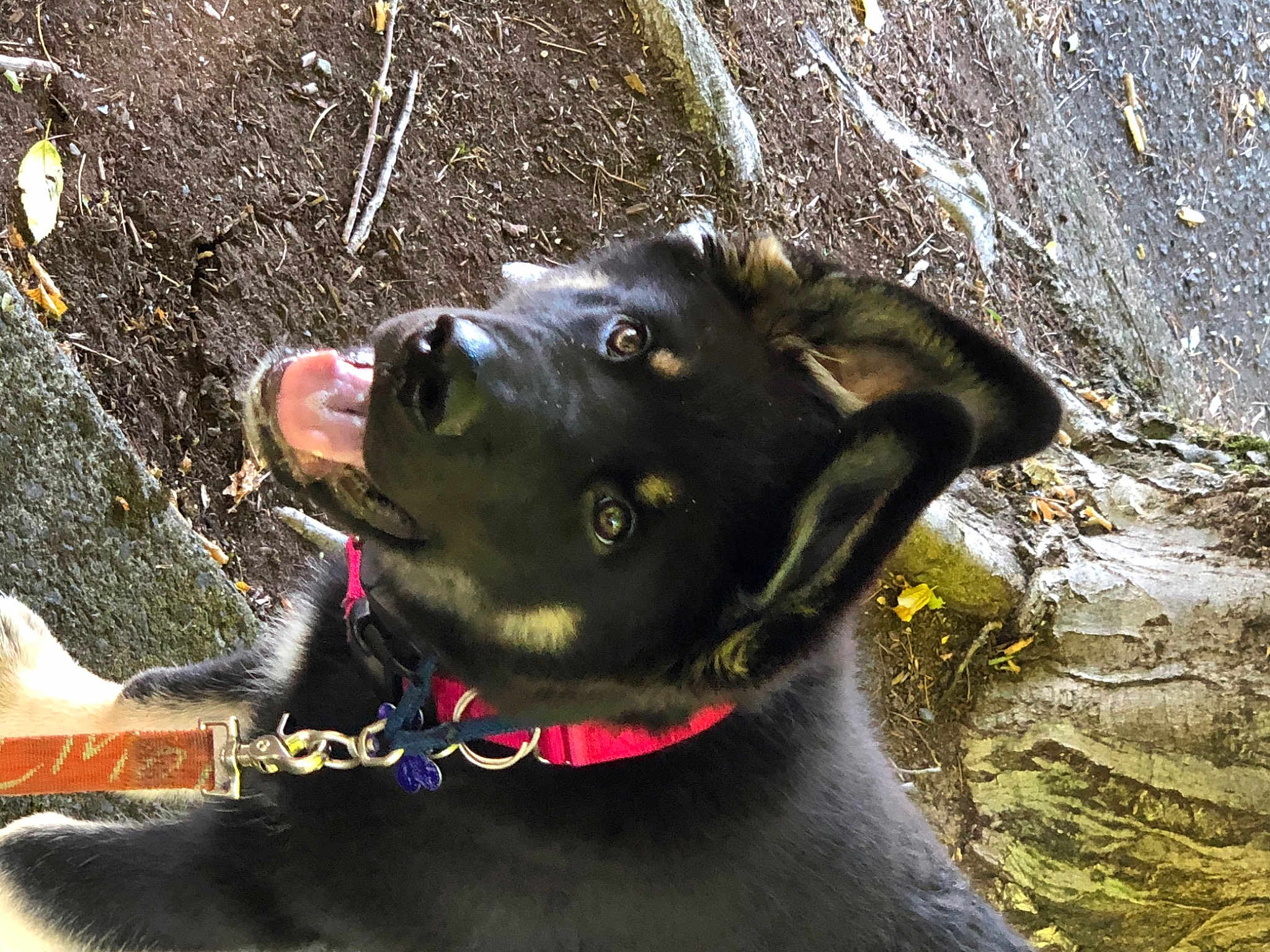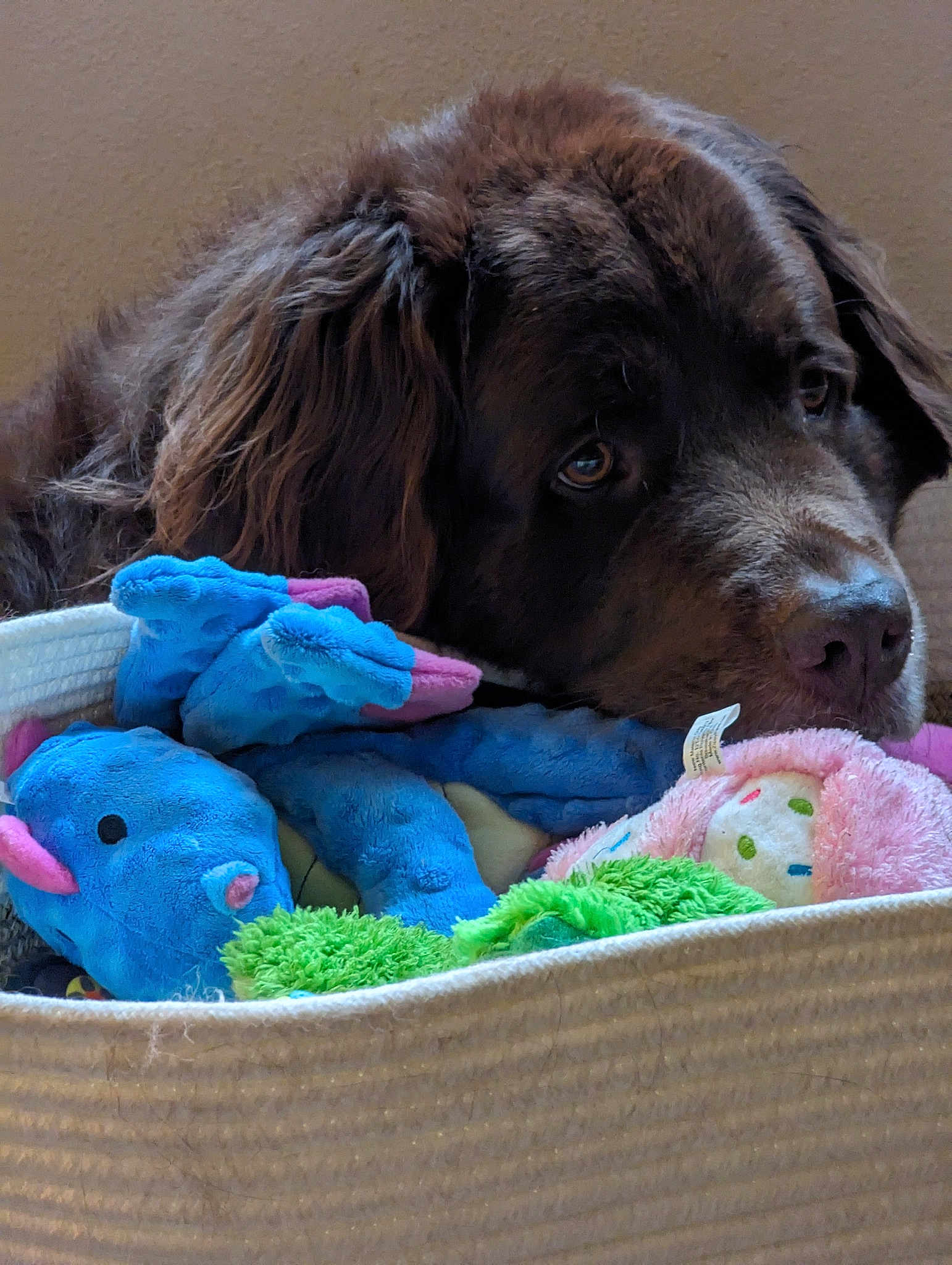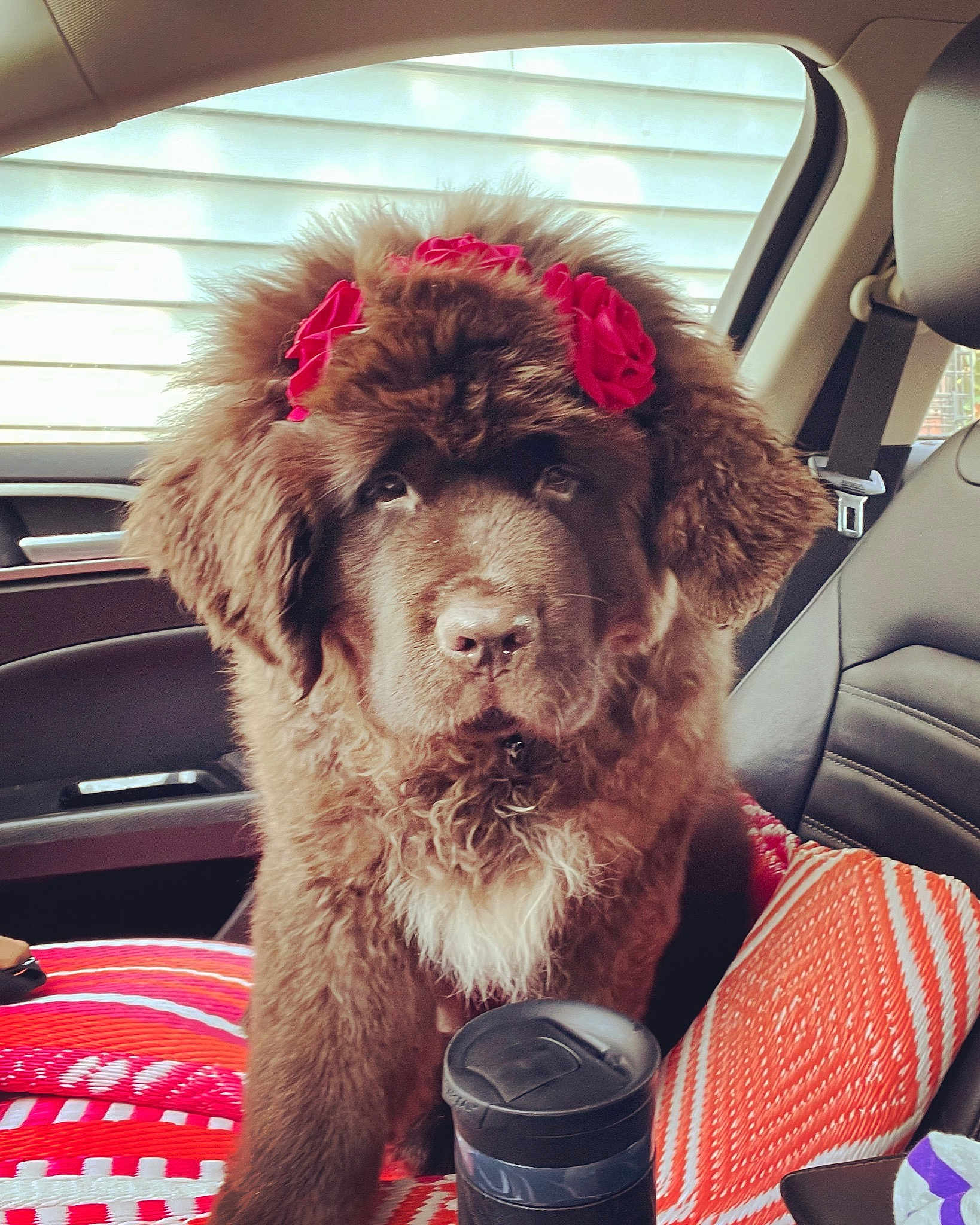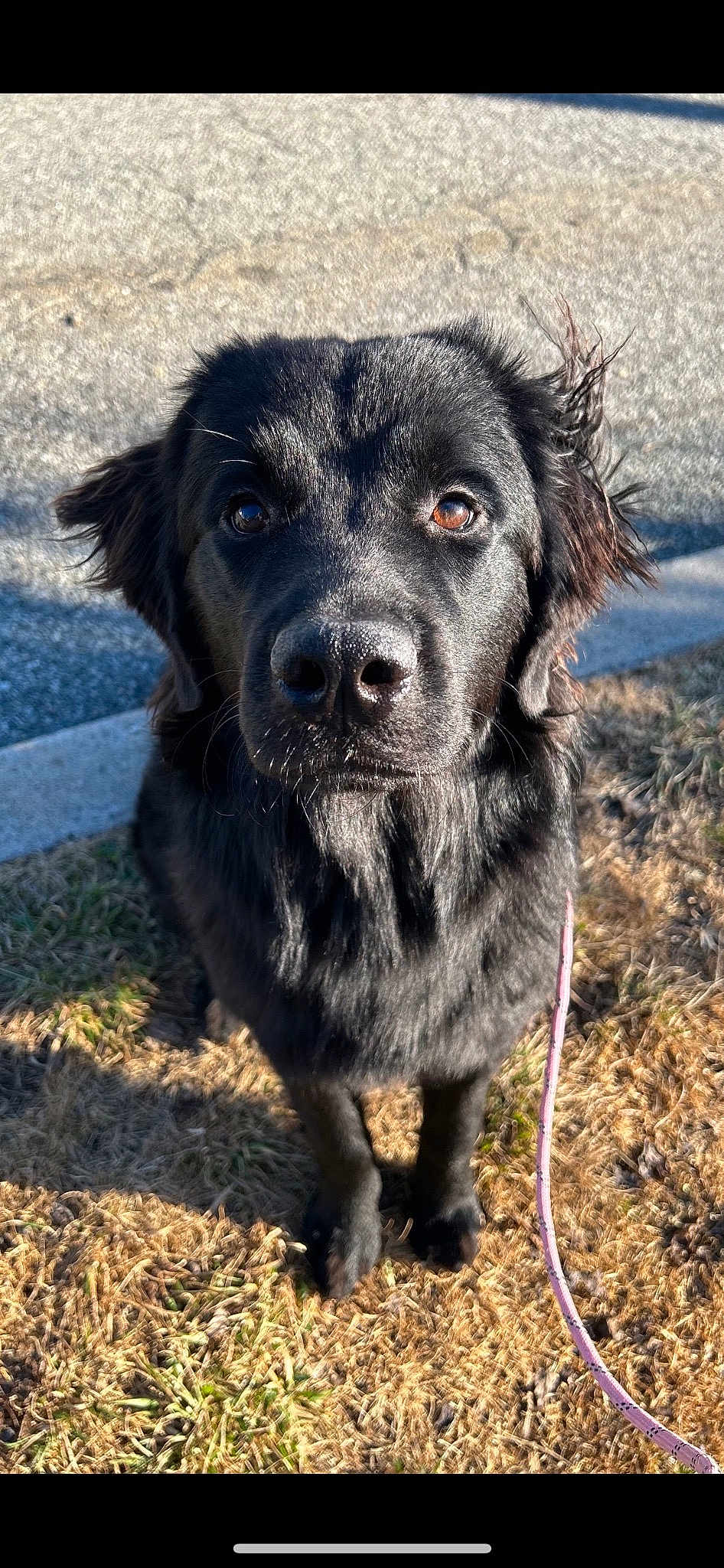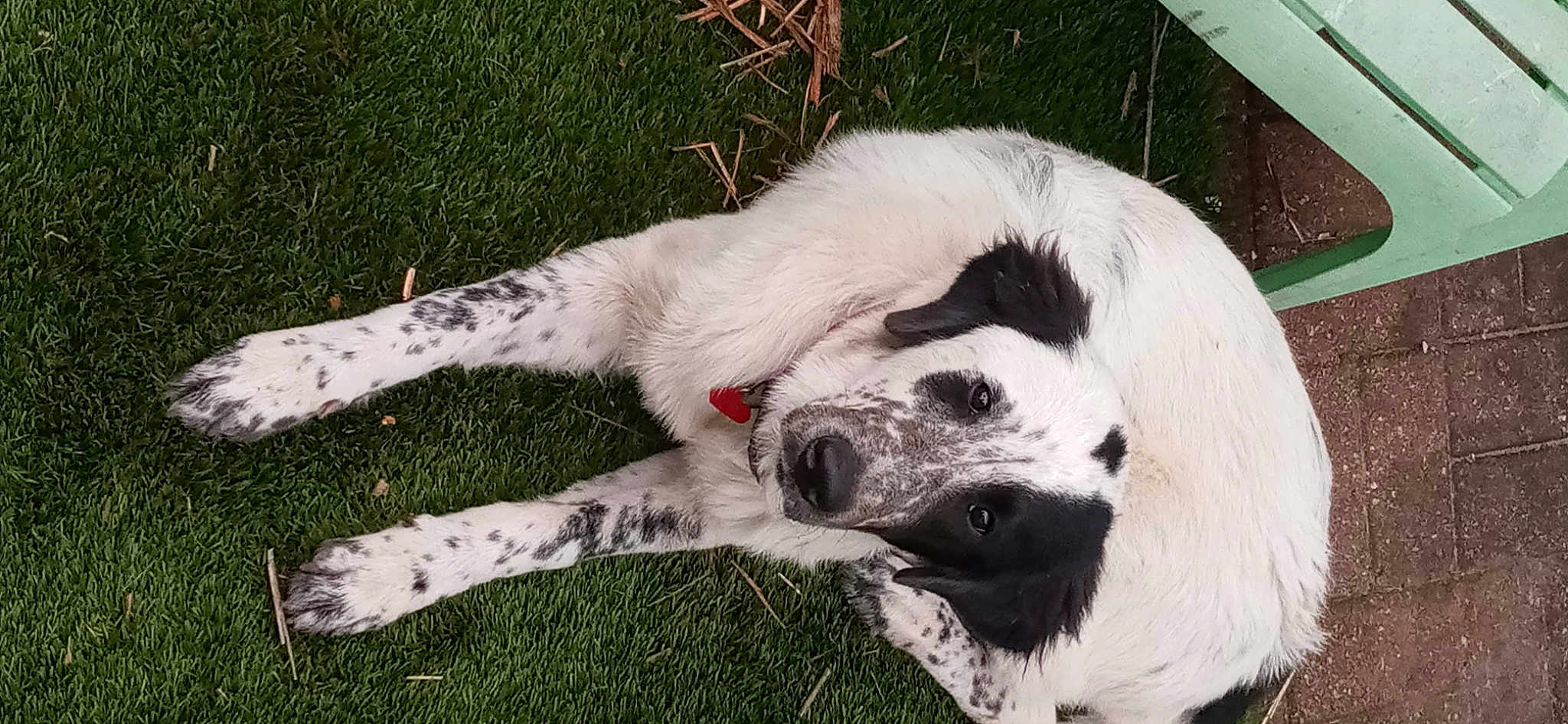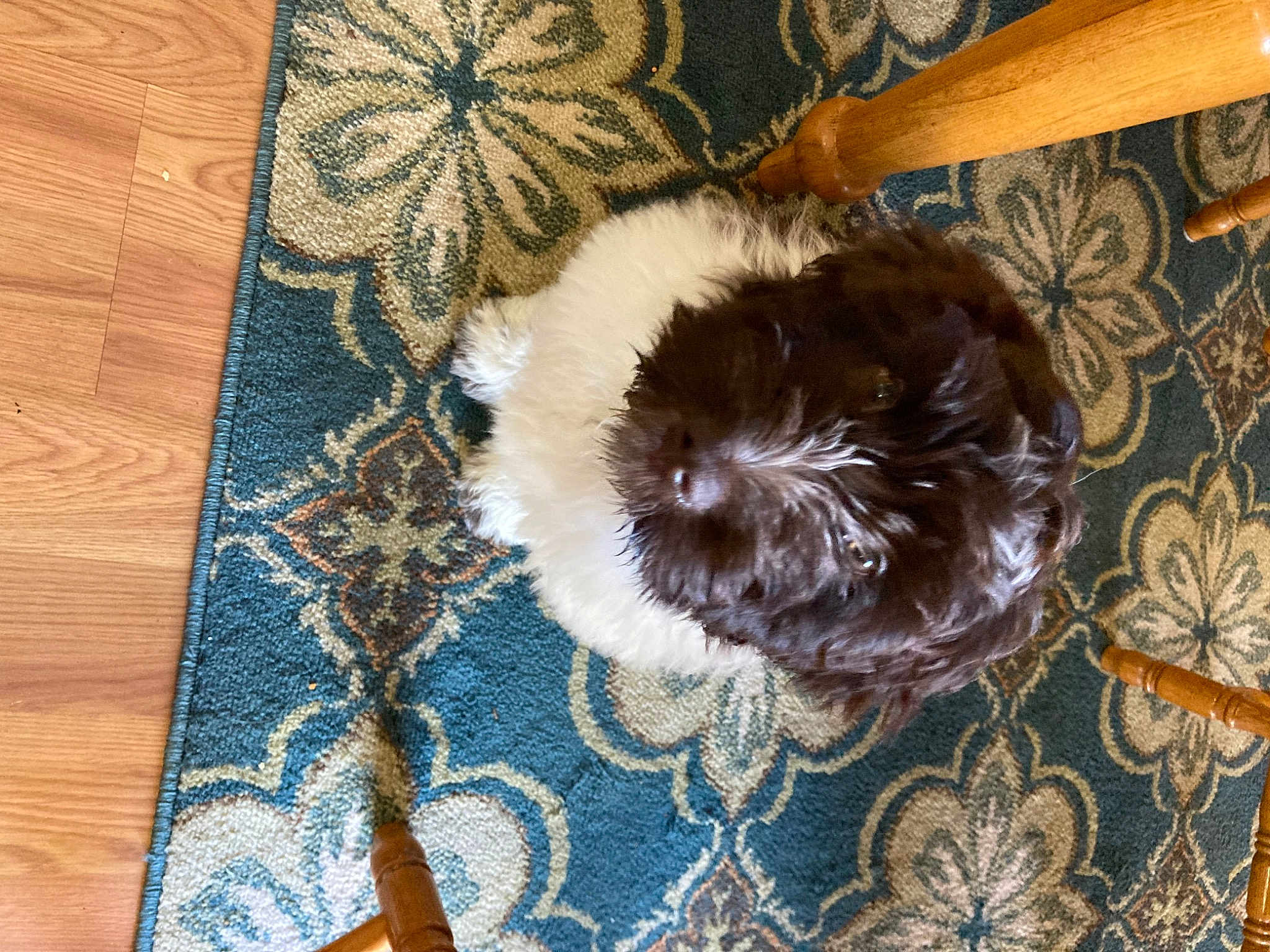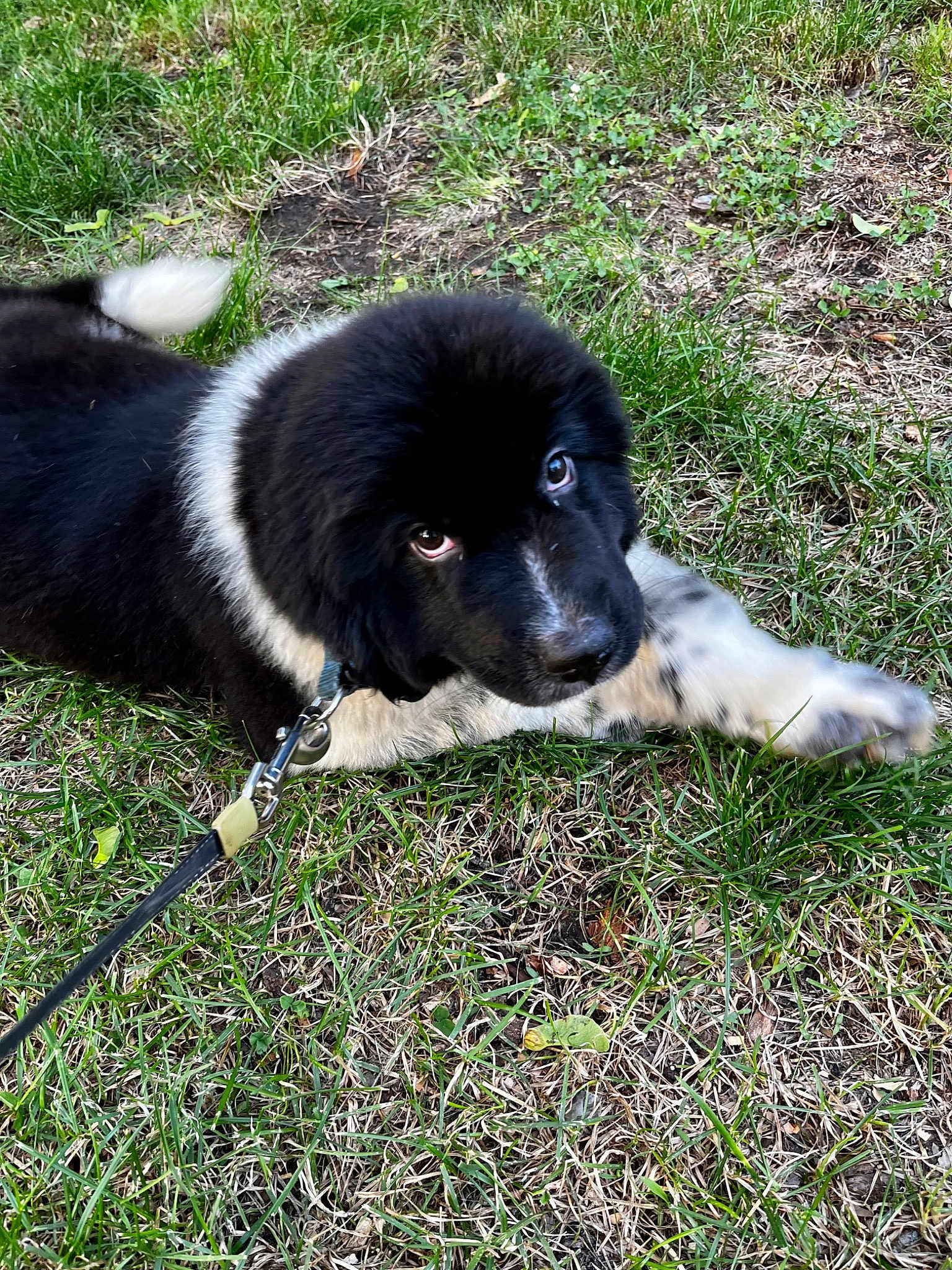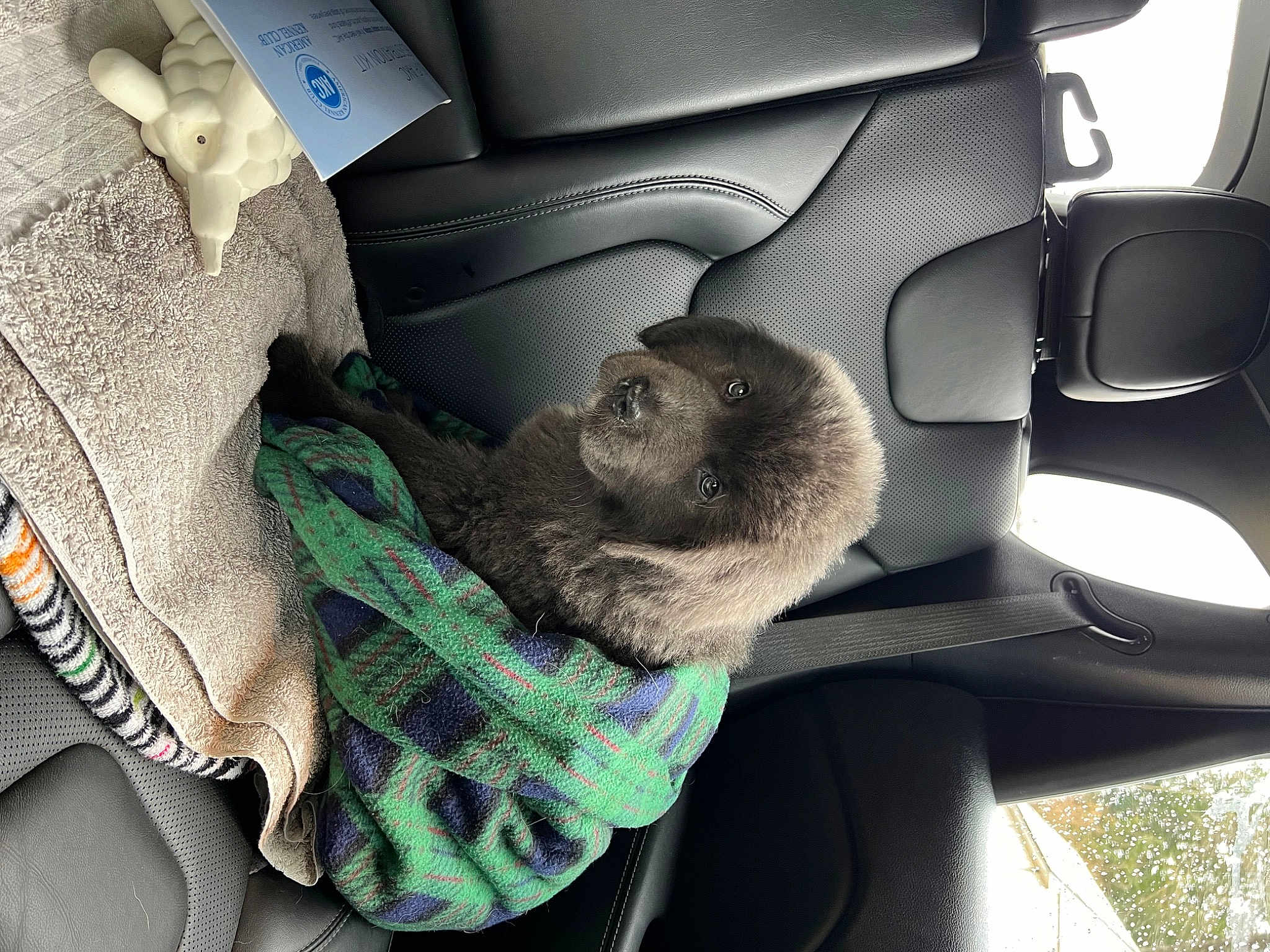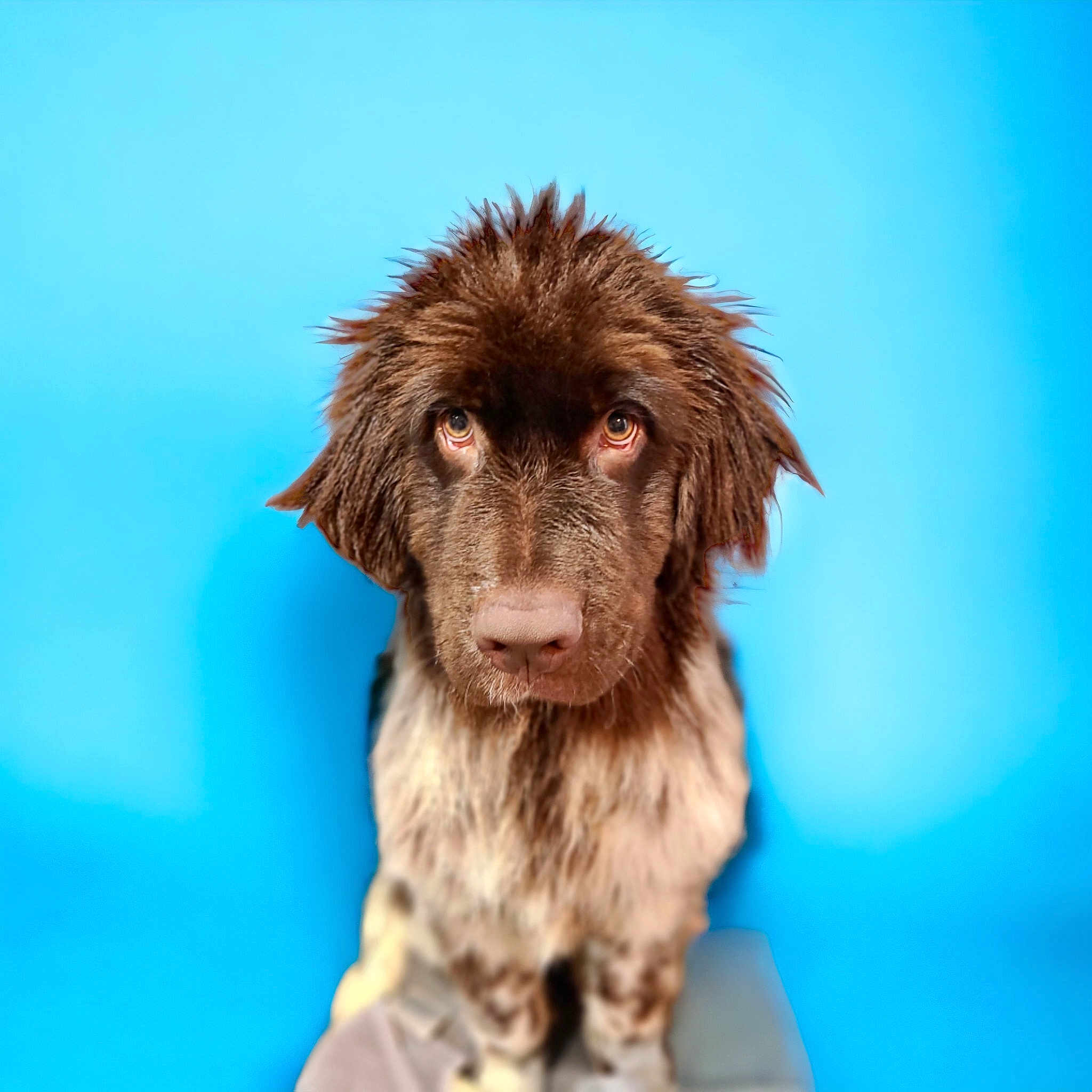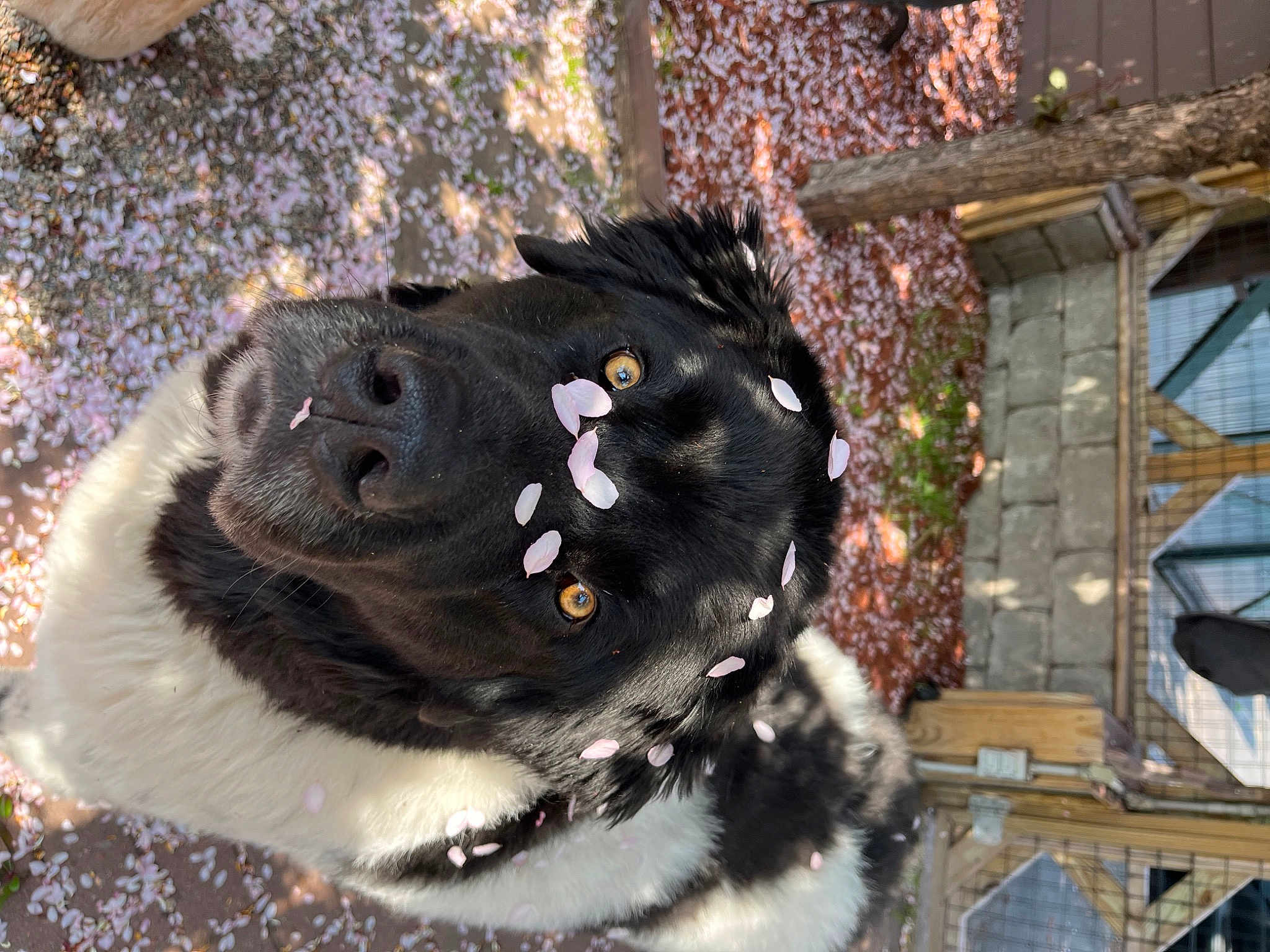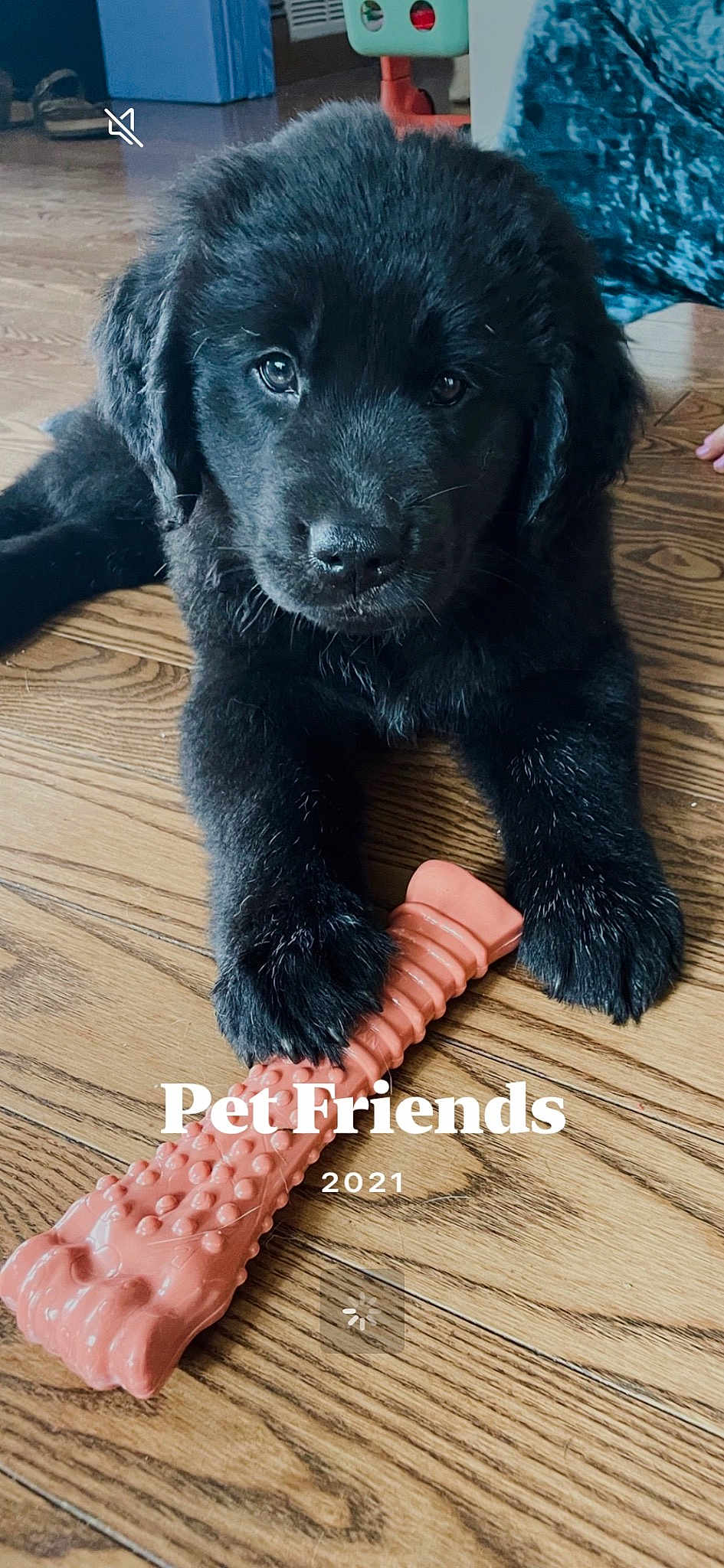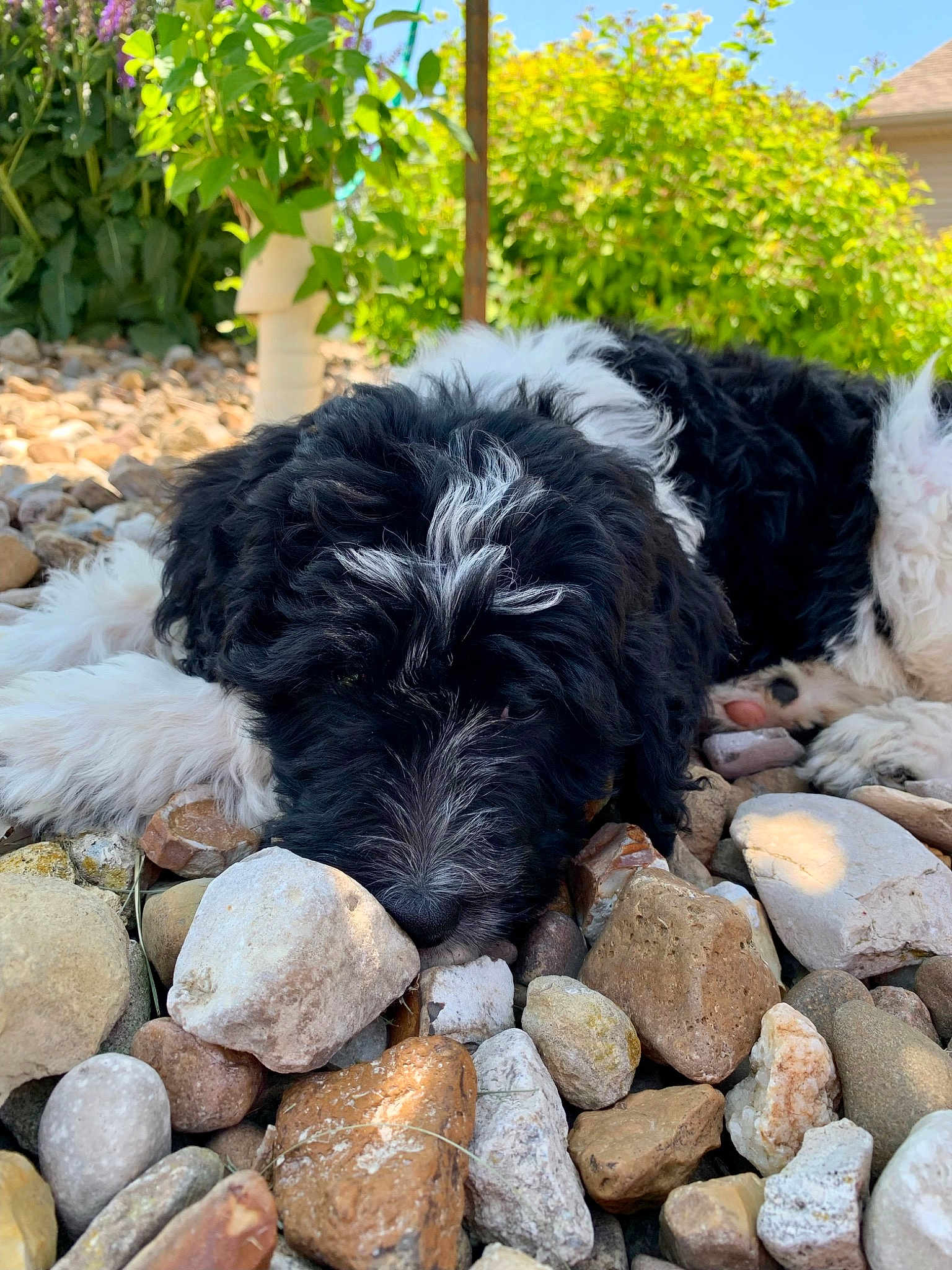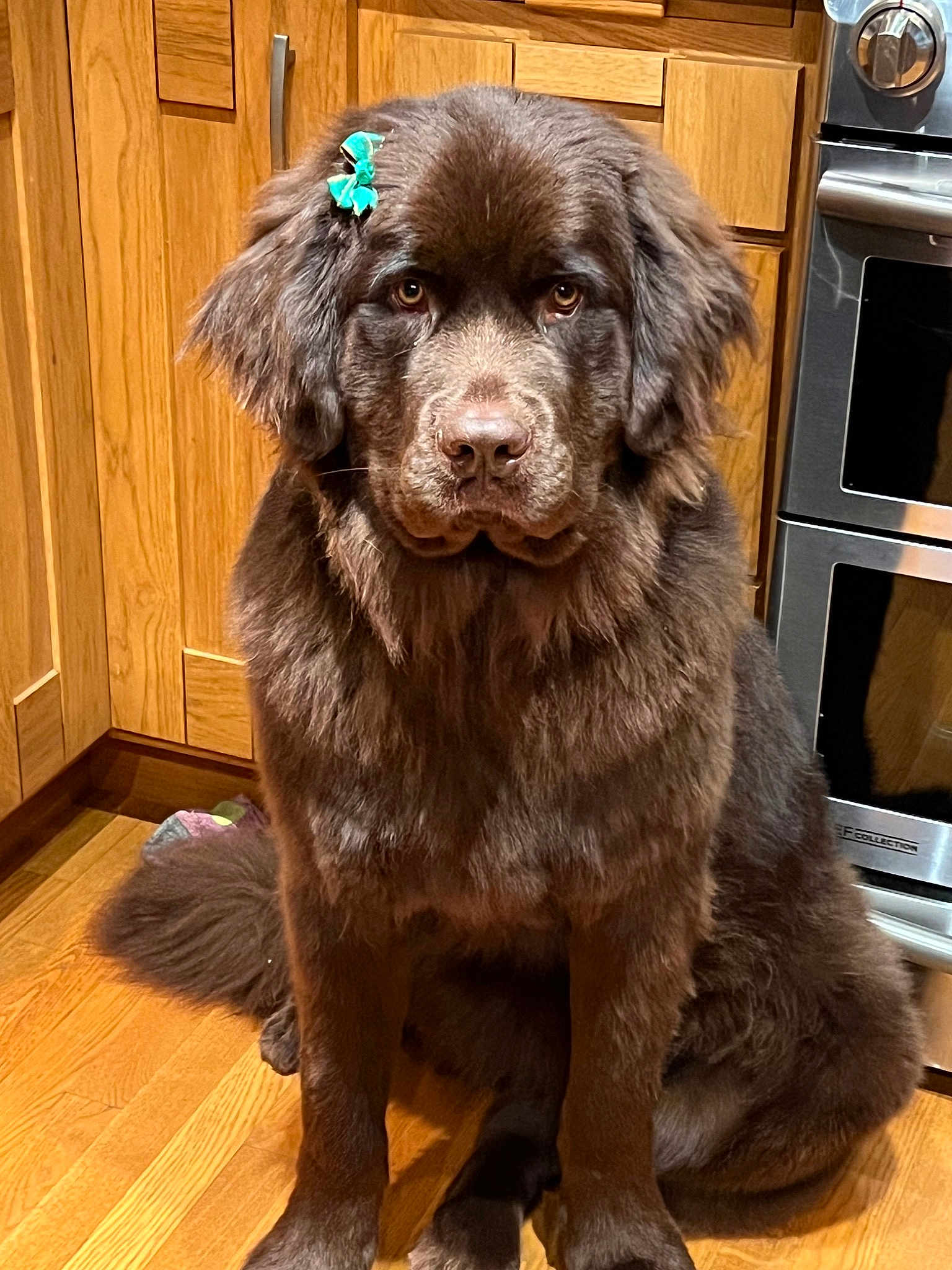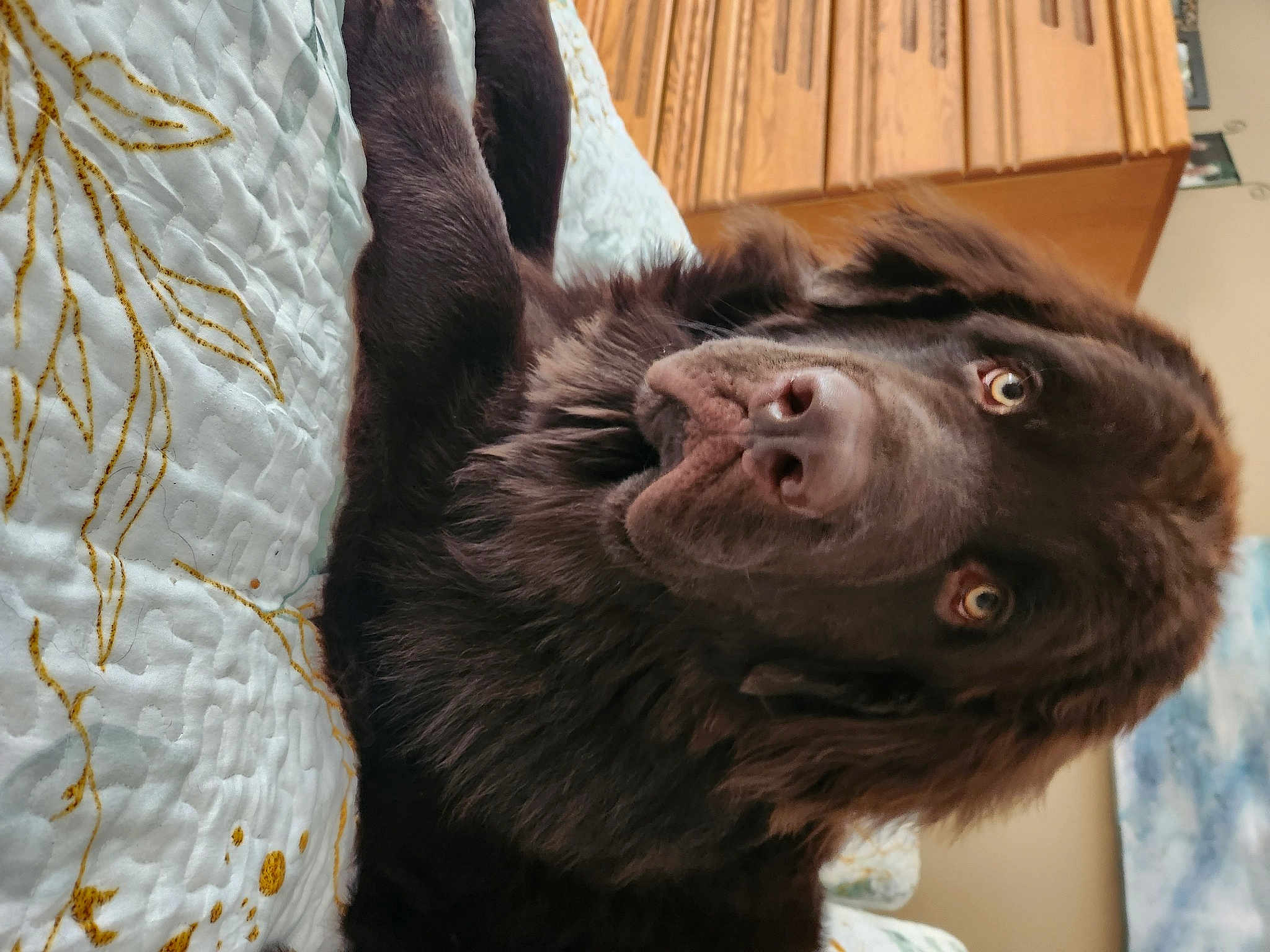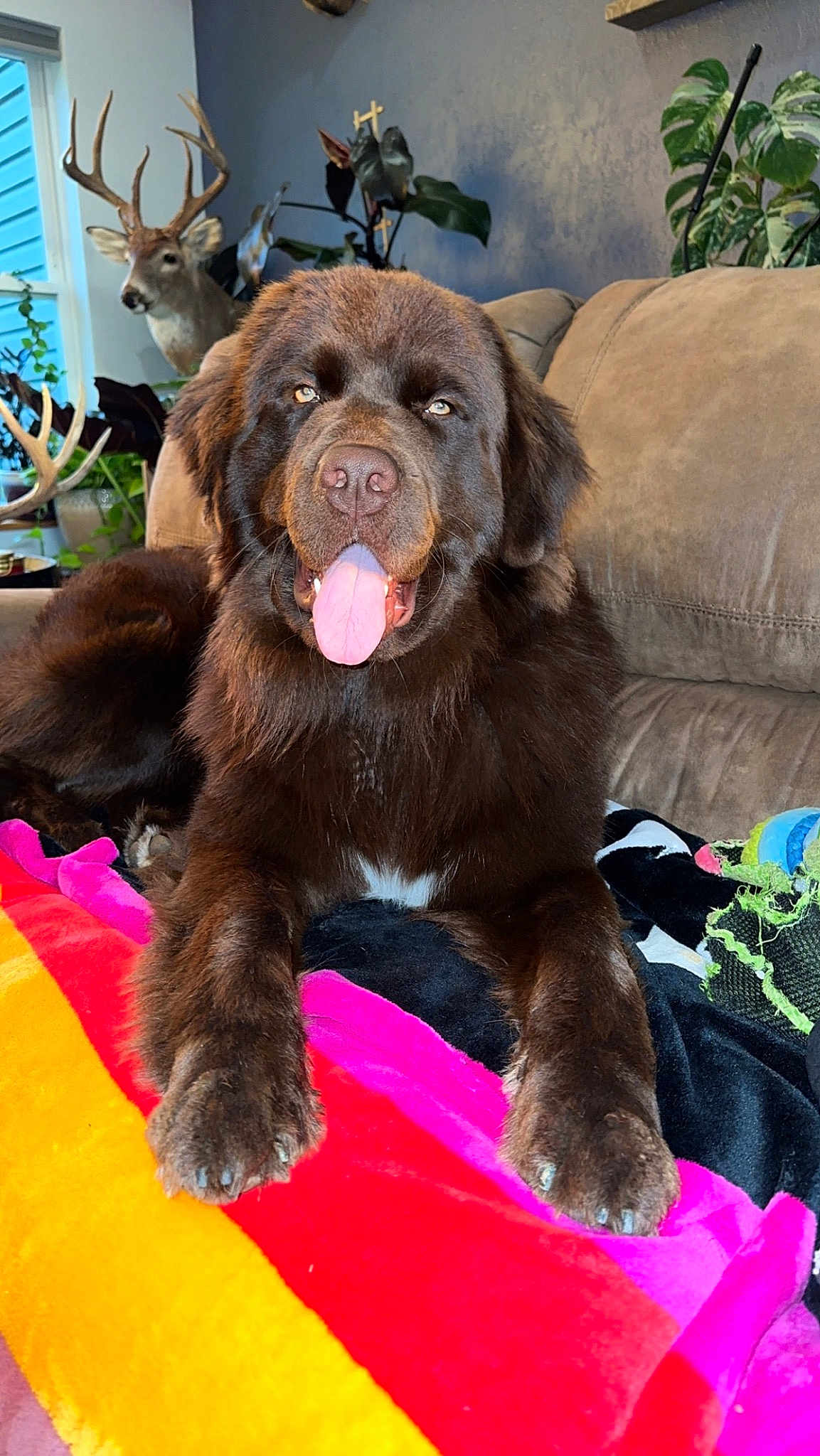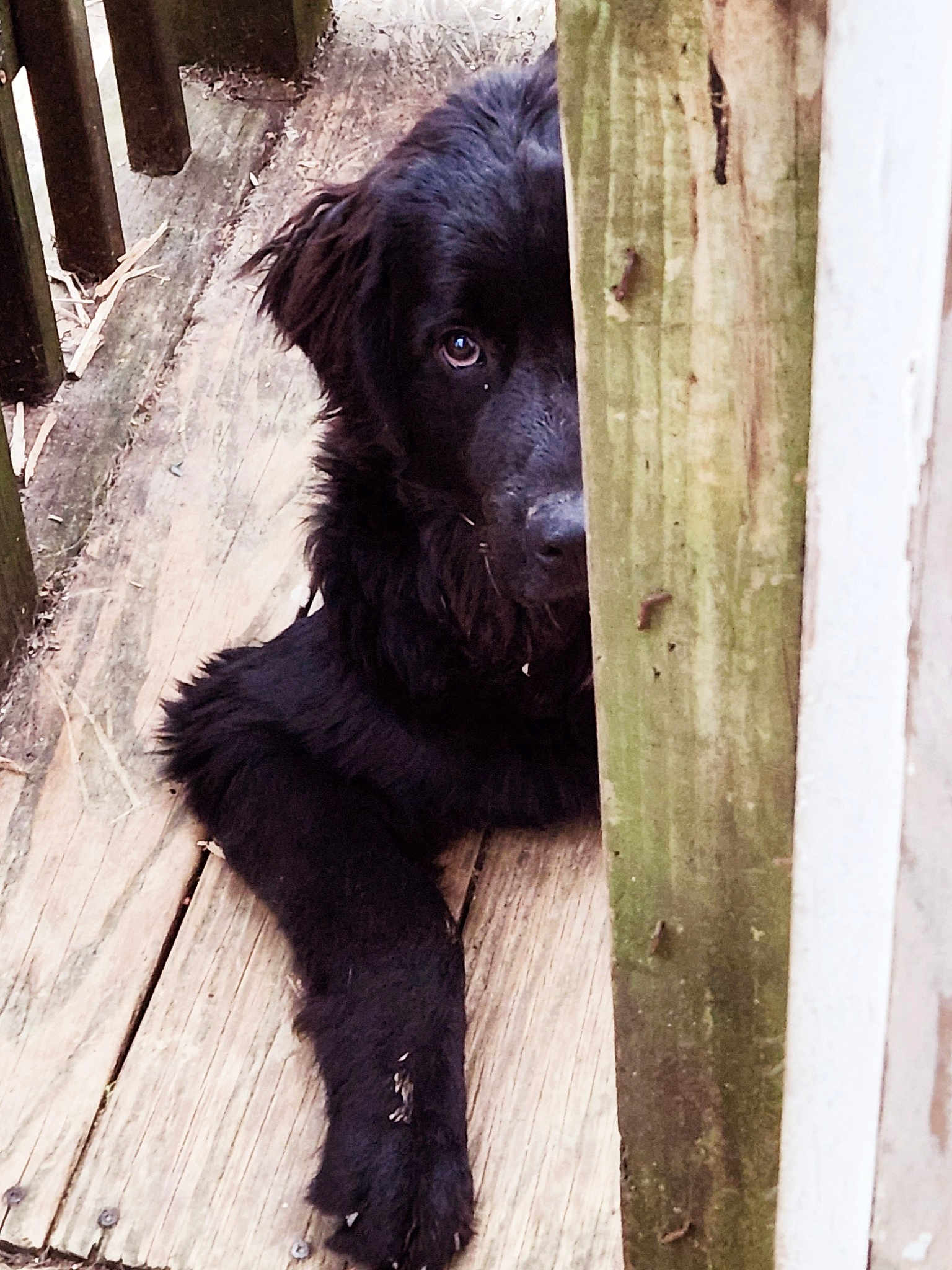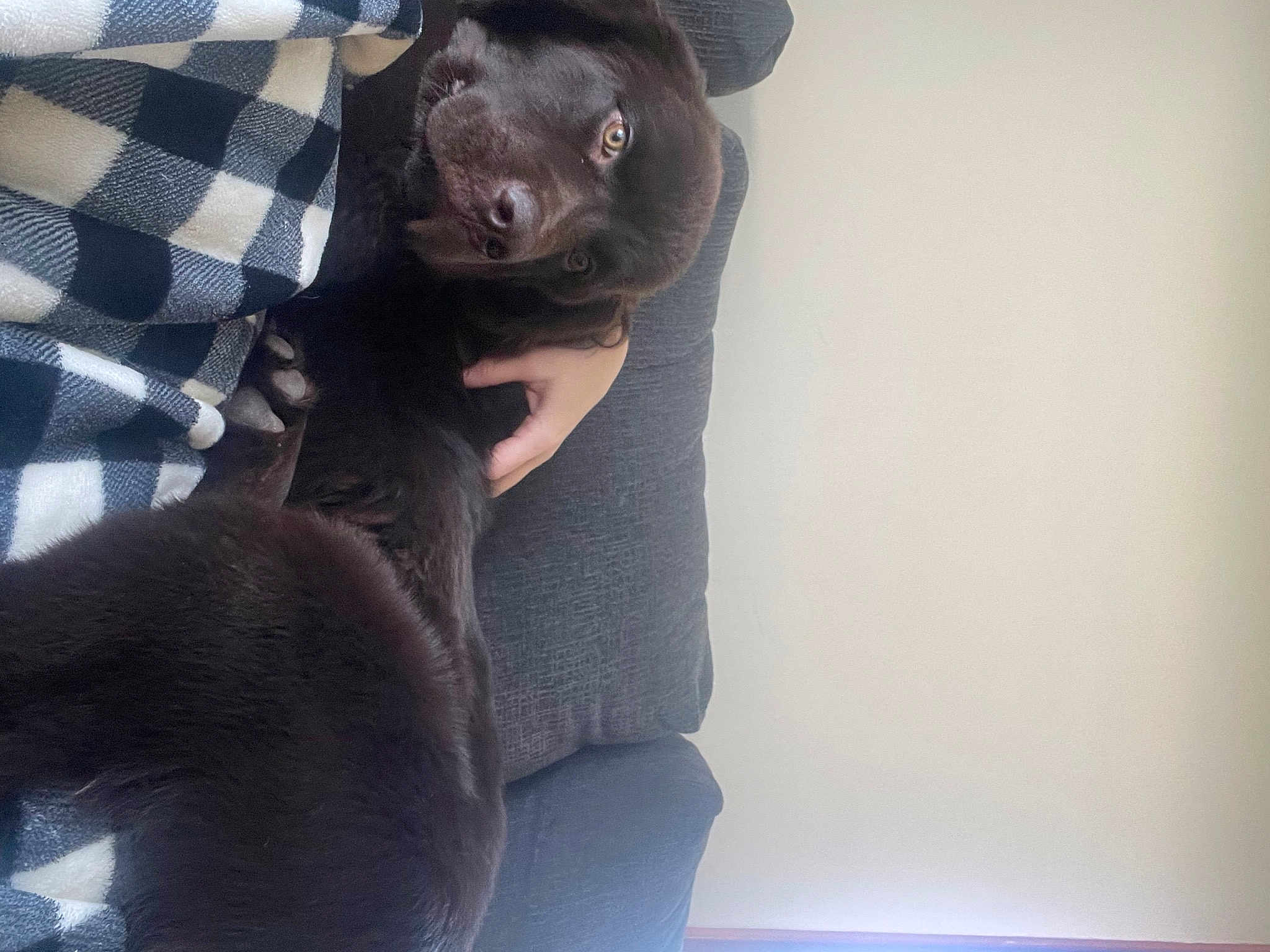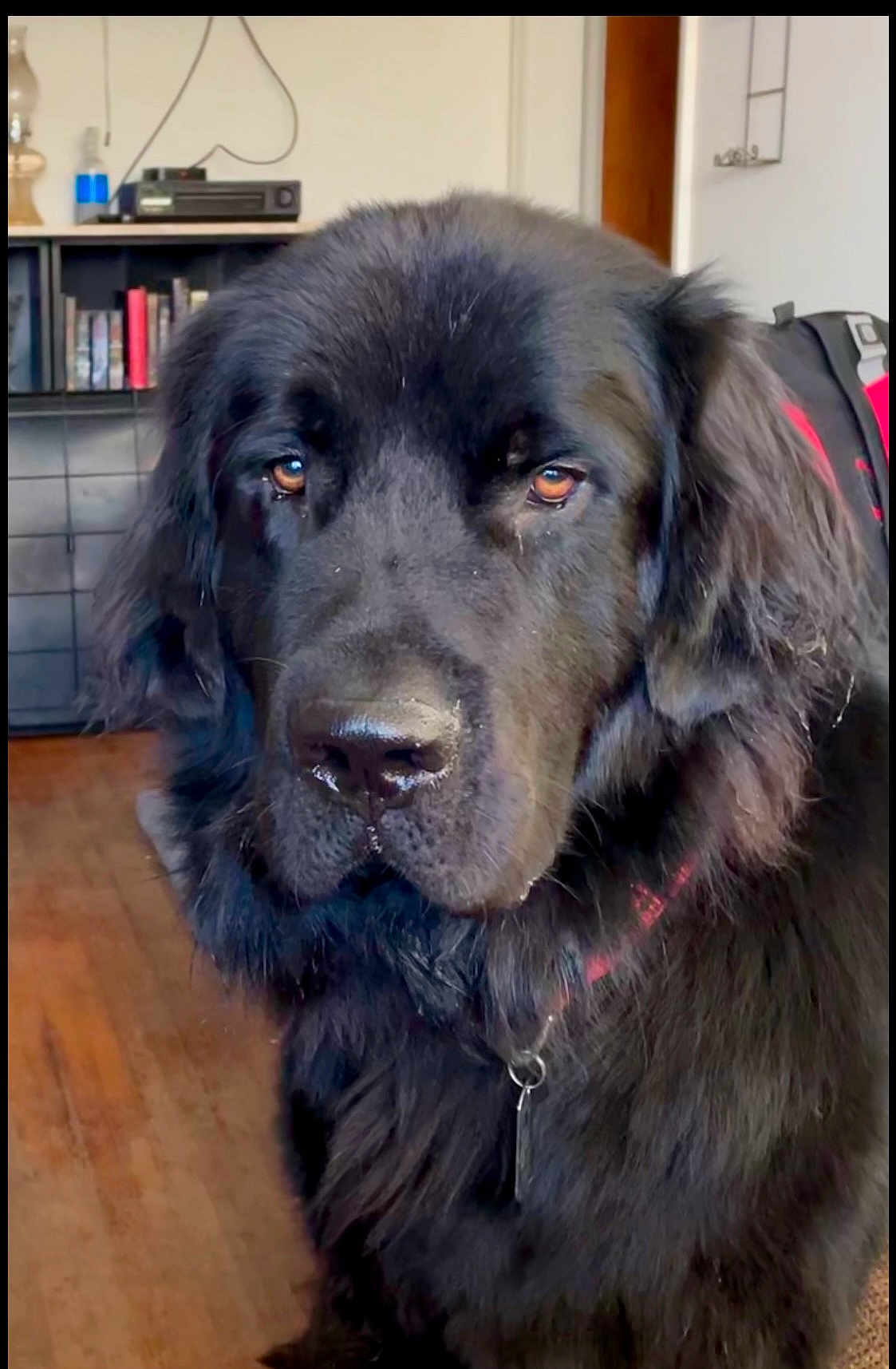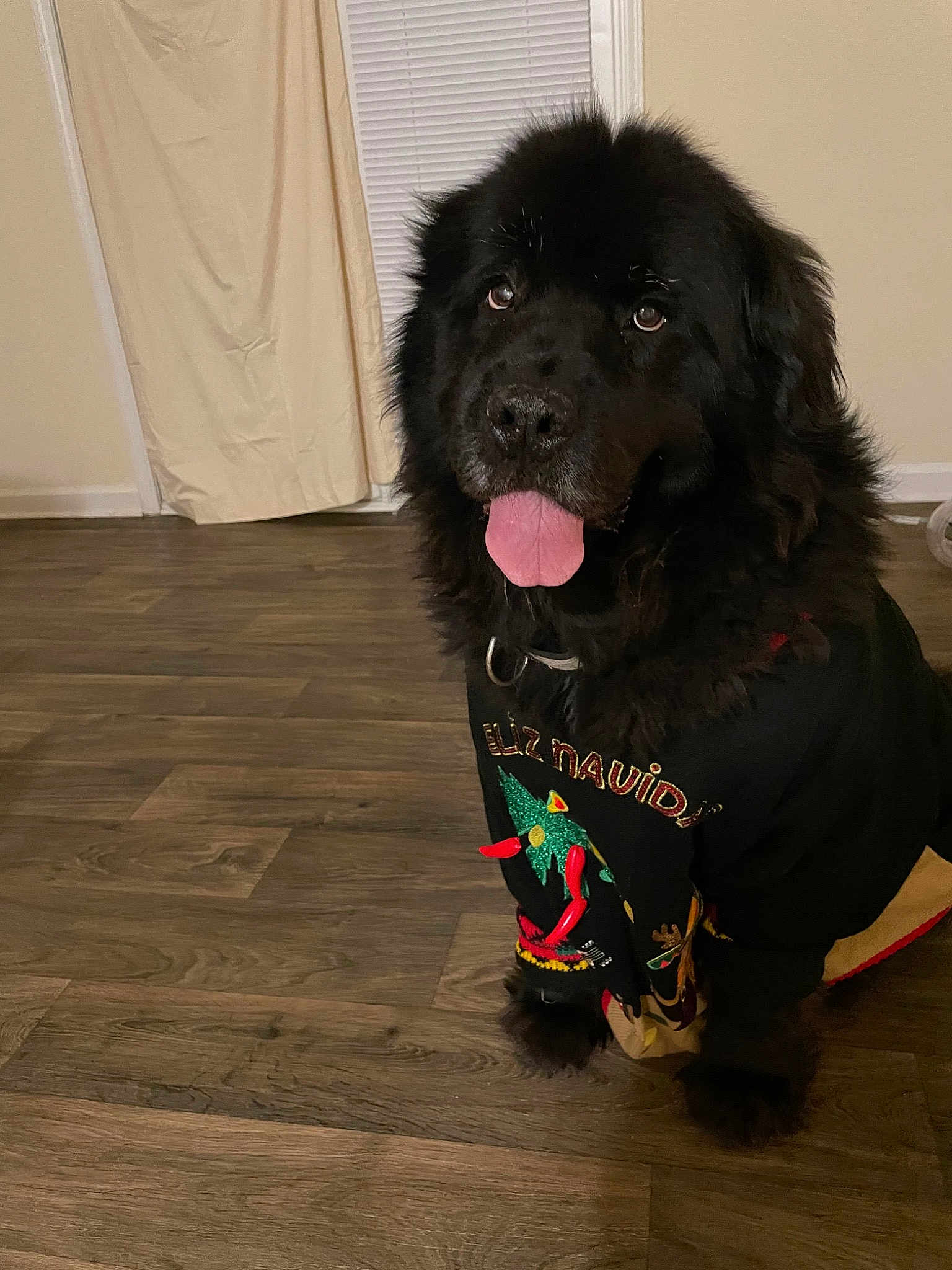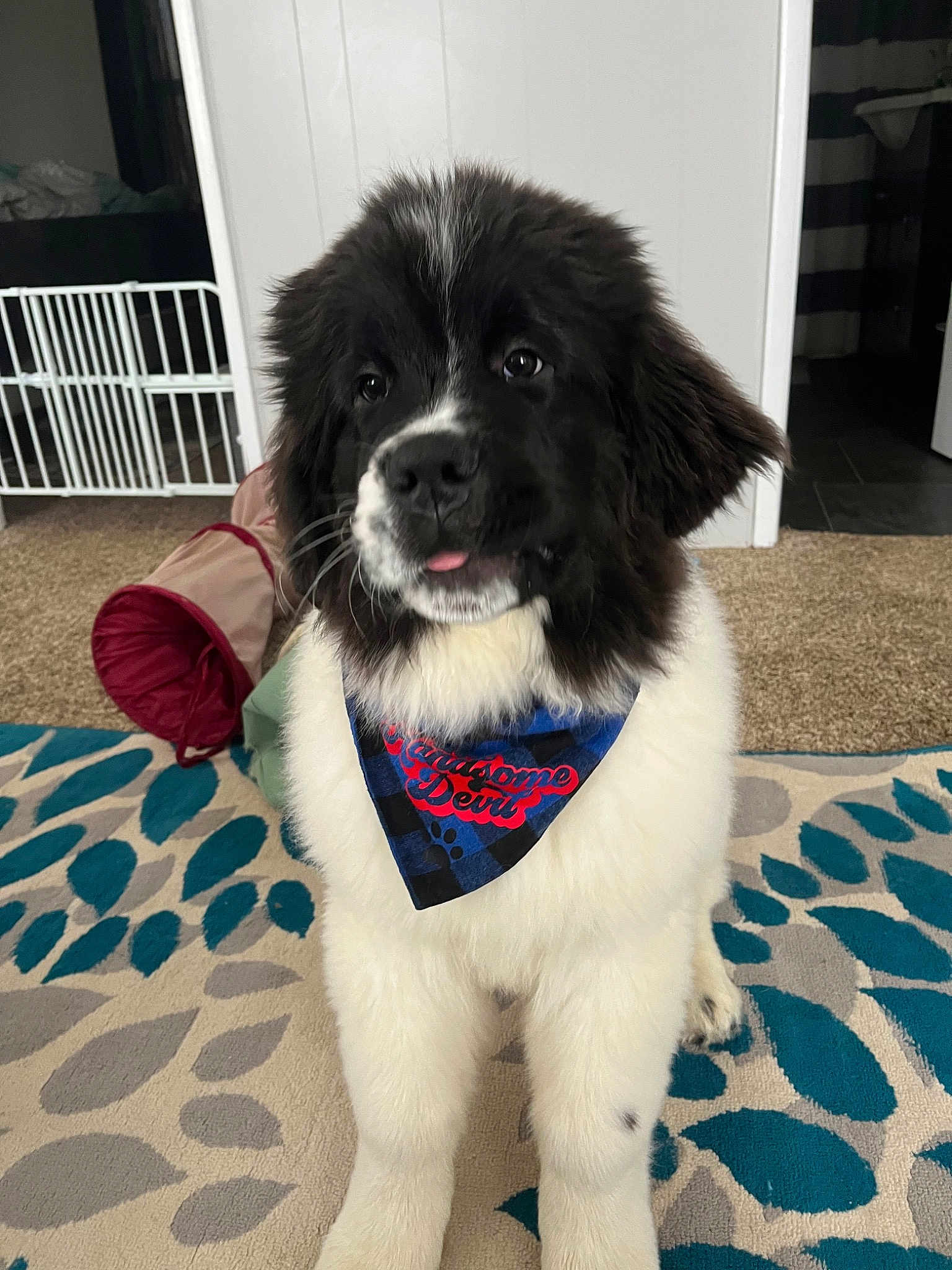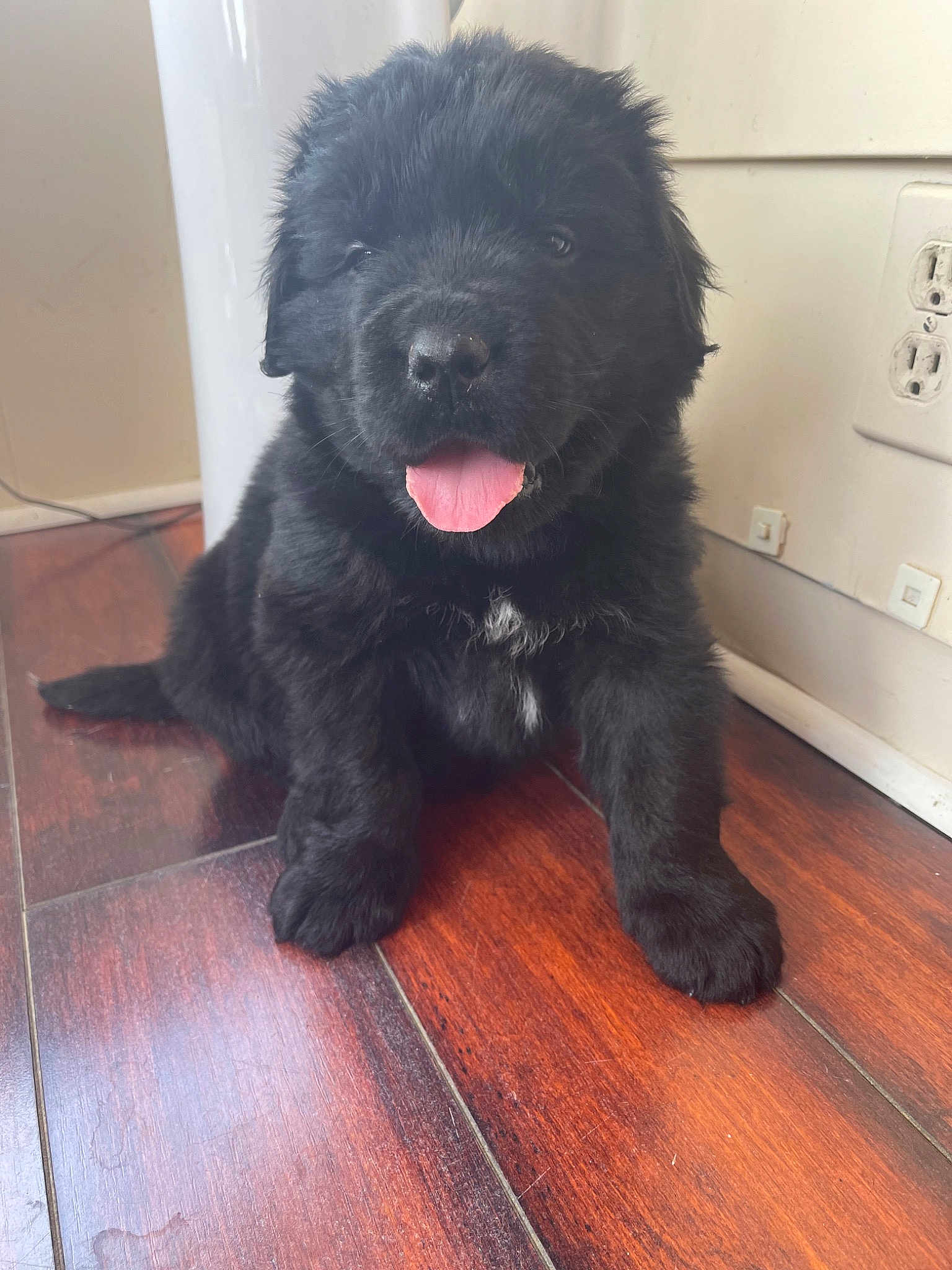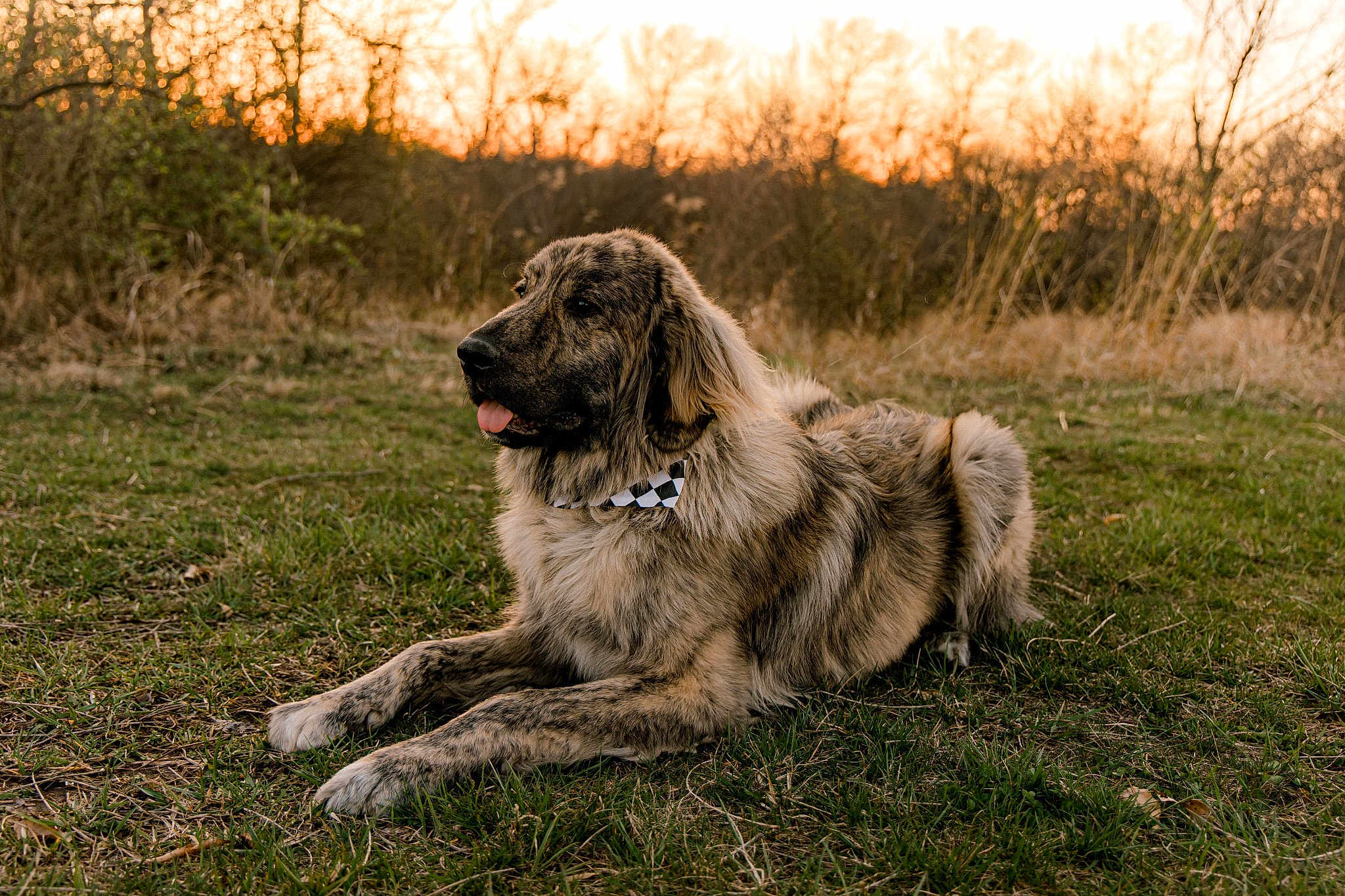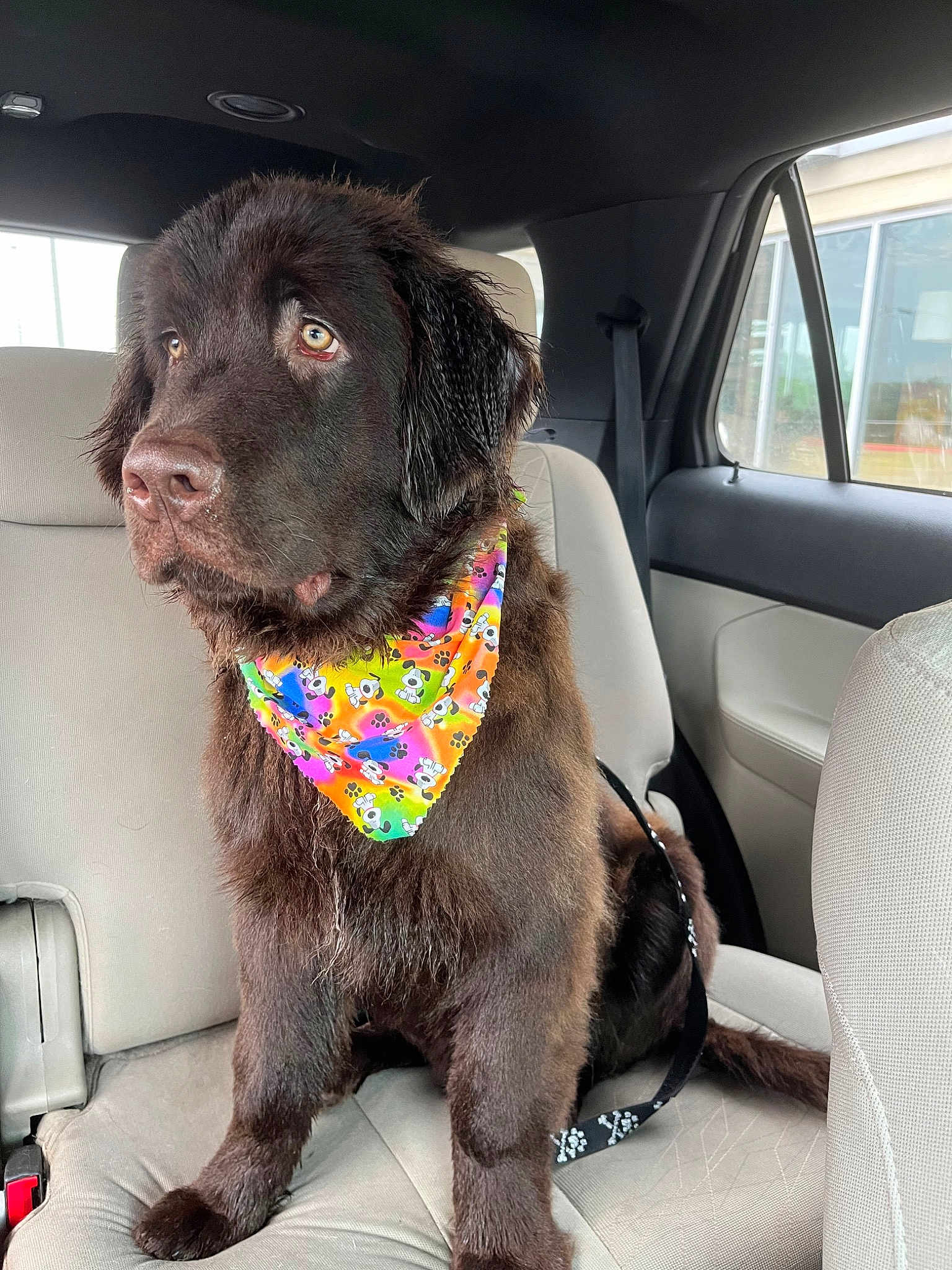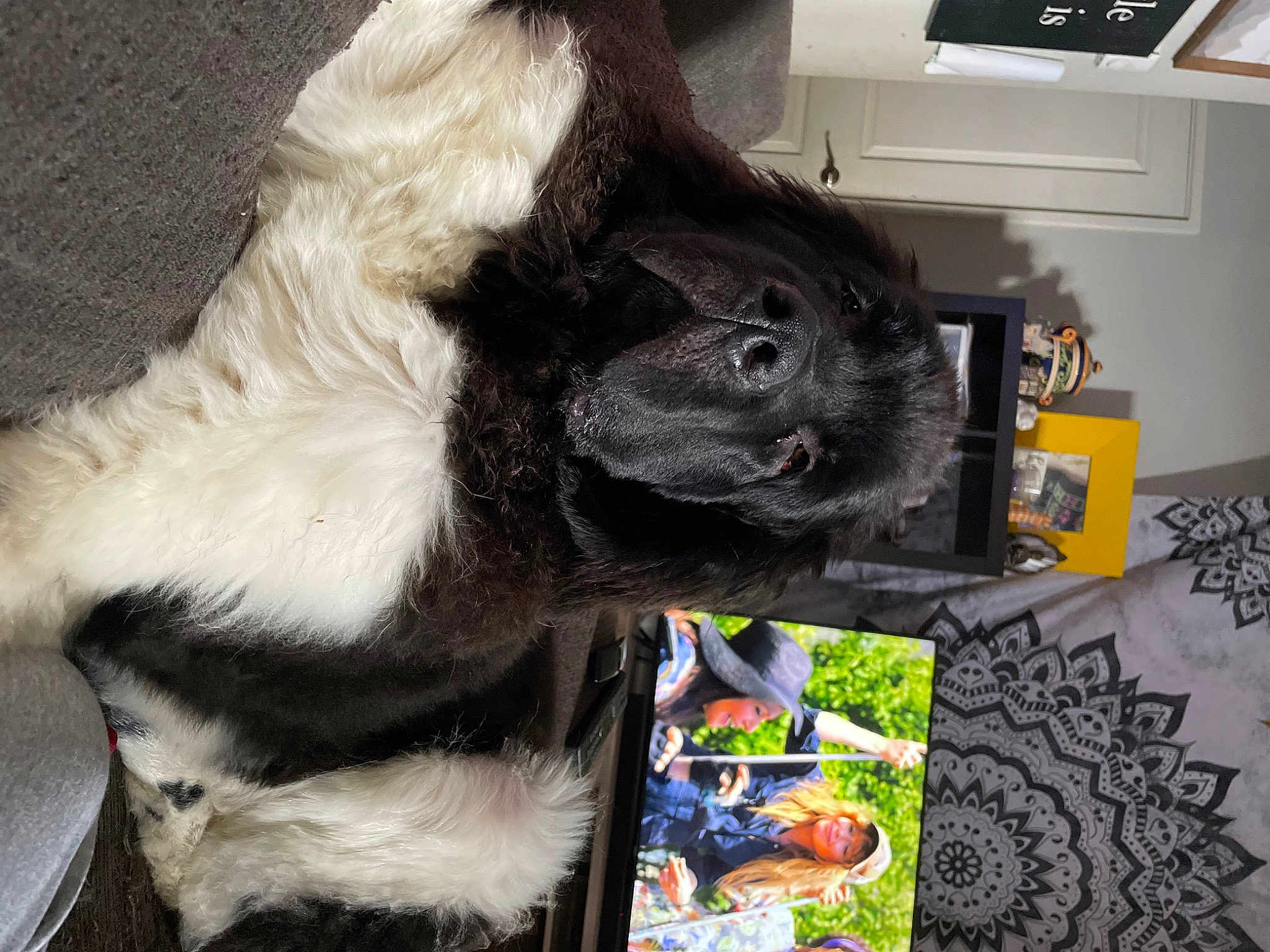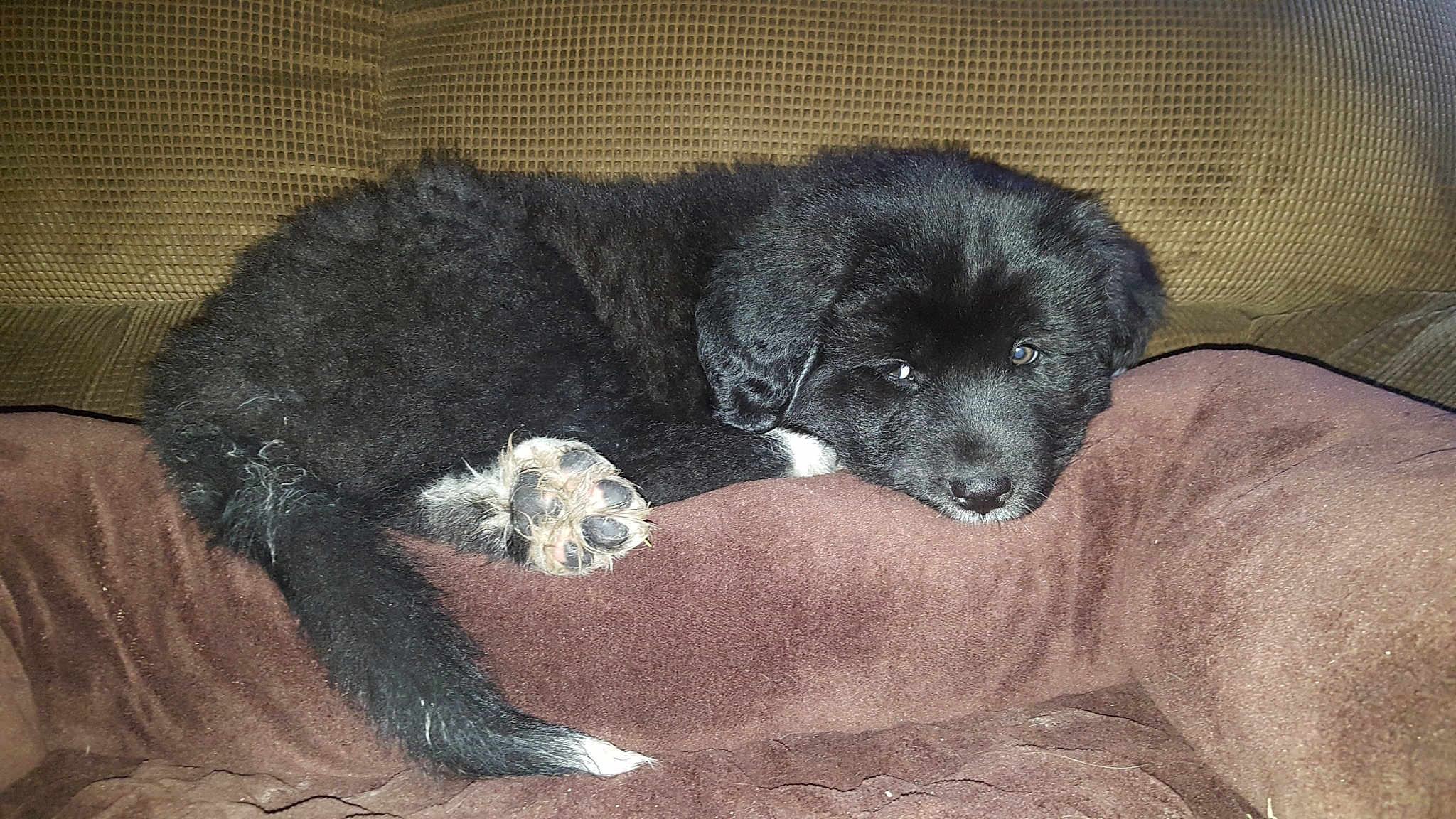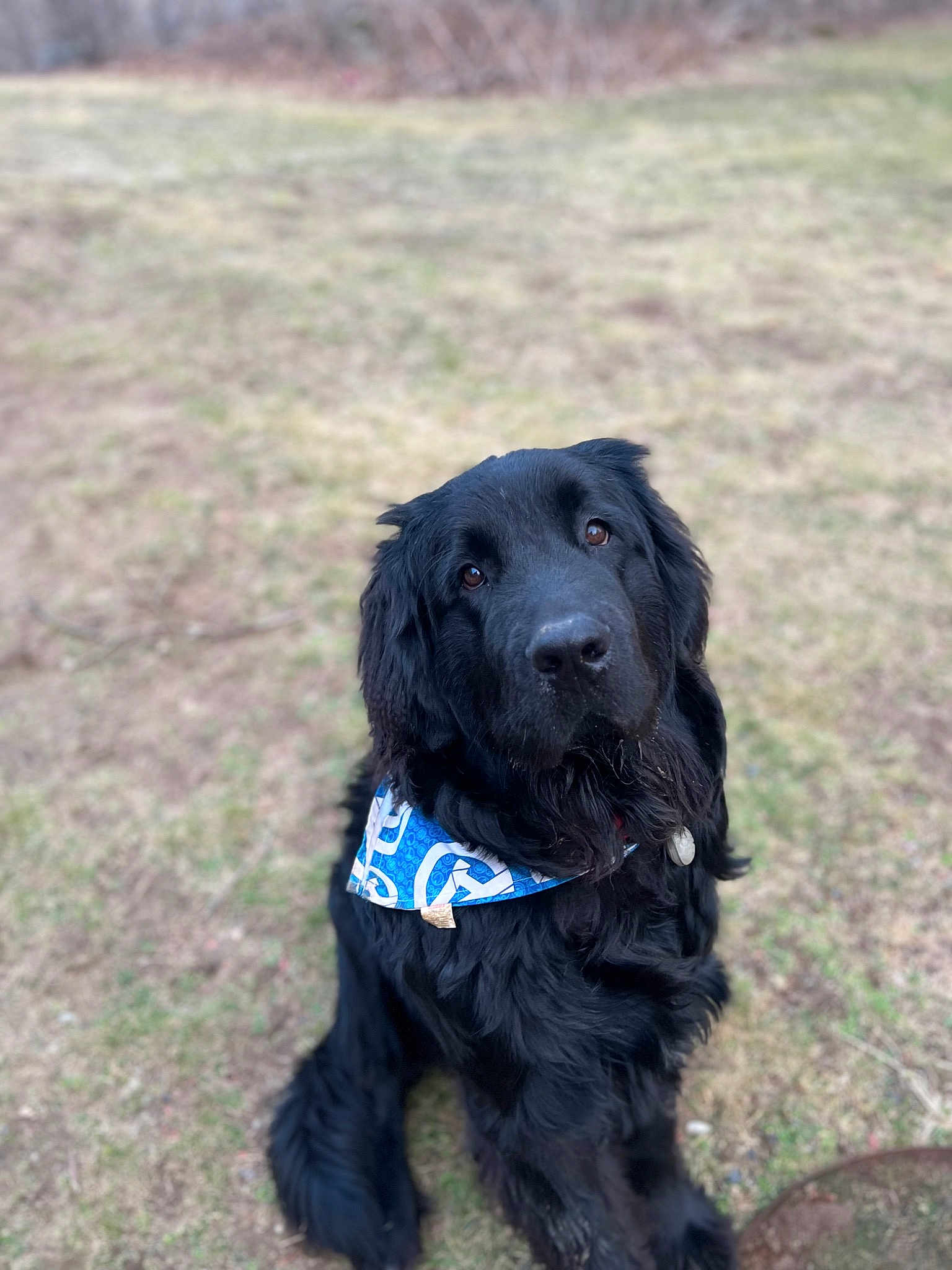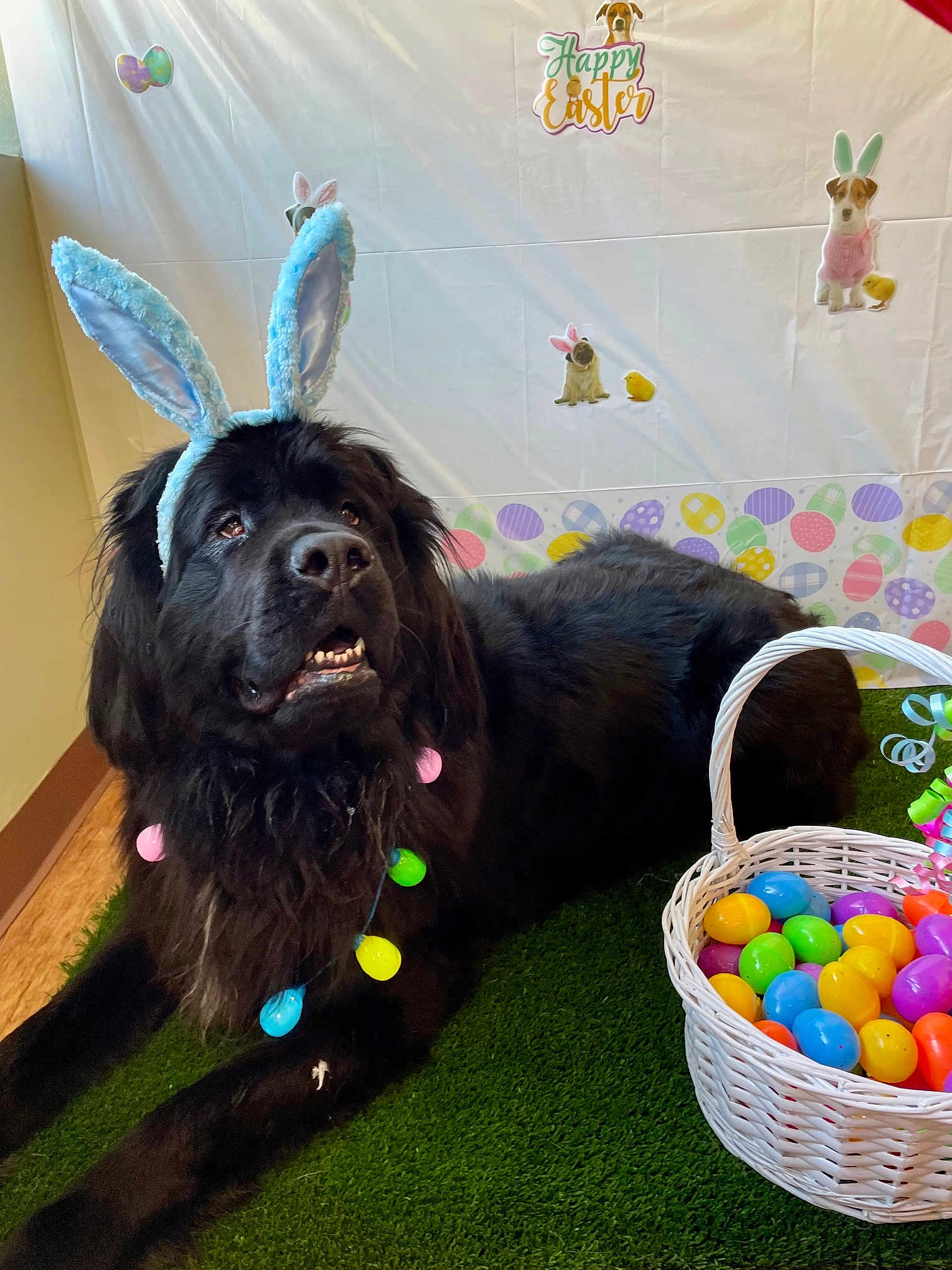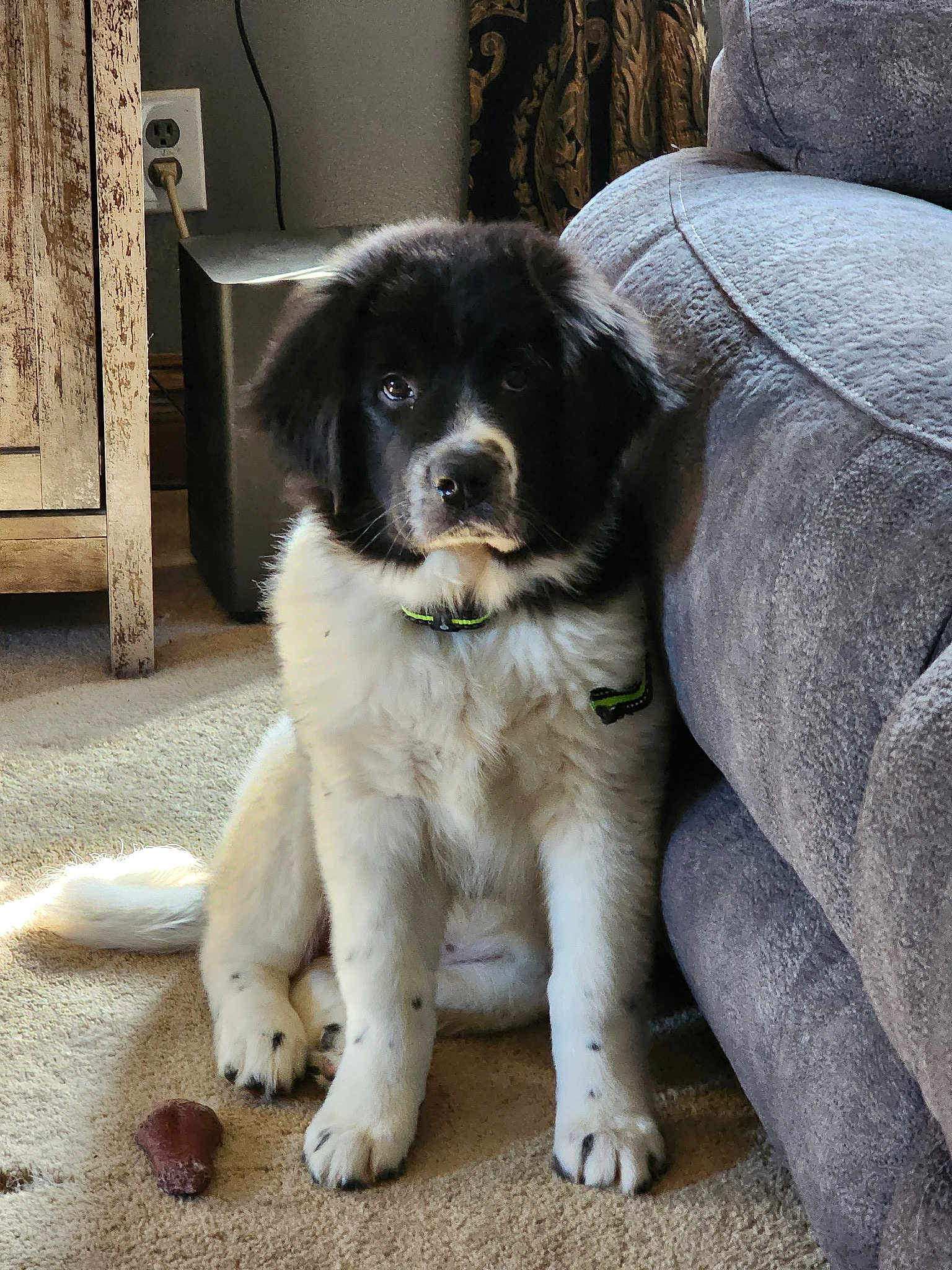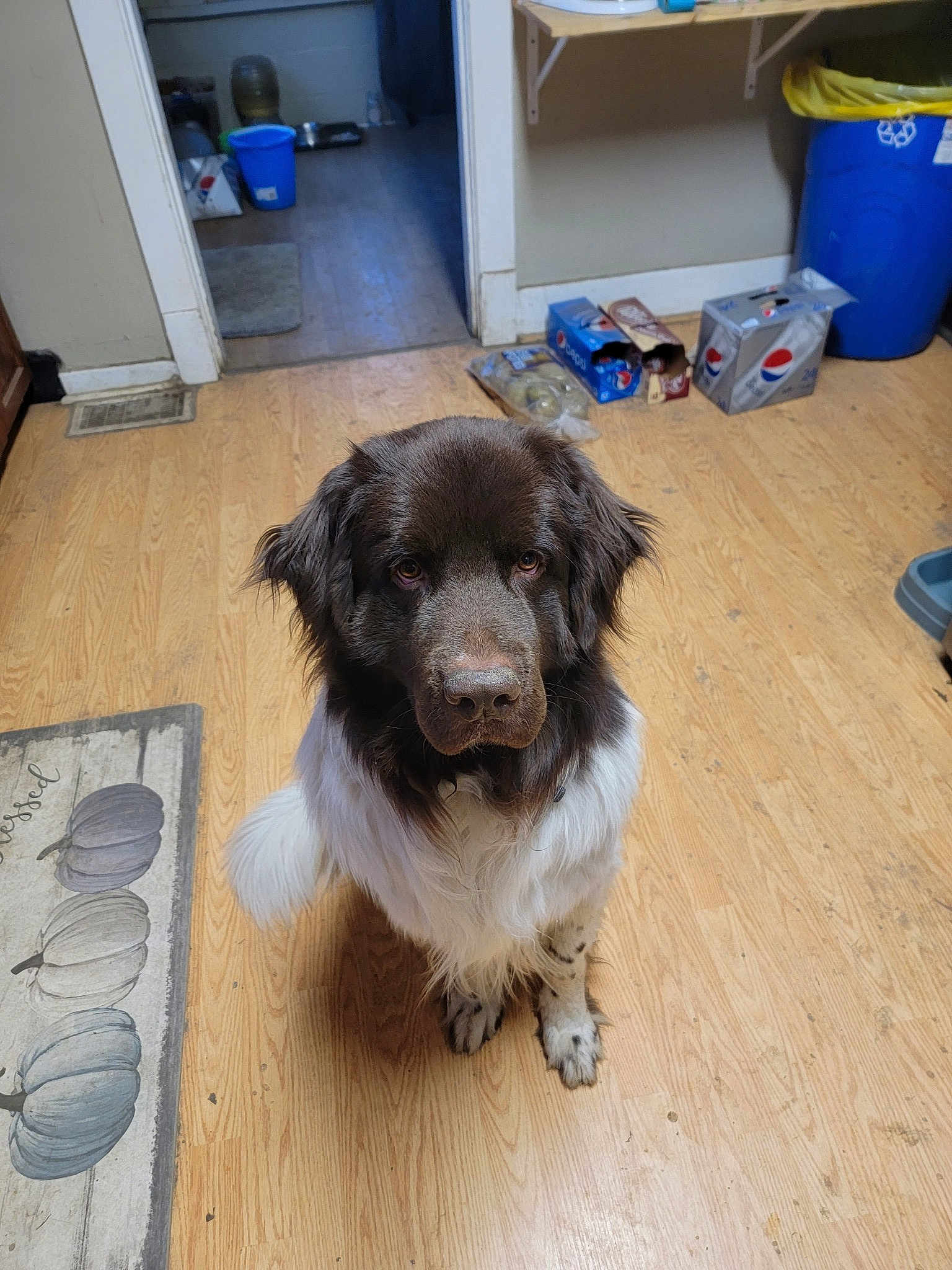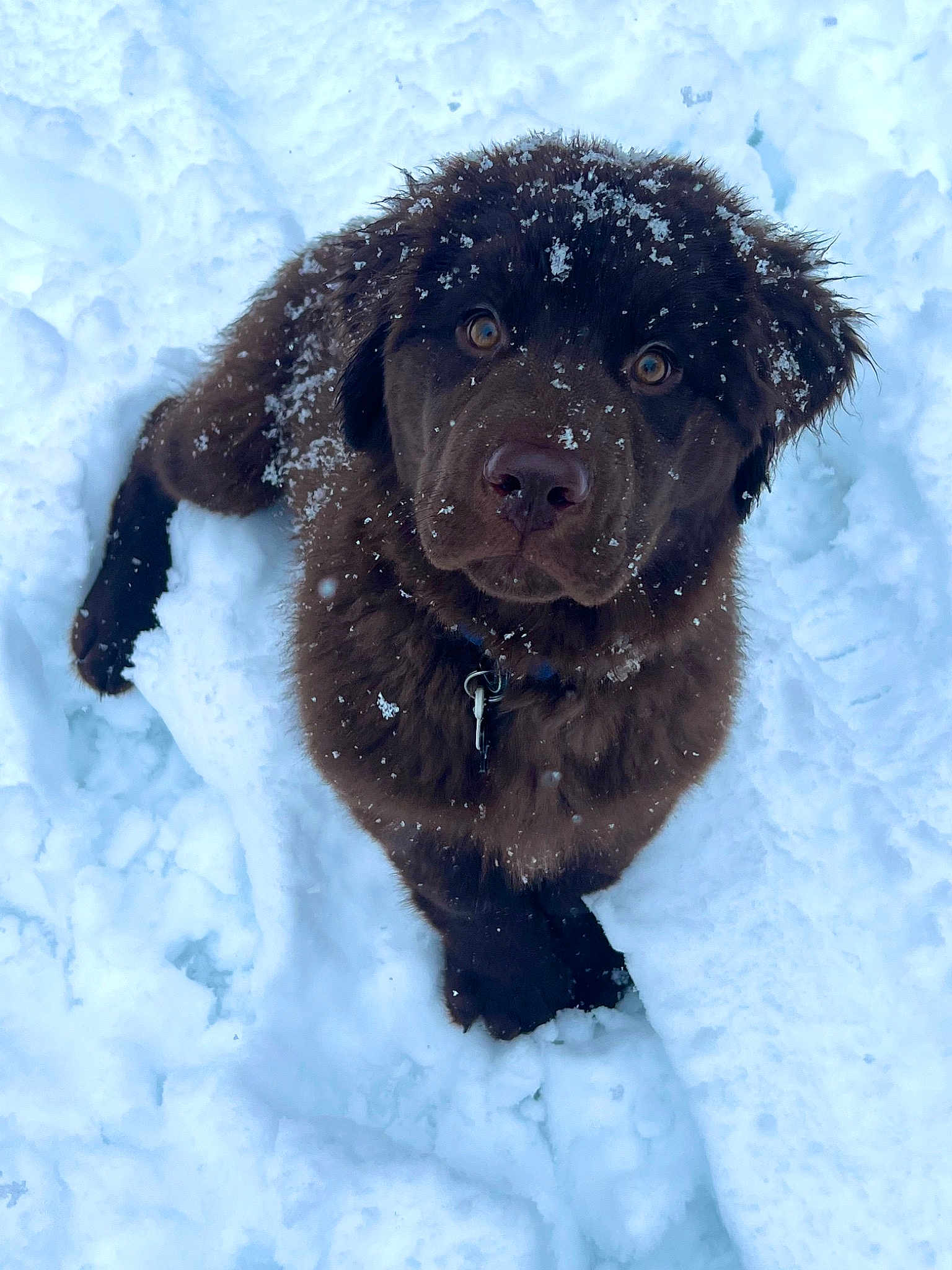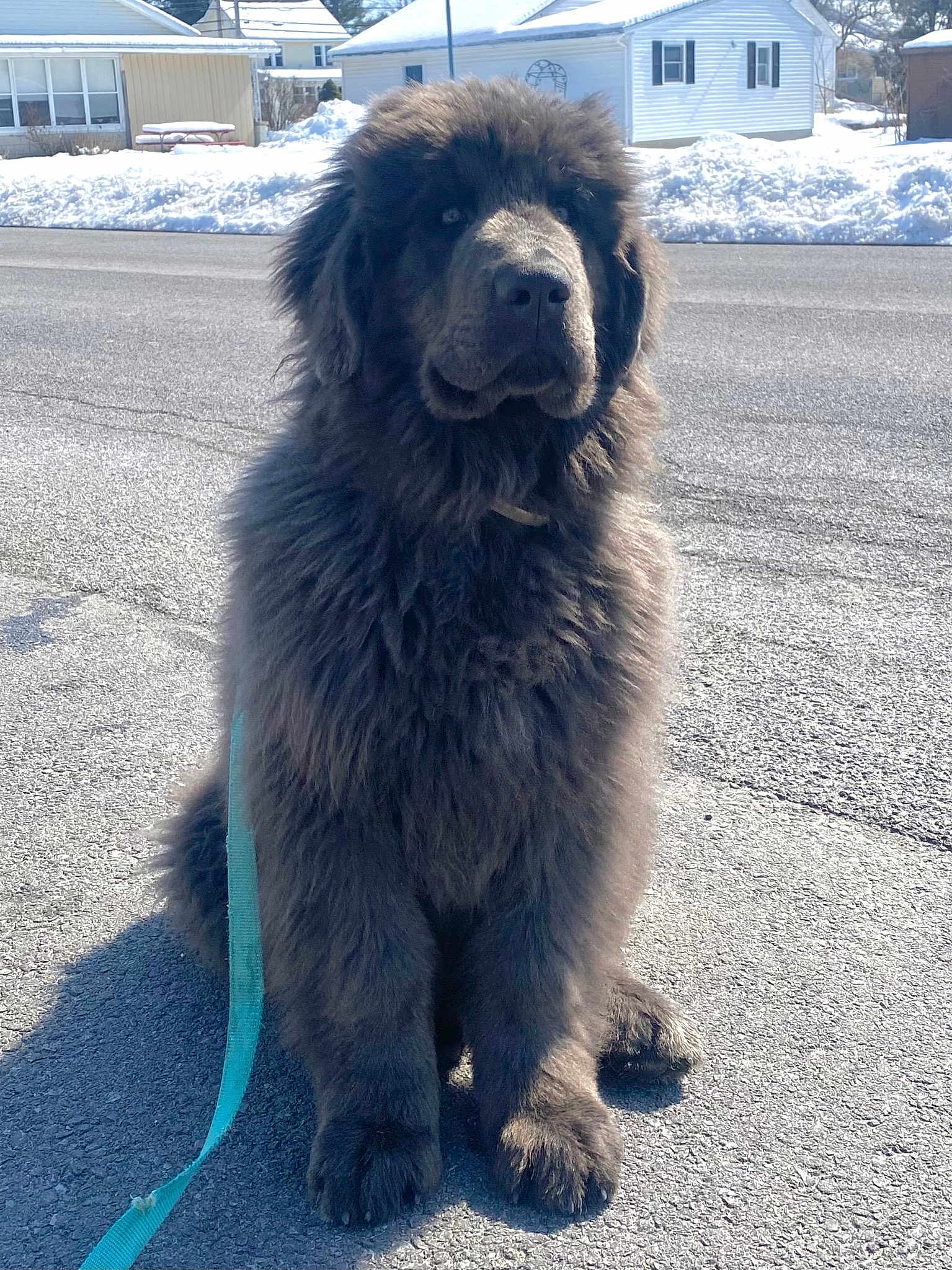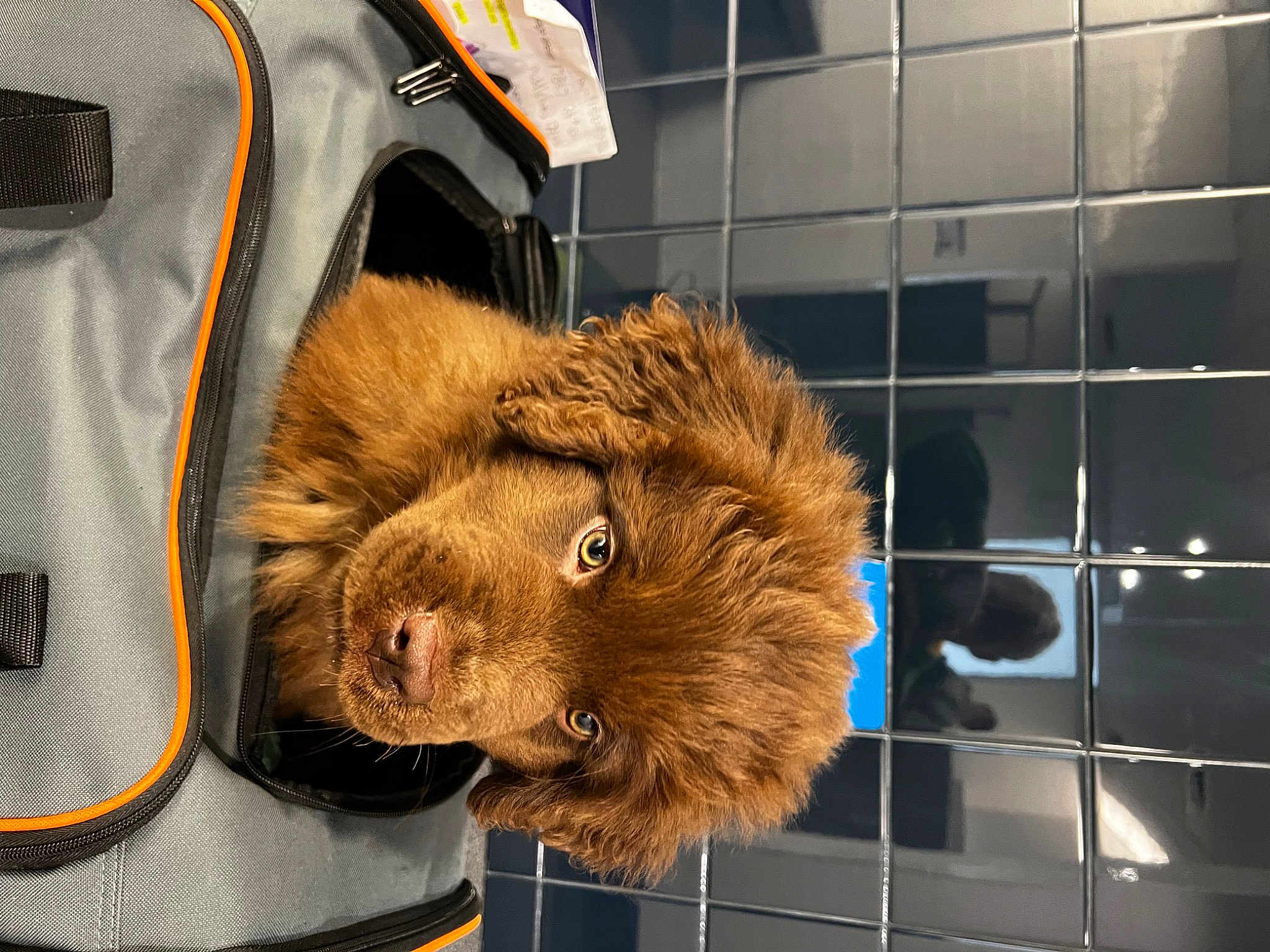
“To sit with a dog on a hillside on a glorious afternoon is to be back in Eden, where doing nothing was not boring—it was peace.” – Milan Kundera. The Newfoundland dog, with its majestic and serene presence, embodies this essence of peace and companionship. In the vast and varied universe of dog breeds, Newfoundlands stand out for their gentle demeanor and impressive history, making them a cherished companion for families around the world.
Personality and Behavior of the Newfoundland
Newfoundlands are renowned for their calm and gentle nature, often being described as “gentle giants.” These large dogs are incredibly patient, making them excellent companions for children. They are known to form strong bonds with their families and exhibit a remarkable level of loyalty. This breed is also recognized for its intelligence and eagerness to please, which makes training them a relatively straightforward process despite their size.
Their behavior is heavily influenced by their original purpose: assisting fishermen in the icy waters of Newfoundland, Canada. This has instilled in them an innate capability to swim and an unyielding work ethic. It's not uncommon to hear stories of Newfoundlands showcasing their bravery and strength by saving people from drowning, thanks to their natural swimming abilities and instinctive rescue tendencies.
In addition to their roles as rescuers, Newfoundlands are exceptionally social dogs. They thrive on human interaction and tend to be very affectionate. Their friendly and sociable nature makes them poor guard dogs, as they are more inclined to greet strangers with a wagging tail rather than suspicion.
"A Newfoundland dog named Seaman was a vital part of the Lewis and Clark expedition in the early 1800s, showcasing the breed’s historical significance and incredible endurance."
Meanings, History, and Origins of the Name Newfoundland
The Newfoundland breed takes its name from the Canadian island of Newfoundland, where the breed was originally developed. The history of this dog is intertwined with the lives of fishermen who required strong, dependable dogs capable of performing Herculean tasks such as pulling nets and rescuing people from the treacherous waters.
There are several theories about the origins of the Newfoundland breed. Some suggest that they are descended from the Great Pyrenees, brought to the island by Basque fishermen in the 15th and 16th centuries. Others believe the breed could be a result of crossbreeding between native dogs and the Vikings’ dogs when they arrived in Newfoundland around 1000 AD. Regardless of their precise origins, these dogs have evolved to become powerful swimmers with a dense, water-resistant coat and webbed feet, perfectly suited for the cold and wet conditions of their homeland.
The name "Newfoundland" reflects not just their geographic origins, but also their primary role in the local fishing industry. The breed is often affectionately referred to as "Newfie" or "Newf," emphasizing their friendly and endearing nature.
Popularity of the Newfoundland
The Newfoundland breed enjoys substantial popularity worldwide, celebrated for their excellent companionship, working abilities, and gentle temperament. In English-speaking countries, particularly the United States and the United Kingdom, Newfoundlands are beloved family pets. Their docile and friendly nature has made them a frequent choice for therapy dogs, as well as companions for children with special needs.
In Canada, particularly in Newfoundland and Labrador, these dogs hold a special place in the cultural fabric. They are not just pets but symbols of the region’s history and resilient spirit. The breed’s popularity extends beyond North America and Europe to parts of Asia and Australia, where their amiable nature makes them sought-after pets.
Globally, the Newfoundland’s popularity tends to draw its roots from their notable appearances in literature and media. For instance, the breed's starring role in the children’s classic "Peter Pan" as the loyal family dog Nana has left a lasting impression on audiences, further solidifying their profile as dedicated and loving companions.
Health and Care of the Newfoundland
Newfoundlands, like all large breeds, have specific health considerations that owners must be aware of to ensure their well-being. One of the most common issues affecting Newfoundlands is hip dysplasia, a genetic condition that can lead to arthritis and mobility issues. Regular veterinary check-ups and maintaining a healthy diet can mitigate some of these risks.
Their dense, water-resistant coat also requires regular grooming to prevent matting and skin issues. These gentle giants can be prone to conditions like elbow dysplasia, heart problems, and cystinuria, a kidney disease. Thus, it’s essential to provide a well-balanced diet, regular exercise, and preventive health care.
Due to their size, Newfoundlands need ample space to move around. Their exercise needs are moderate—they enjoy long walks and playtimes but are also content with lounging at home. Swimming is an excellent exercise for them, offering low-impact activity that keeps them fit while satisfying their natural love for water.
Training and Education of the Newfoundland
Training a Newfoundland can be a delightful experience due to their high intelligence and keenness to please. Early socialization and puppy training classes are recommended to foster good behavior and prevent the development of any undesirable habits.
Positive reinforcement methods work best for Newfoundlands, as they respond well to praise and treats. Consistent training schedules and patient, gentle guidance will yield the best results. Despite their docile nature, it's crucial to establish boundaries early on due to their size and strength.
One typical challenge with this breed is managing their tendency to drool and their proclivity for shedding. Training them to be comfortable with grooming routines from an early age will make maintaining their coat and cleanliness much more manageable.
Newfoundlands also excel in various dog sports and activities such as obedience trials and water rescue drills. These activities keep them mentally stimulated and physically healthy while strengthening the bond between the dog and its owner.
Choosing the right breed involves considering multiple factors such as your living environment, activity level, and the amount of time you can dedicate to your pet. Newfoundlands are ideal for families due to their calm and patient demeanor. They thrive in homes where they can receive plenty of affection and where their exercise needs are met. However, they may not be suitable for individuals who live in small apartments or cannot provide adequate time for grooming and health care routines.
Selecting a Newfoundland as your companion means embracing not just a pet, but a gentle giant with a rich history of bravery, loyalty, and unwavering affection. Our Pageant Dog contests often see a high number of Newfoundland participants, demonstrating their widespread appeal and the admiration they garner from their owners. If you are seeking a combination of serene companionship, unwavering loyalty, and a touch of historical significance, the Newfoundland breed may be your perfect match.









